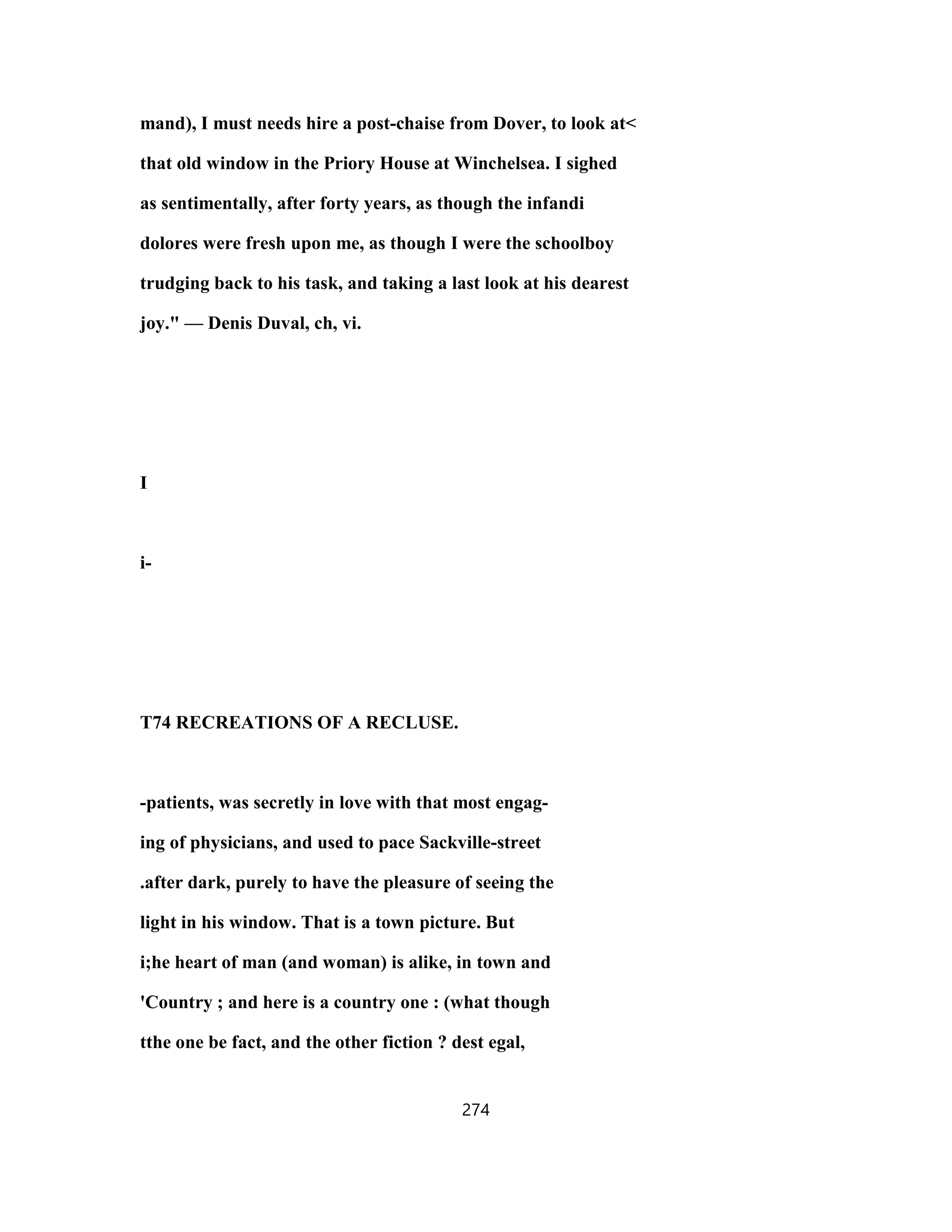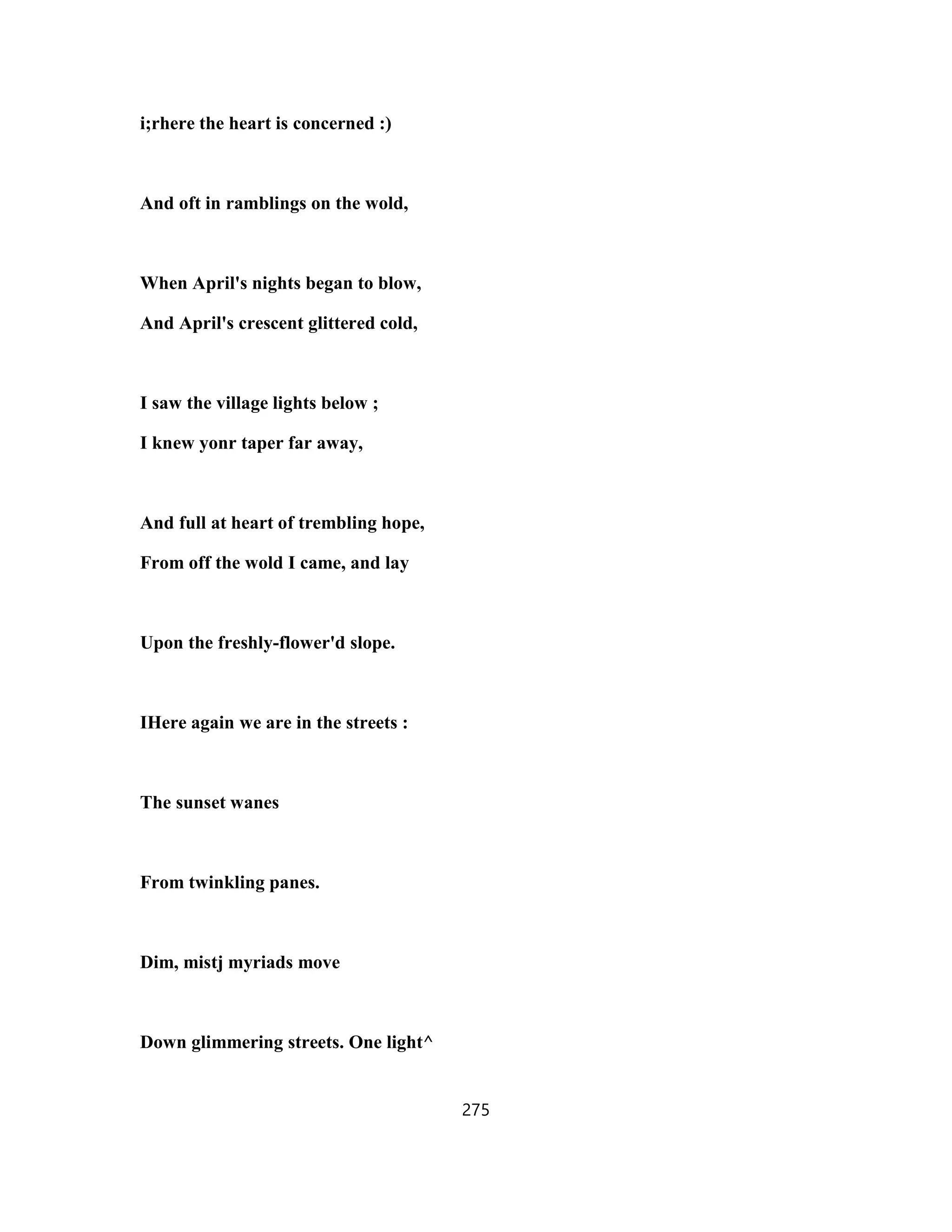This document summarizes stories of great historical figures who were underestimated or their abilities doubted due to their small physical stature or unimpressive appearances. It discusses how figures like Agesilaus, Talbot, Frederick the Great, and others proved their greatness through their actions and abilities despite their outward appearances not matching expectations. The document uses these examples to argue that one should judge people by their character and minds rather than their physical forms.

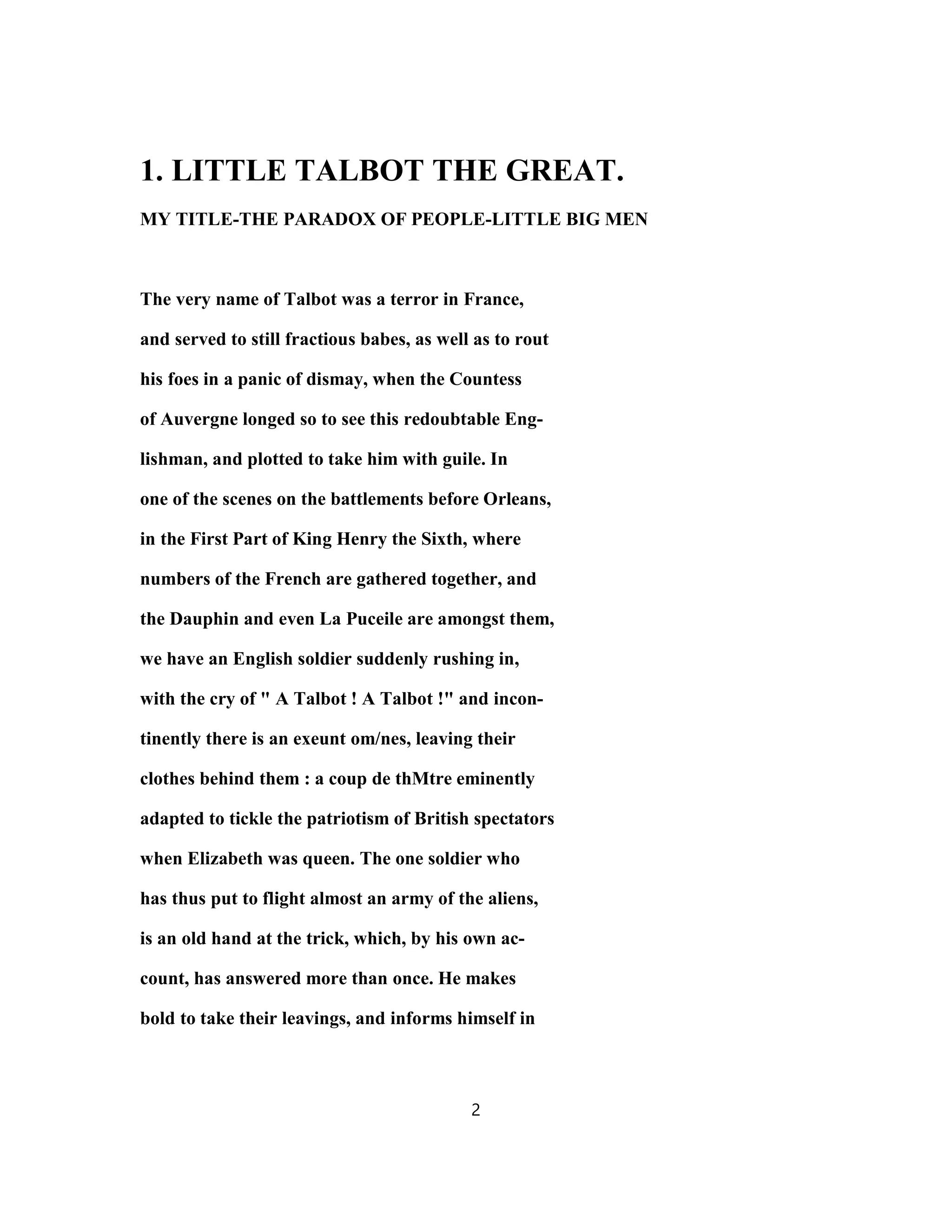

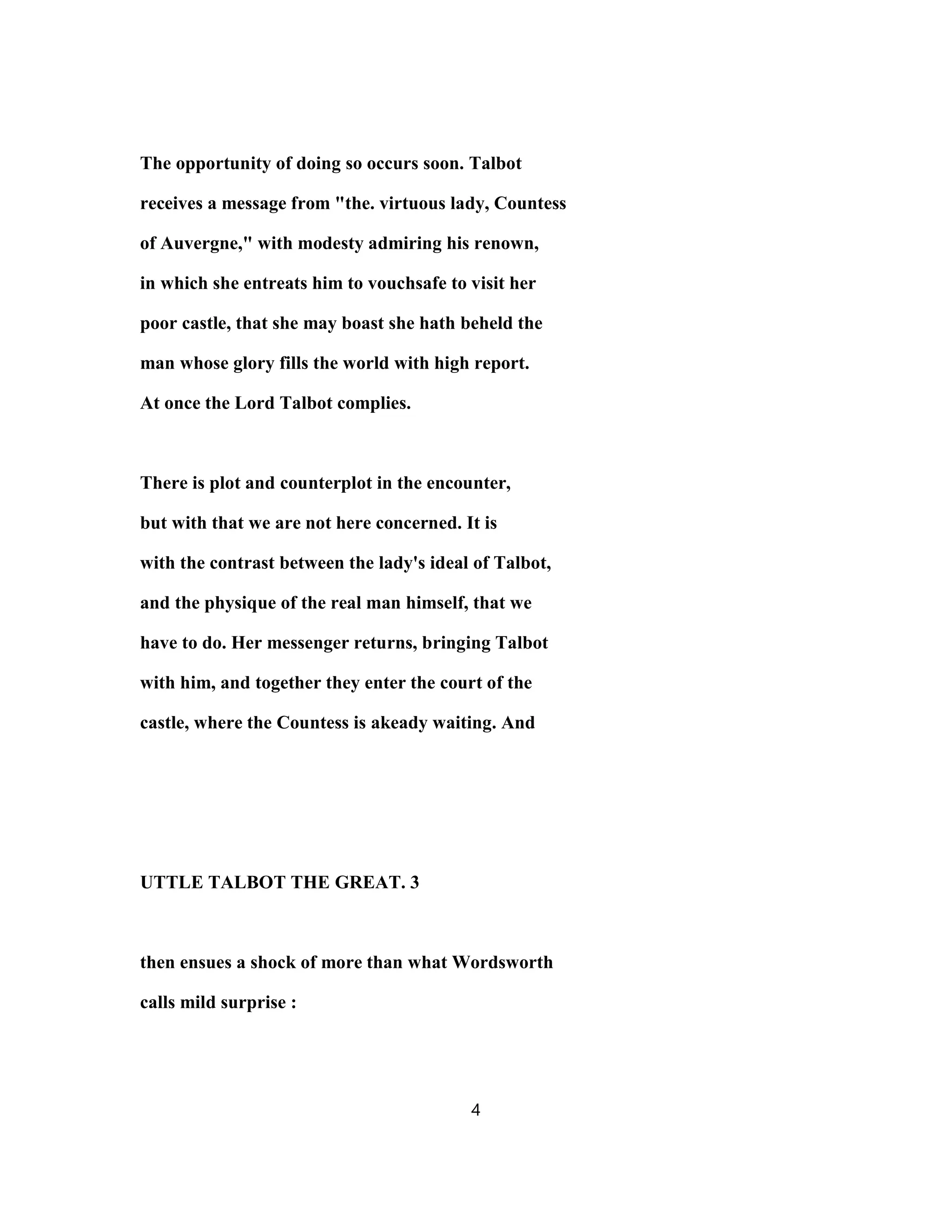
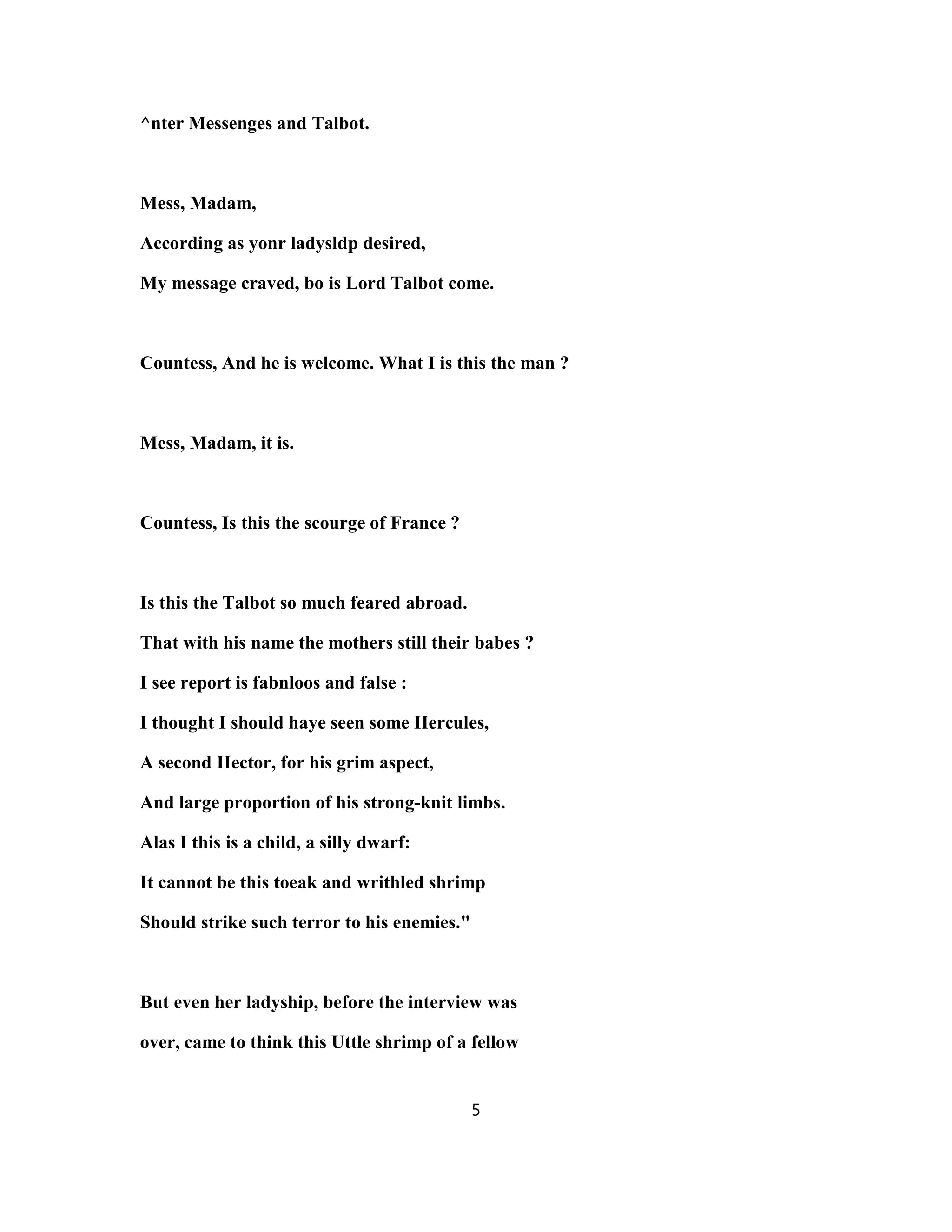

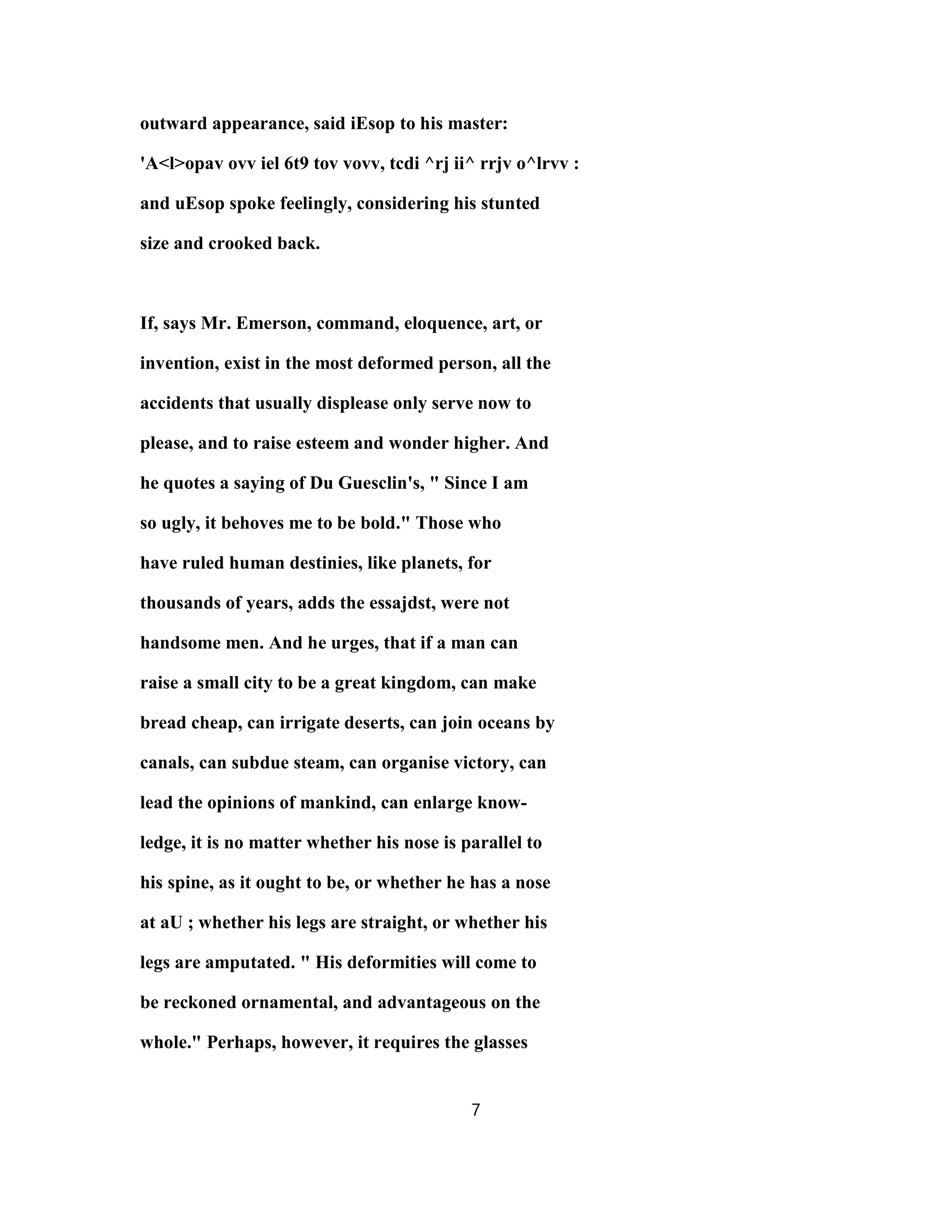

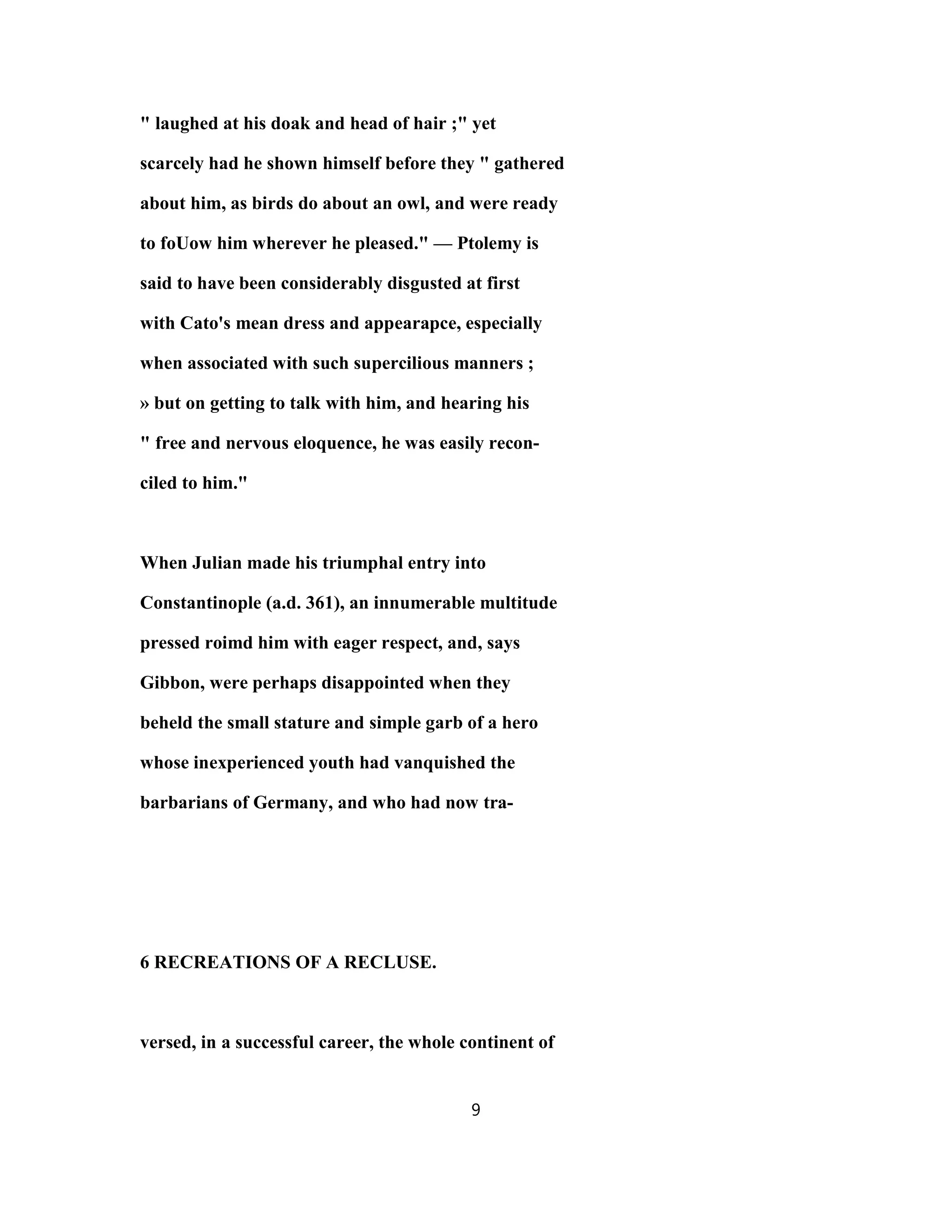

![laus, surnamed CuUtalis, that pigmy King of Po-
land, reigned, and [the last] fought more victorious
battles, as Alexander Gaguinus relates, than aU his
longer-legged predecessors had done." Corpore
parvus eram, I was of small stature, he says — cubito
vix aZtior, scarcely above a cubit high ; sed tamen in
parvo corpore magnua eraTrt, Nevertheless, small as
LITTLE TALBOT THE GREAT 7
was my size, I was a great man. The lady's
reference to William III. suggests an apt quotatiou
from Lord Maeaulay, who reckons it probable that
among the 120,000 soldiers, who were marshalled
round Neerwinden under all the standards of
Western Europe, the two feeblest in body were
" the hunchbacked dwarf [Luxembourg] who urged
forward the fiery onset of France, and the asthmatic
skeleton [William] who covered the slow retreat of
England." Mr. Hayward, who annotates the quota-
tion to Mrs, Piozzi's text, assumes that all readers
of Shakspeare will call to mind the Countess of
11](https://image.slidesharecdn.com/thebestoffrancisjacox-171030162308/75/The-best-of-francis-jacox-11-2048.jpg)

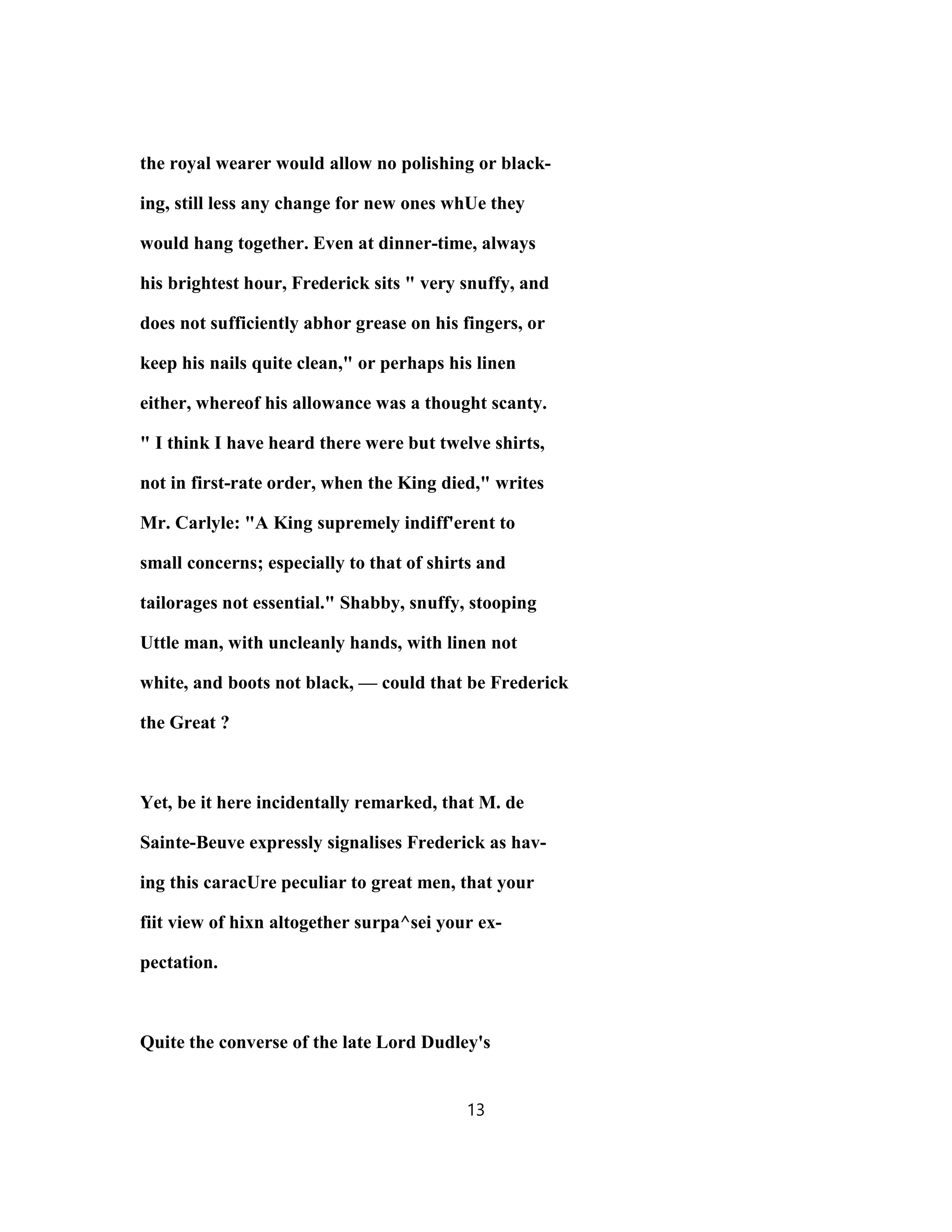

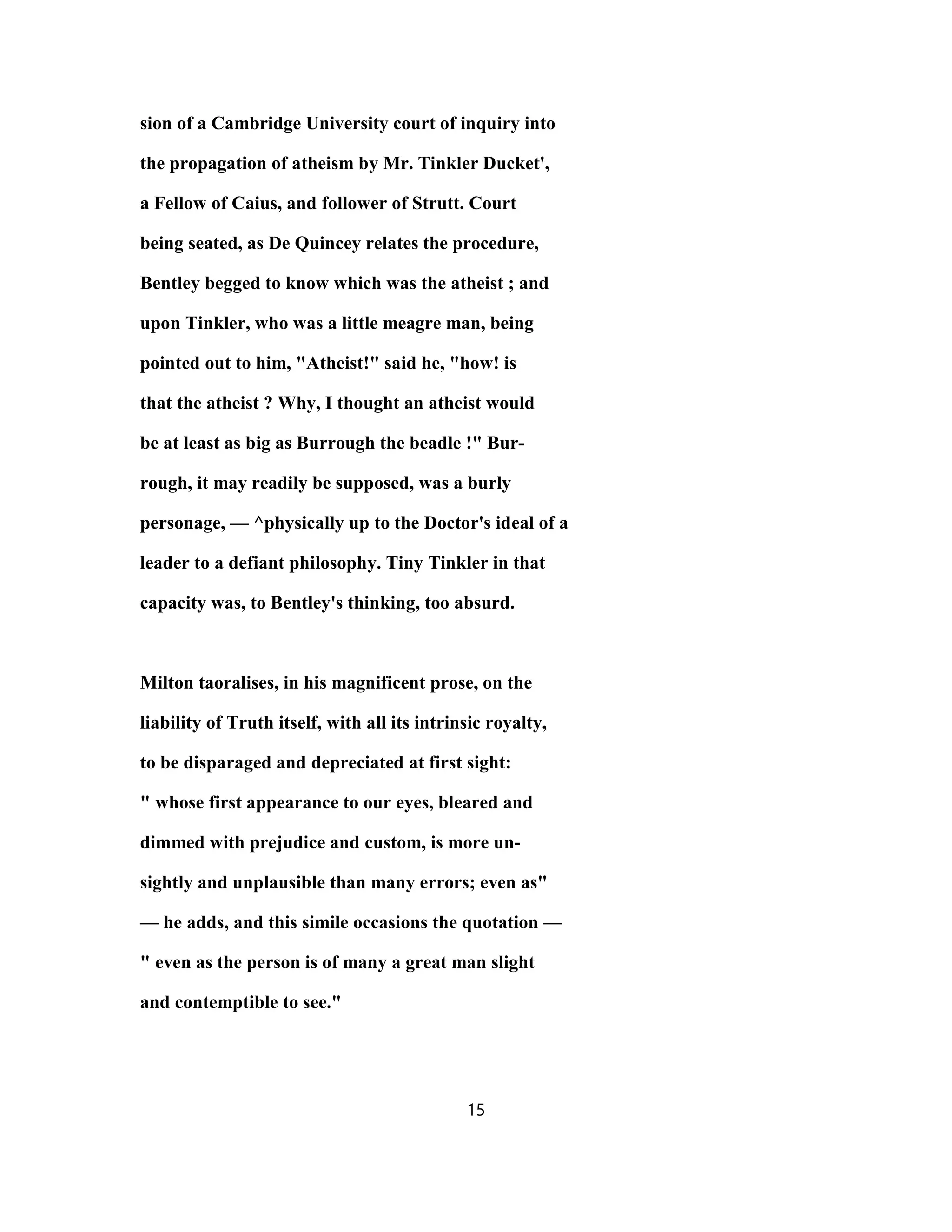




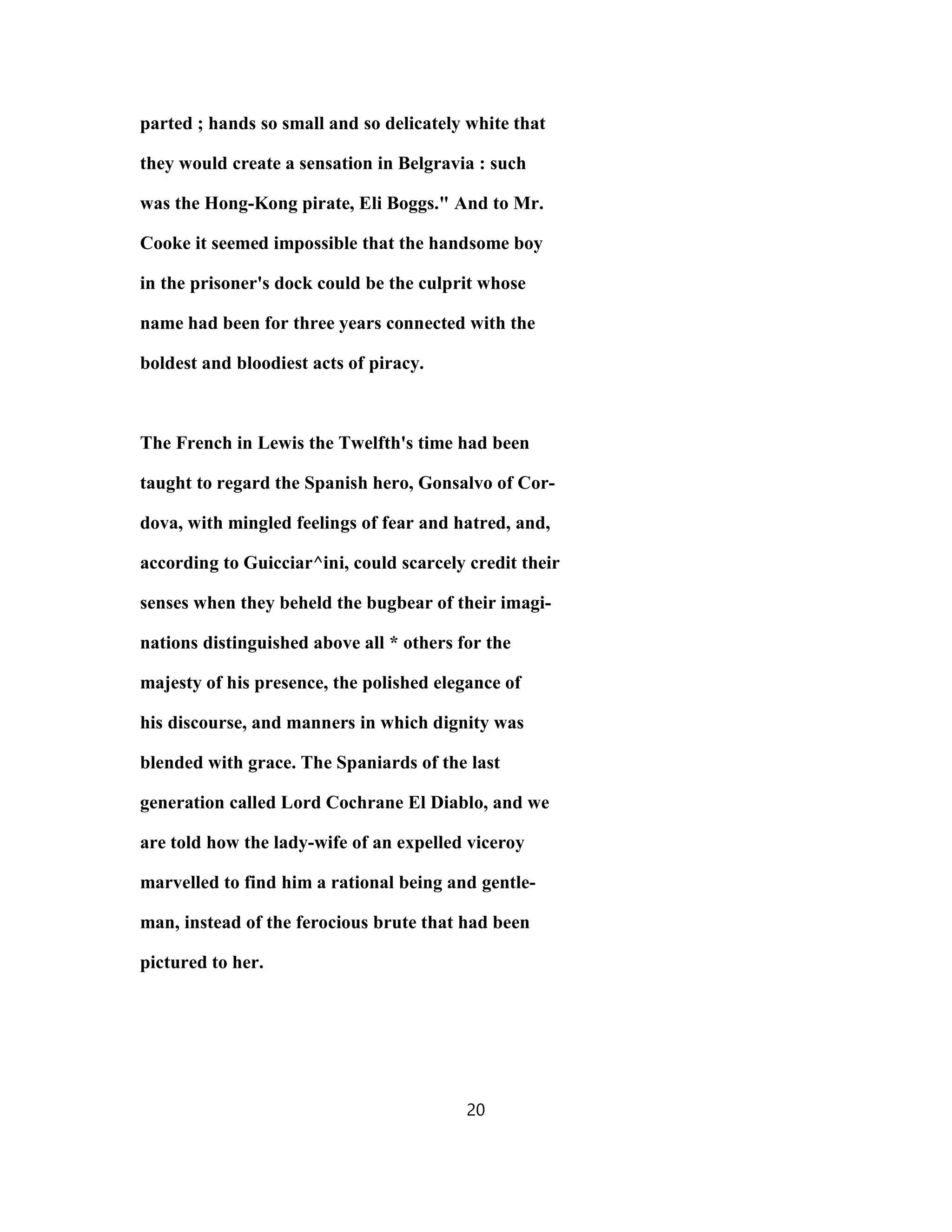


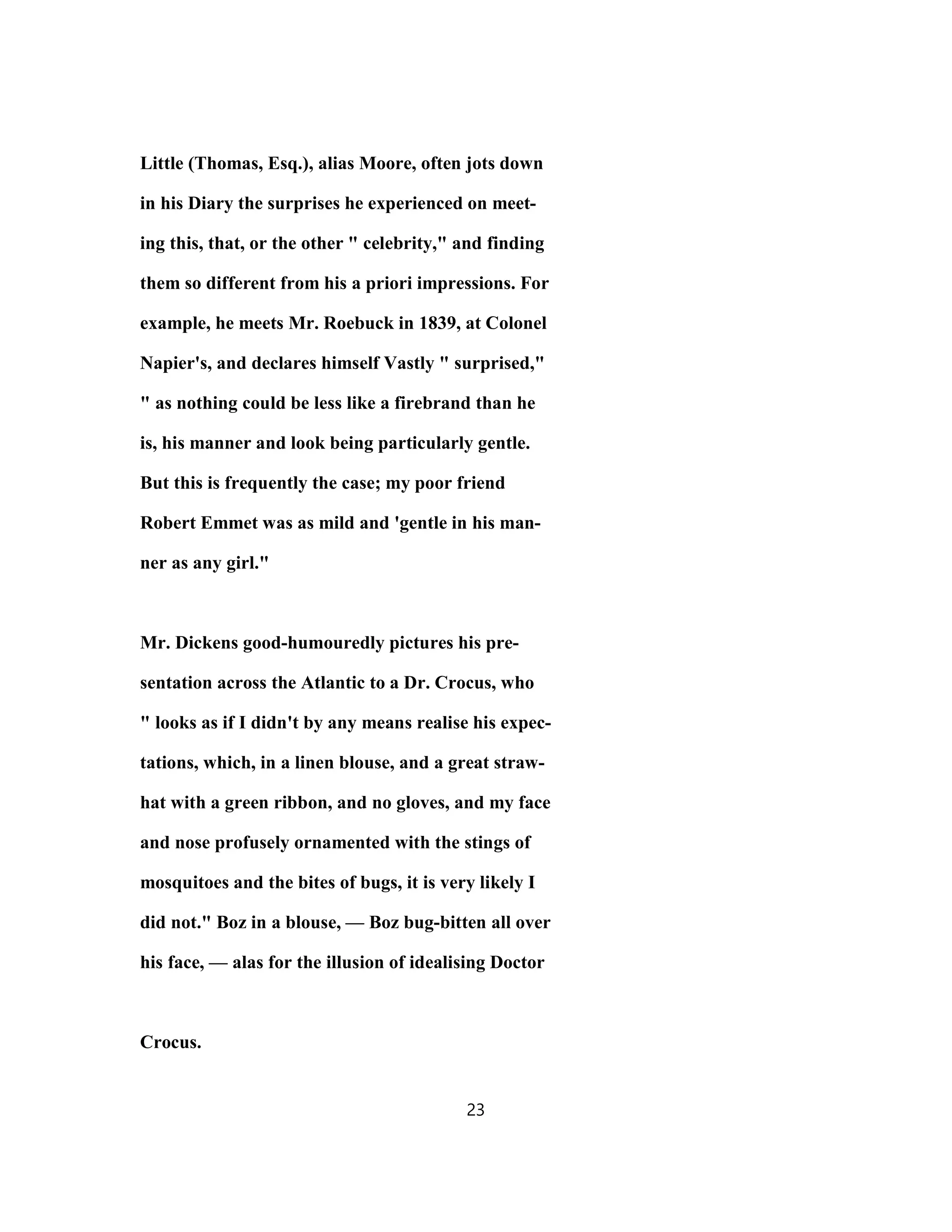





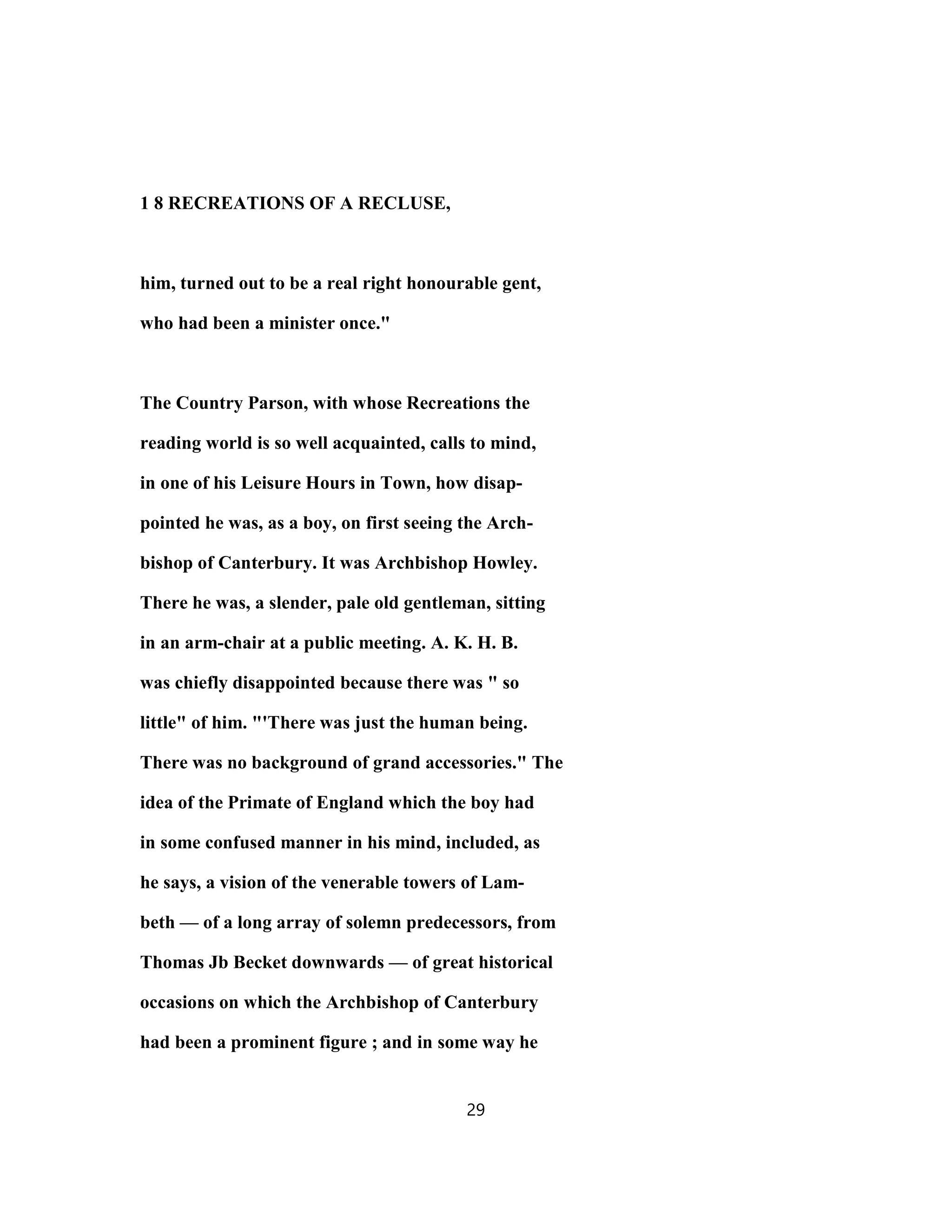

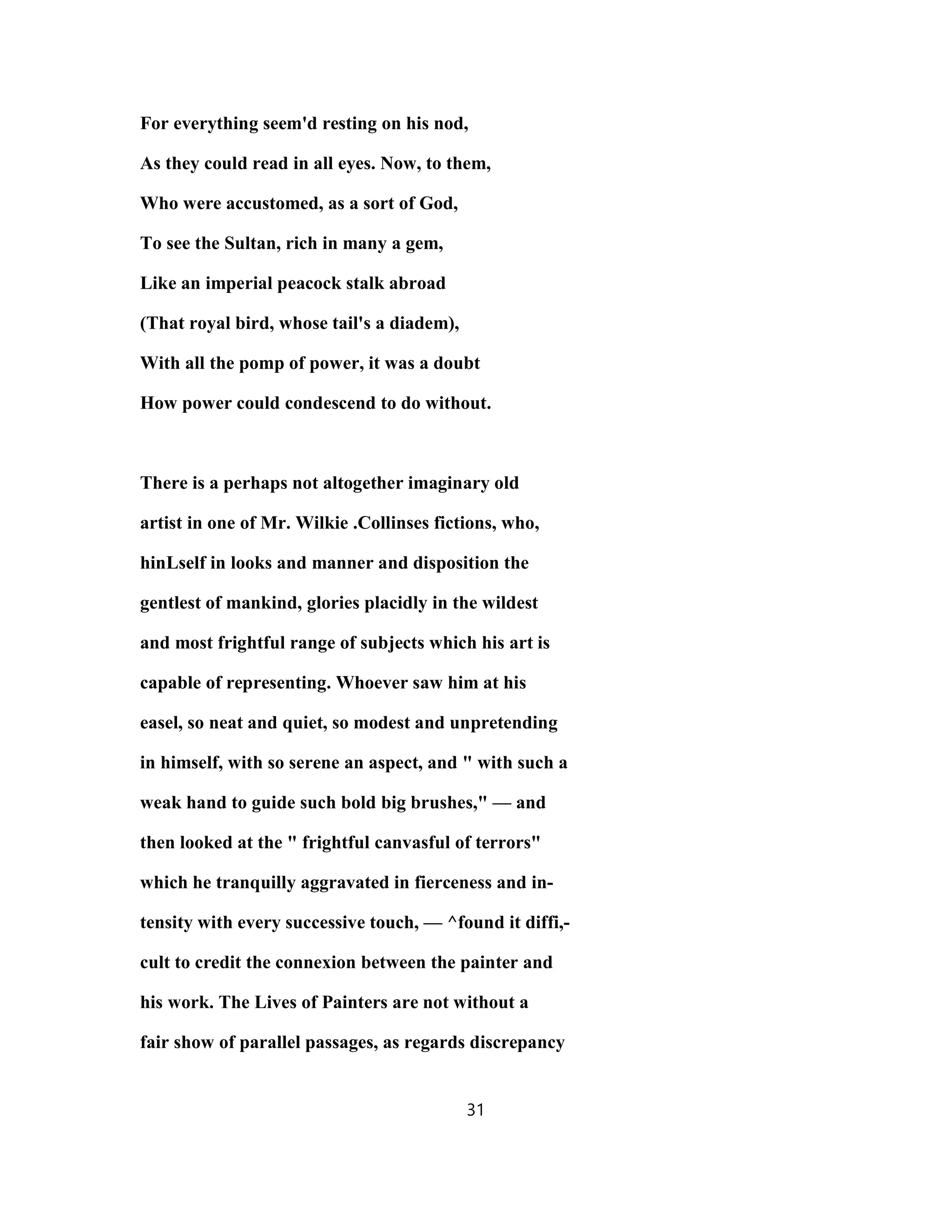


![the pronunciation of the words * It was in his
appeal to Lord John Russell to have done with
dexterity and finesse, and to cultivate rather " those
line manly historico-Russell qualities he most un-
doubtedly possesses," that Sydney Smith pointedly
said : " There are two beautiful words in the Eng-
lish language, — Yes and No; he must pronounce
them boldly and emphatically ; stick to Yes and No
to the death ; for Yes and No lay his head down
upon the scaffold, where his ancestors have laid
their heads before, and cling to his Yes and No in
spite of" political foes and flatterers all and sundry.
What the pungent pamphleteer wanted Lord John,
• " Thus he would drawl out * unquestionably * in a faint,
childish tone, and then say . . . [with an adjuration more em-
phatic than reverent] ... * does he mean yen t Then why not
say so at once, like a man ?' " — Statesmen of Time of George
III., vol. iii., Sir Philip Francis.
24 RECREATIONS OF A RECLUSE.
34](https://image.slidesharecdn.com/thebestoffrancisjacox-171030162308/75/The-best-of-francis-jacox-34-2048.jpg)


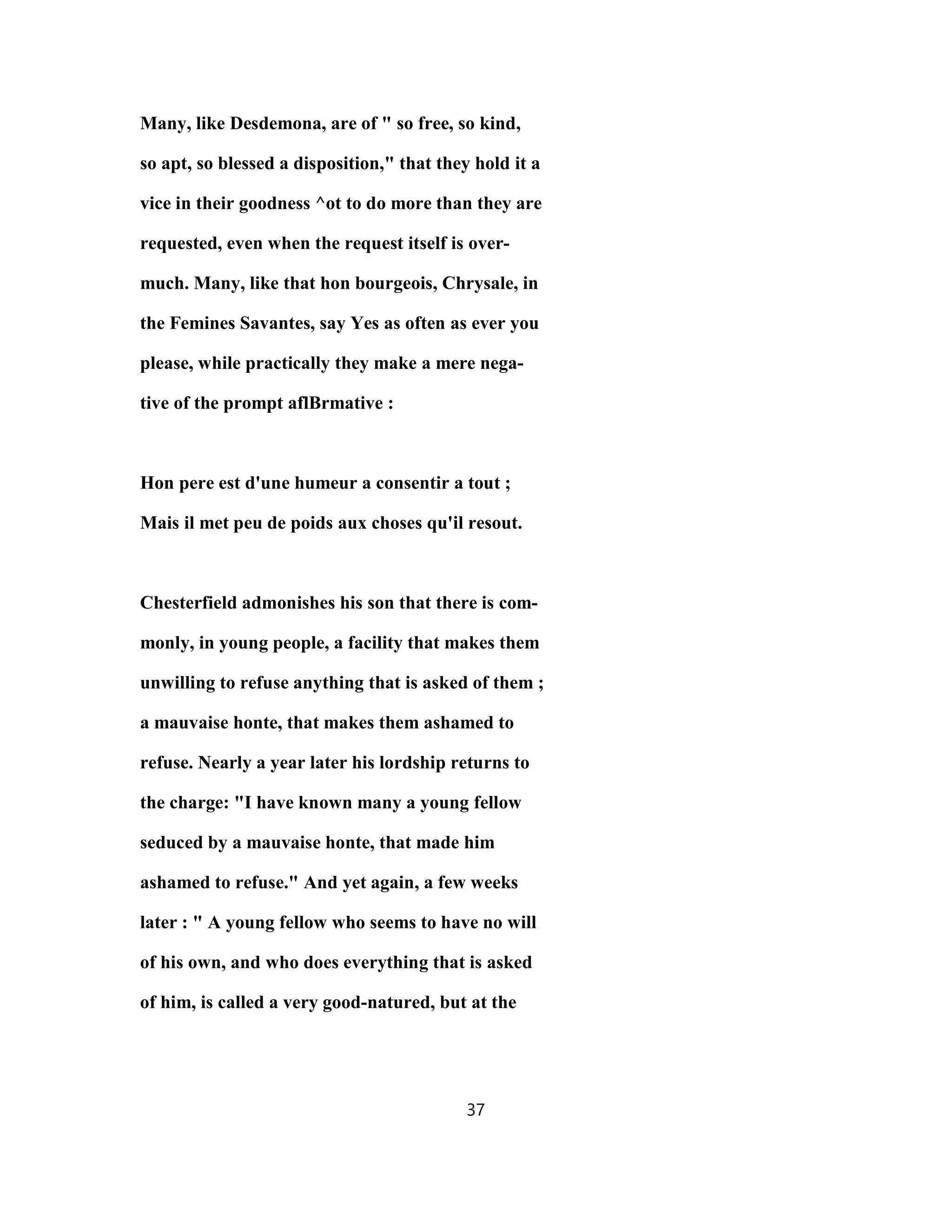

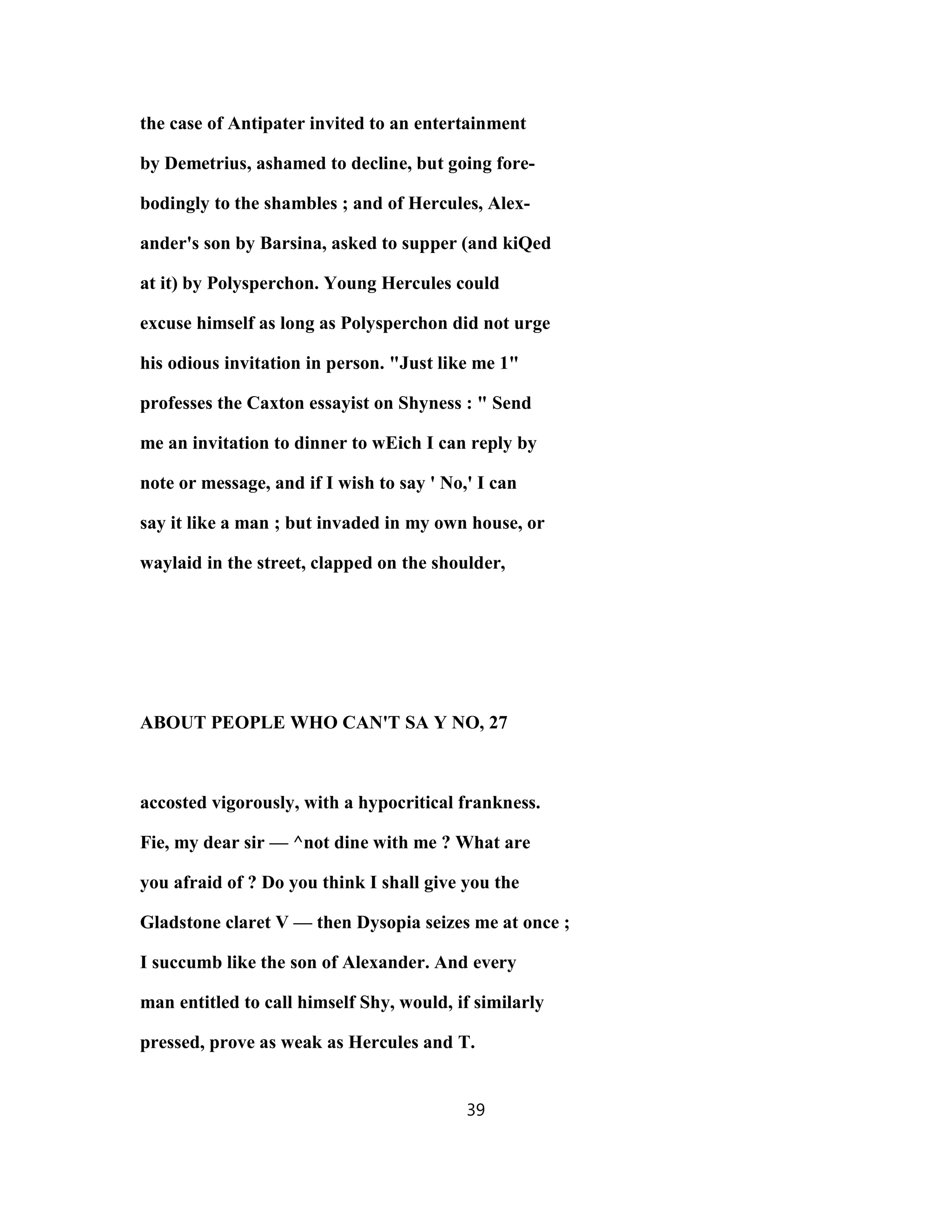



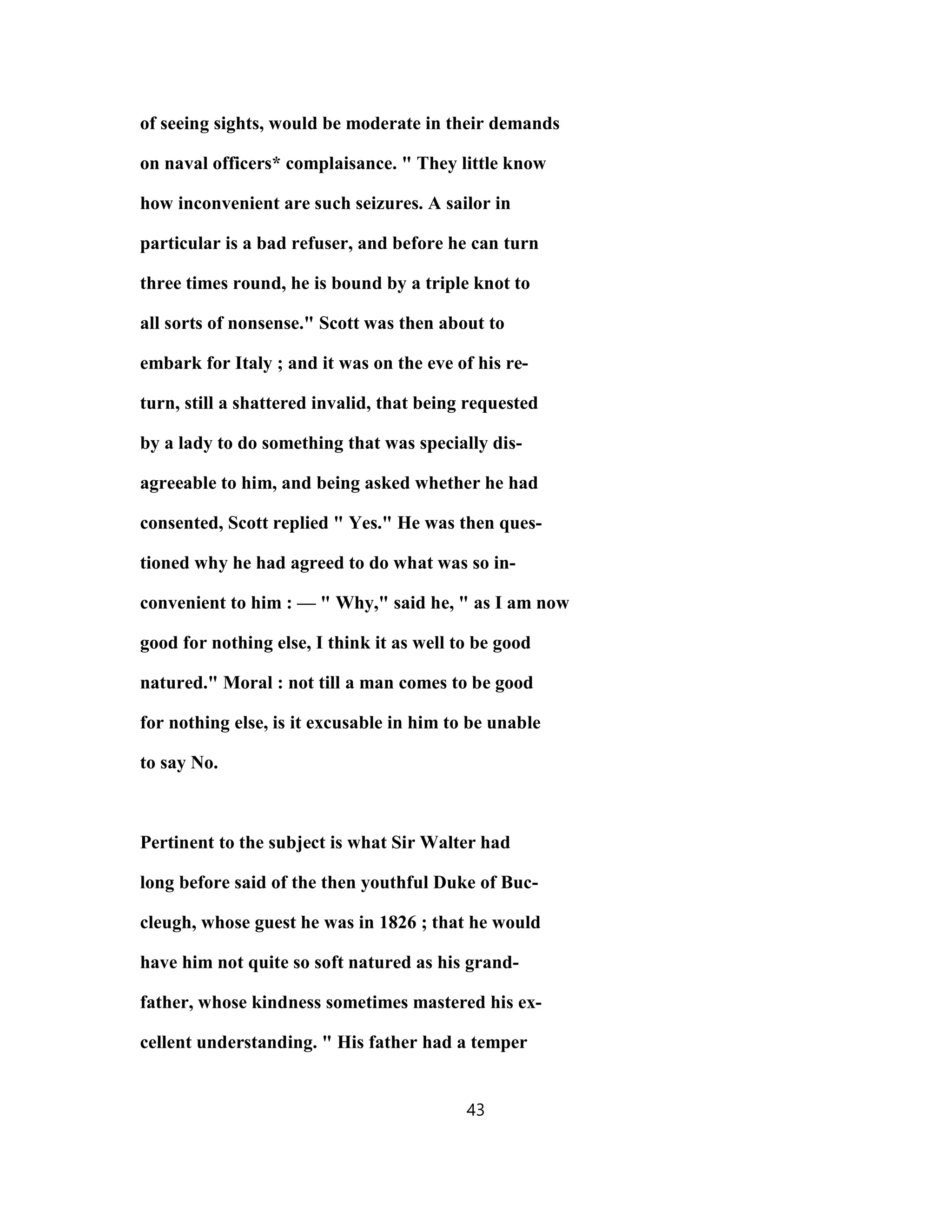



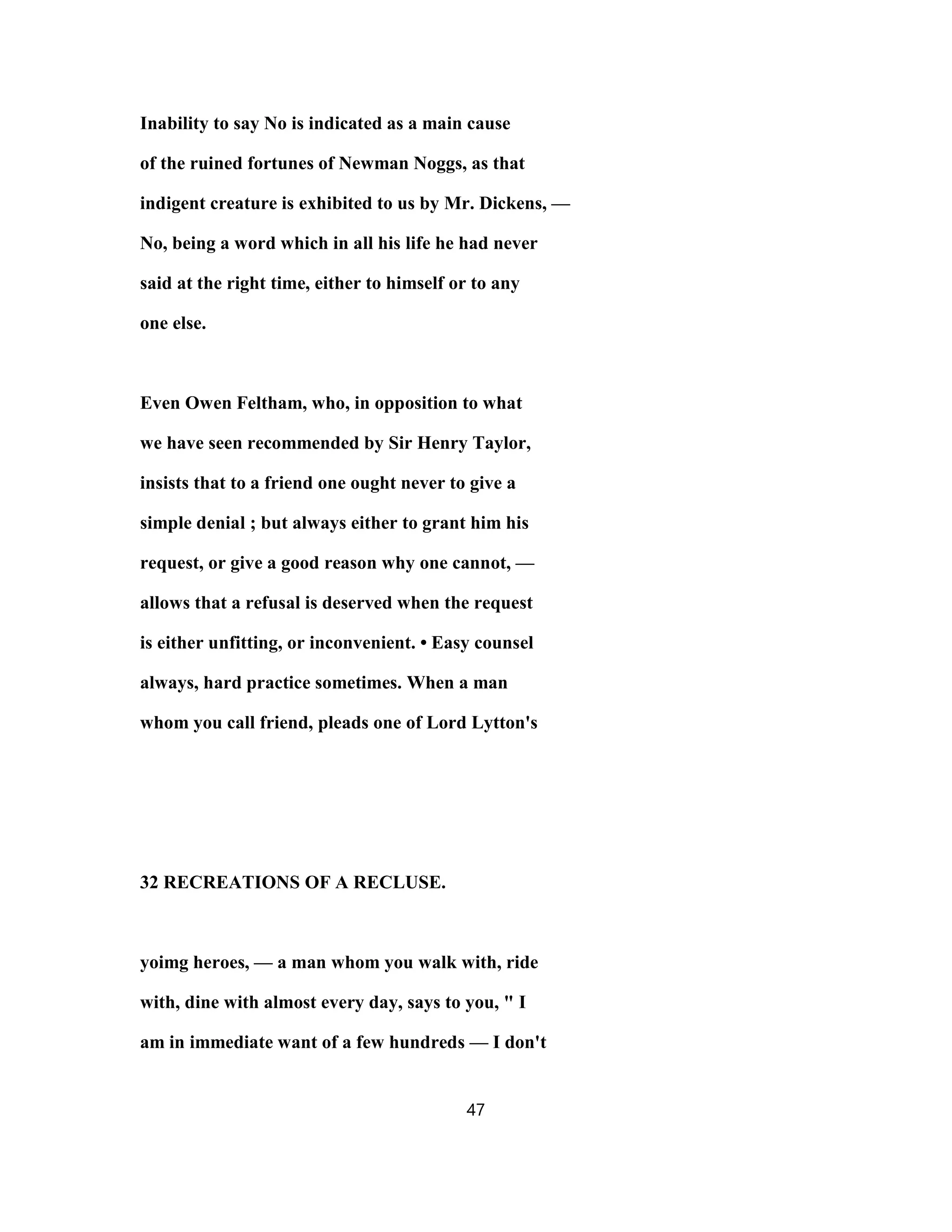

![' No,' though he knew at the time how gross was
the error which he was committing. He had lacked
the courage to say ' No,' and hence had come upon
him and on his household all this misery and cause
for bitter repentance."
ABOUT PEOPLE WHO CAN'T SA V NO. 33
Lord Lytton pictures in Mr. Digby an only son —
a spoiled child — brought up as "a gentleman," who
enters a very expensive regiment, wherein he finds
himself, at his father's death, " with four thousand
pounds, and the incapacity to say ' No.' " Altogether,
the easiest, gentlest, best-tempered fellow whom that
incapacity ever— and how many it ha^— led astray.
According to Douglas Jerrold*s biographer, had that
popular writer, in his early days, "possessed the
bravery to steel his heart once or twice, and hiss
[sic] a decided No, he had been a happier man
during many years of his life Once or twice
49](https://image.slidesharecdn.com/thebestoffrancisjacox-171030162308/75/The-best-of-francis-jacox-49-2048.jpg)
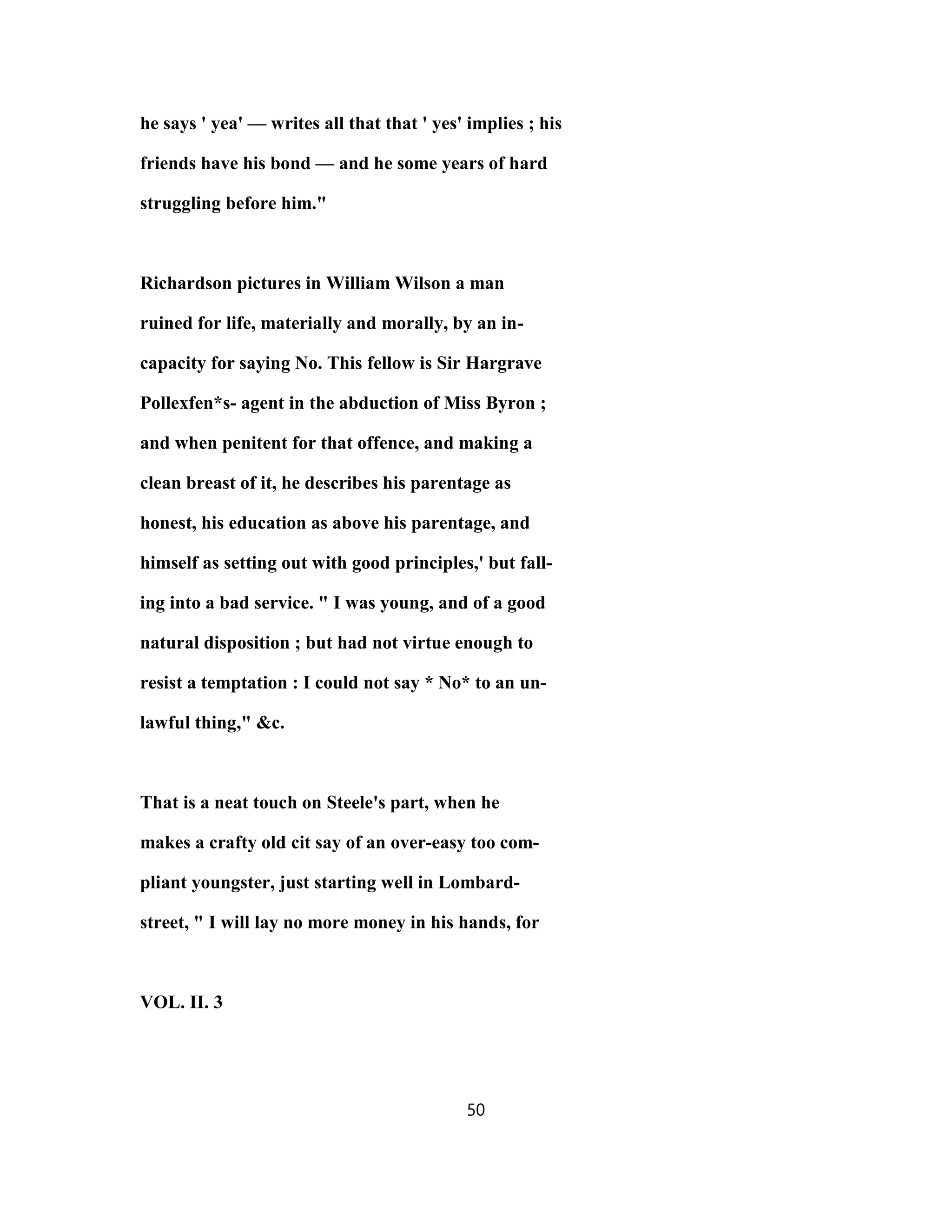


![universally odious ; and that the only way of being
popular, is — ^whether you comply with men's solici-
tations or not — to soothe them with hopes and fair
speeches."
The Duke of Marlborough is said to have had
the enviable art of refusing more gi-acefully than
other people could grant; and those who went away
from him most dissatisfied, as to the substance of
their business, were yet personally charmed with
him, and in some degree comforted by his manner.
He showed (not to say shoved) them down stairs
with so winning a grace, that they thought he was
handing them up. His No flattered and elevated
you more than many a man's Yes. No wonder my
Lord Chesterfield so much admired this one among
the duke's many accomplishments, and urged the
importance of it upon his son's particular attention.
He lavishes notes of admiration on this grace not
beyond the reach of art. " In business Piigh, official,
diplomatic, and the like] how prevalent [that is, pre-
vailing ; not, by any means, how common] are the
graces ! how detrimental the want of them ! By the
help of these, I have known some men refuse favours
53](https://image.slidesharecdn.com/thebestoffrancisjacox-171030162308/75/The-best-of-francis-jacox-53-2048.jpg)
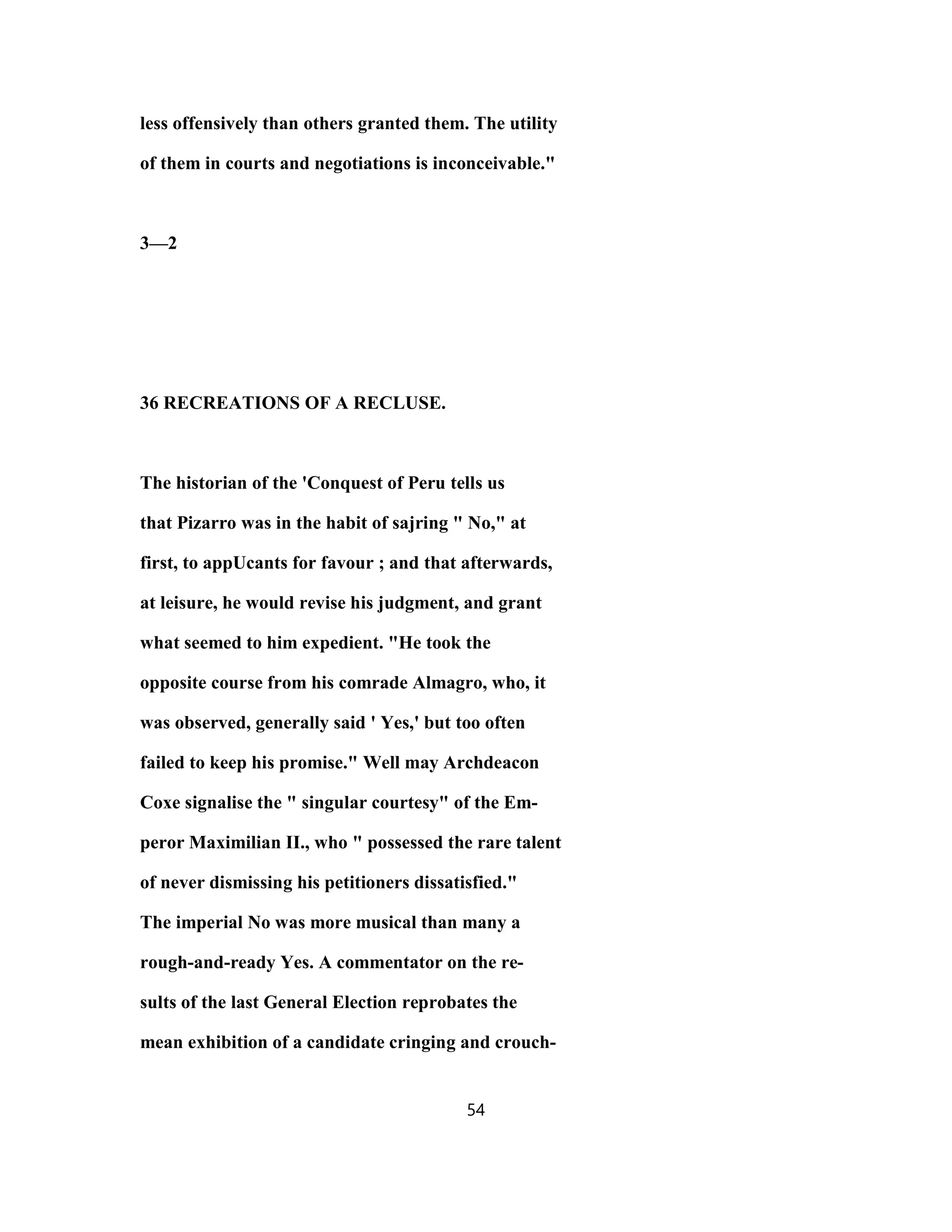
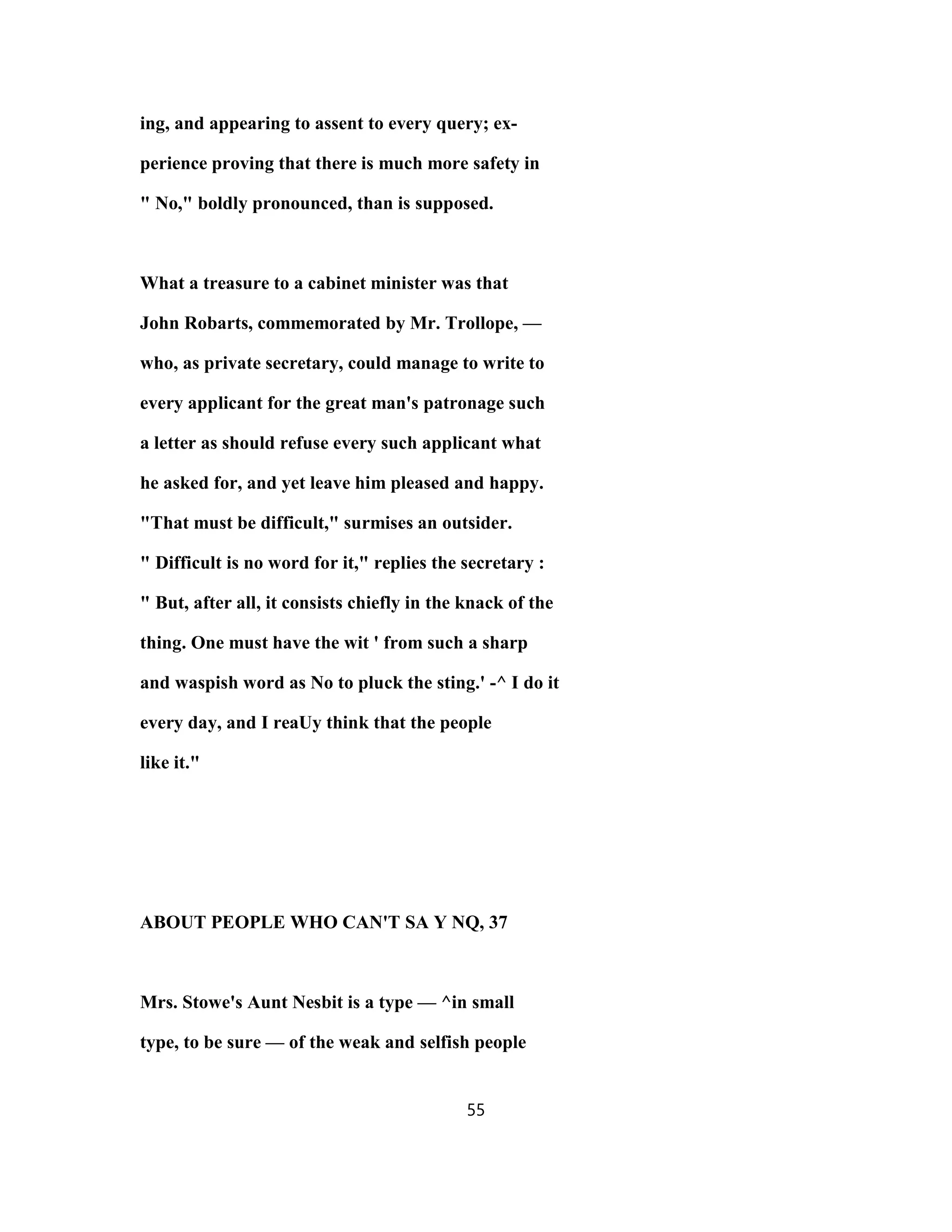
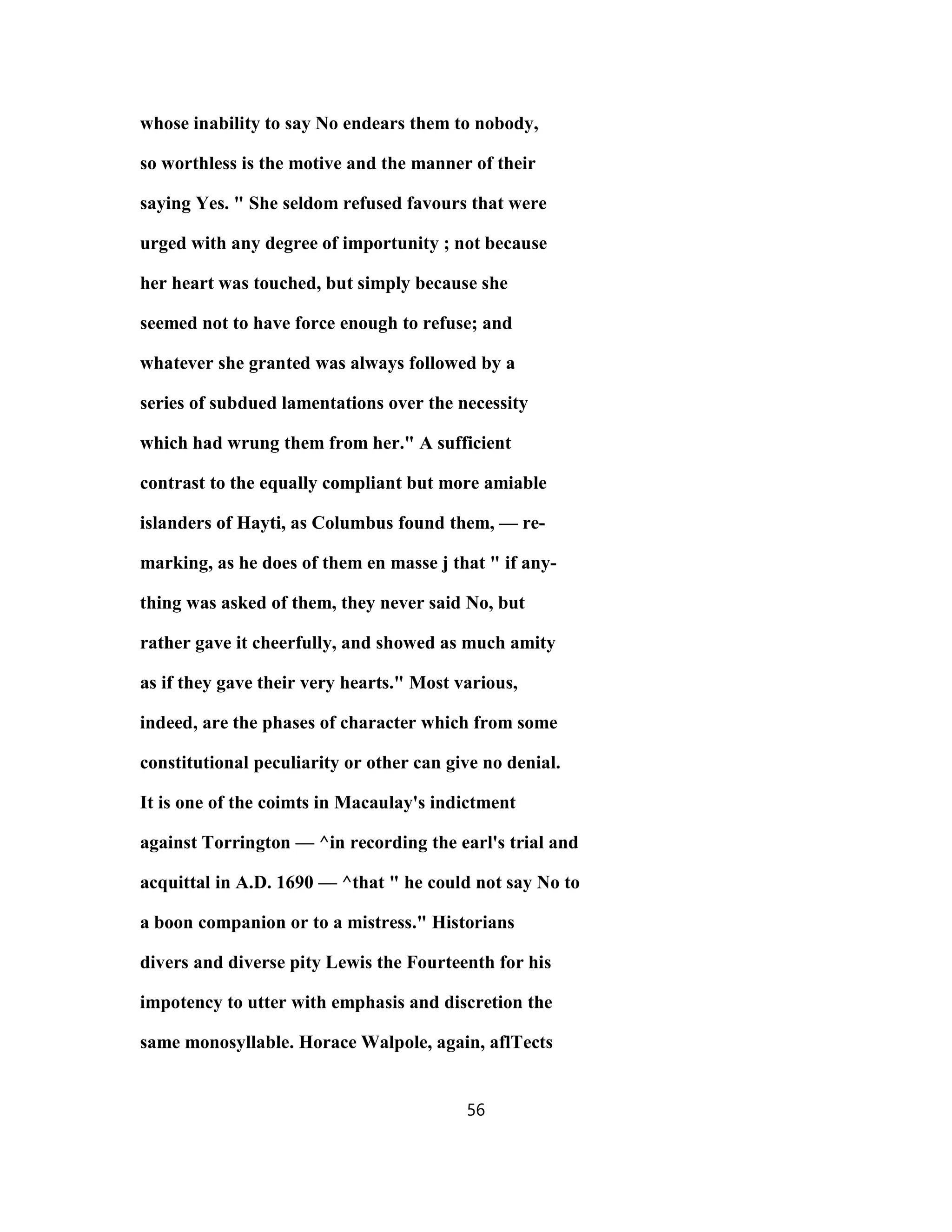
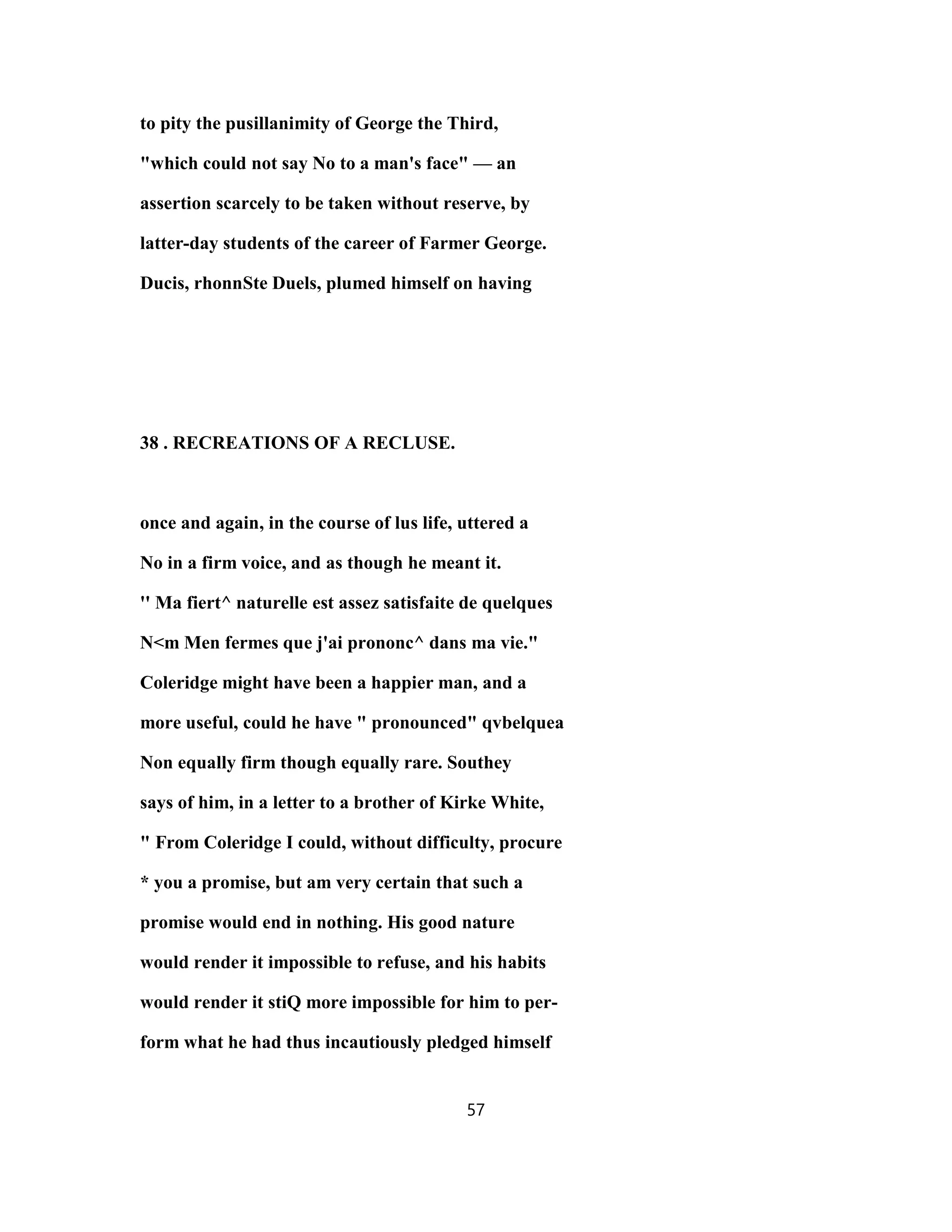



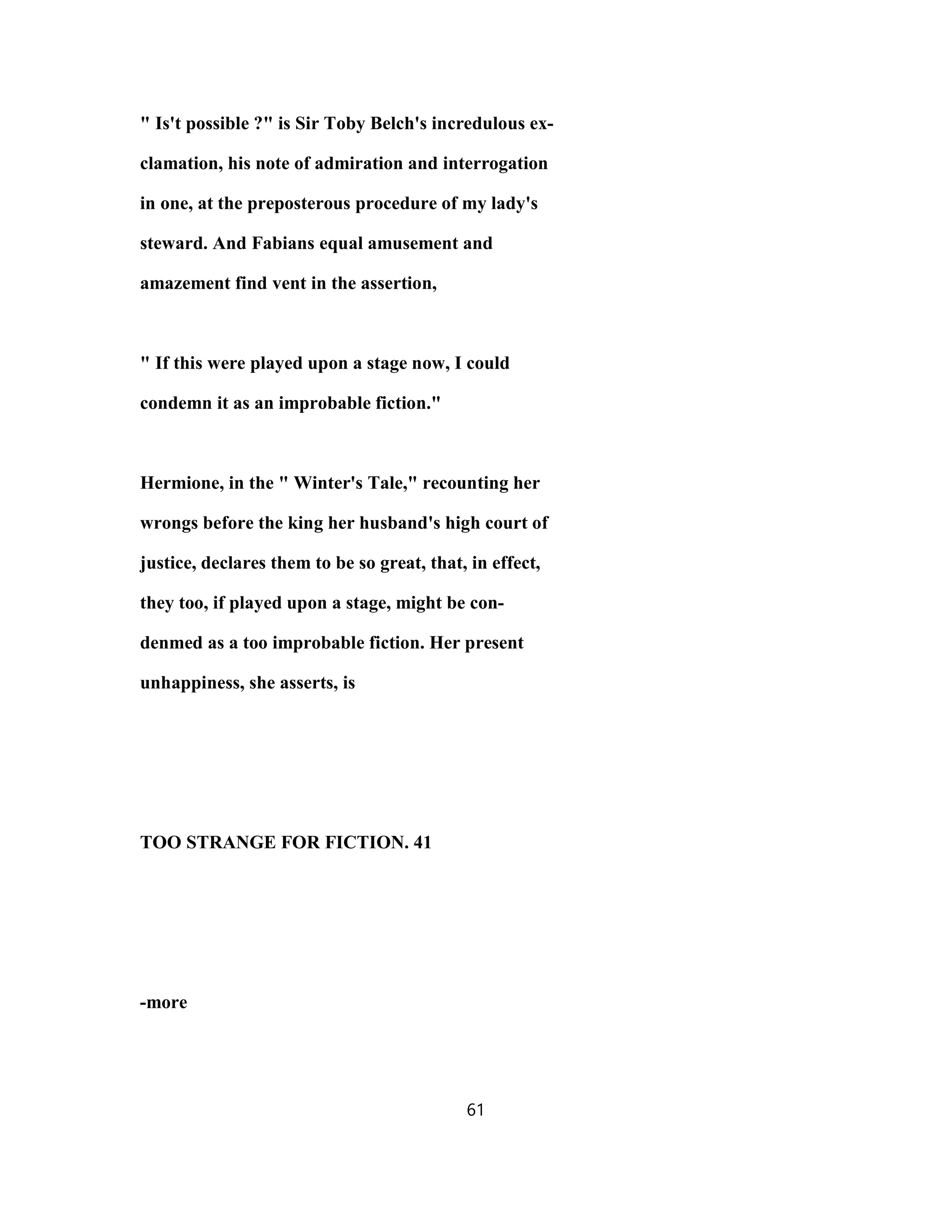
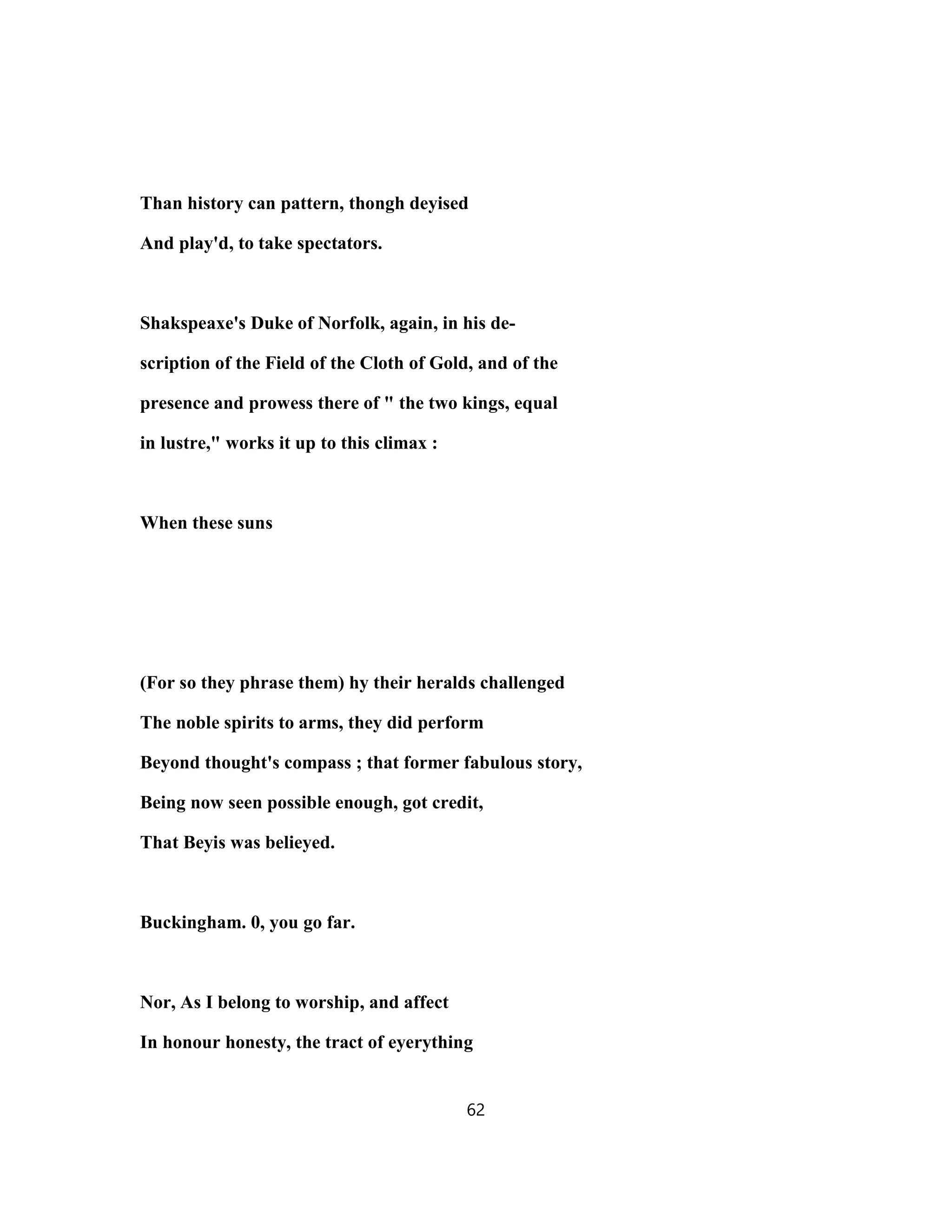
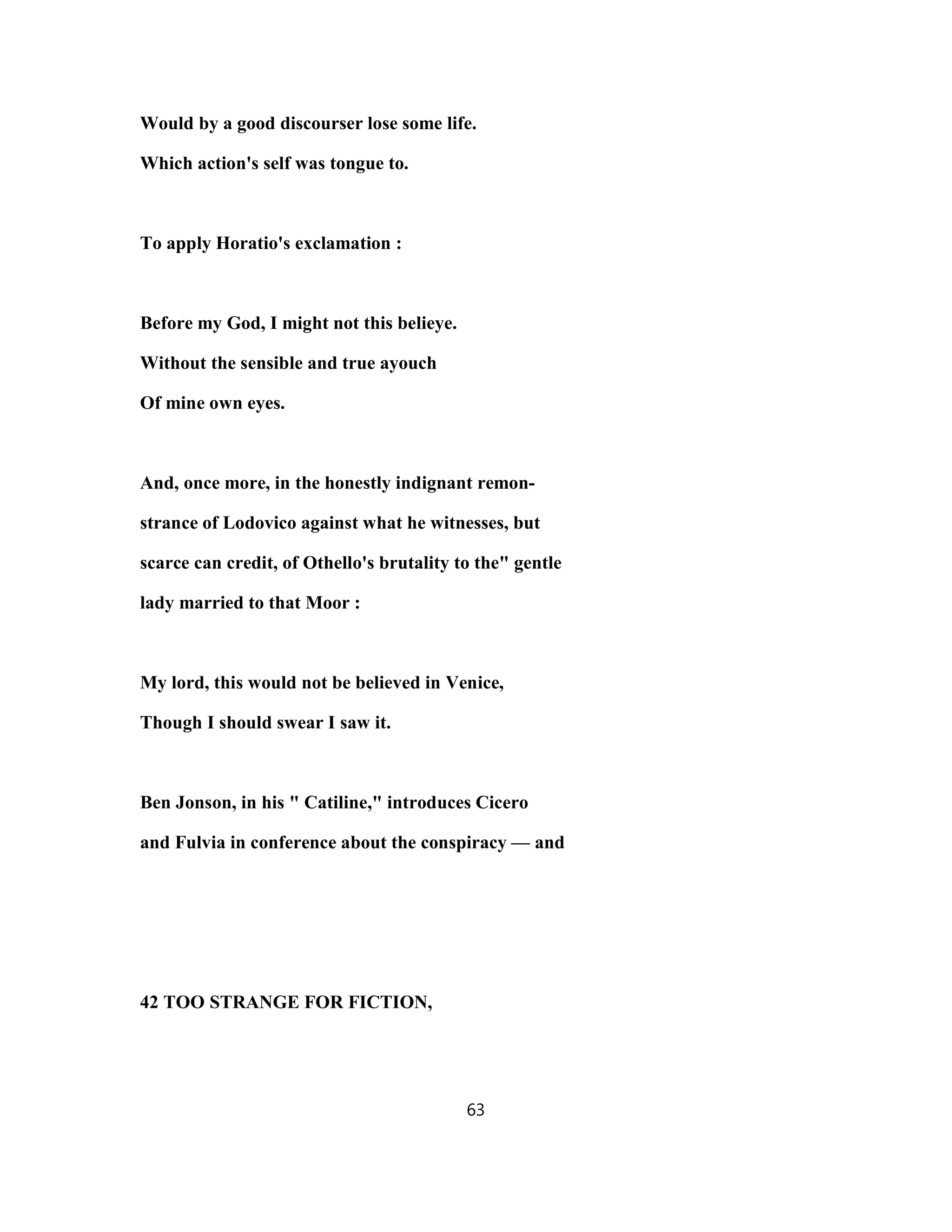


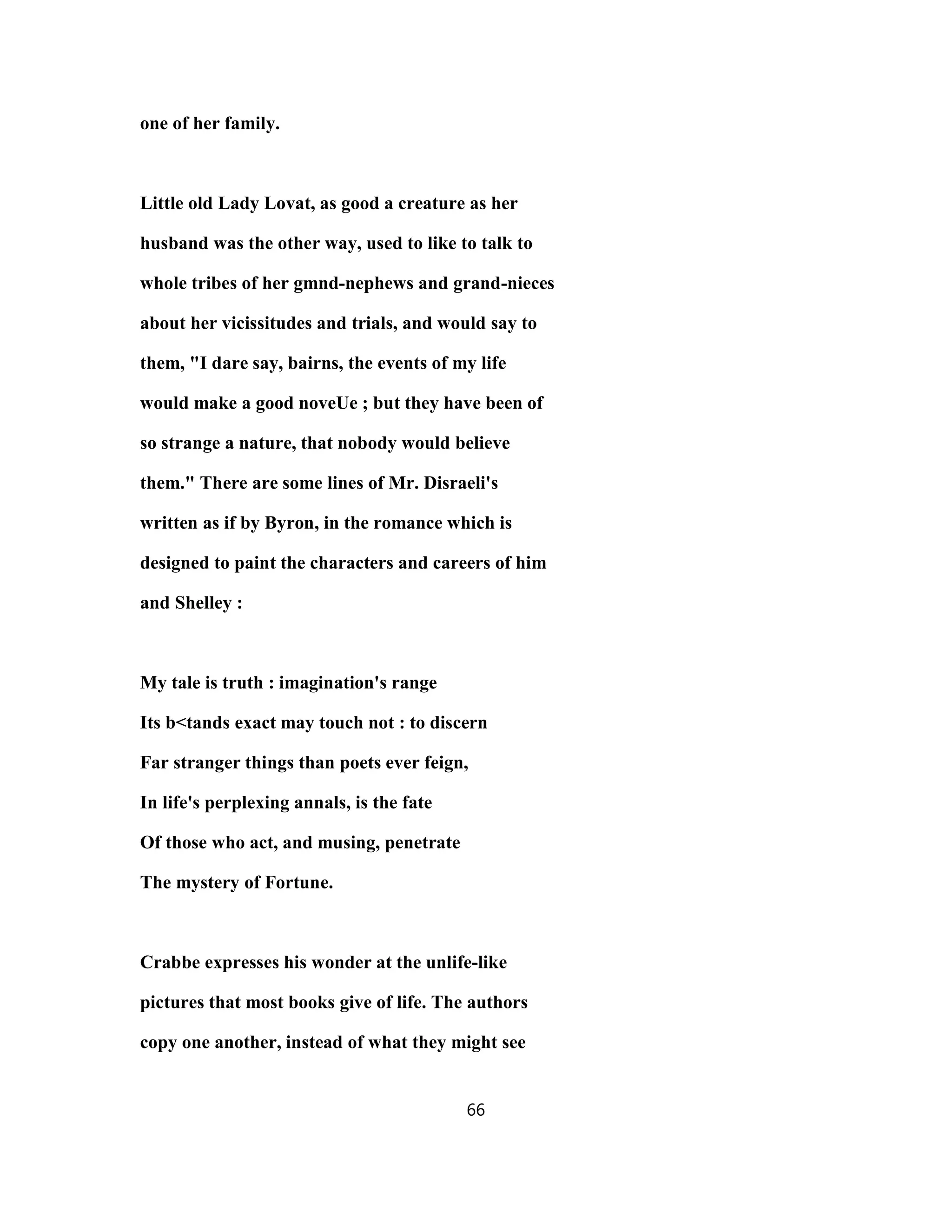


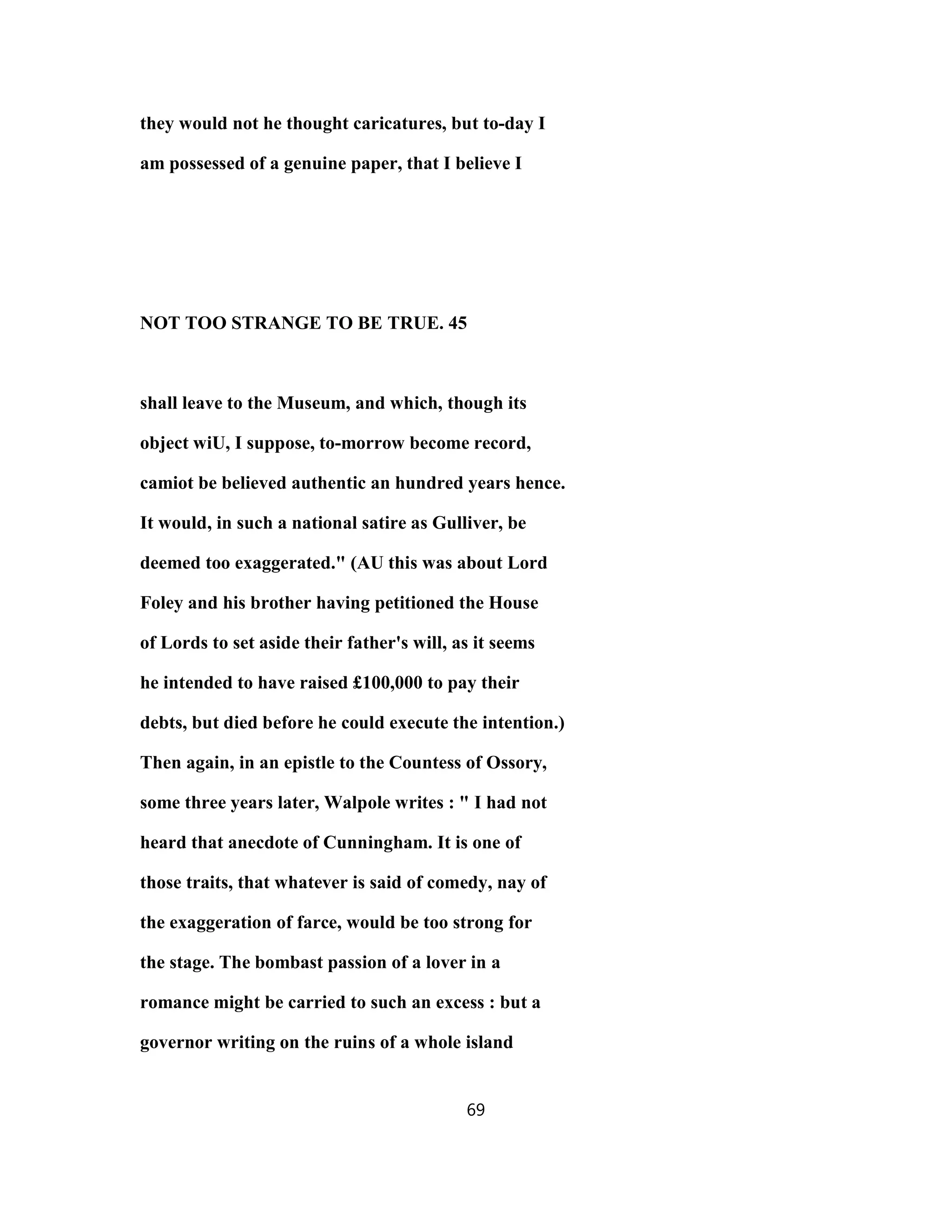





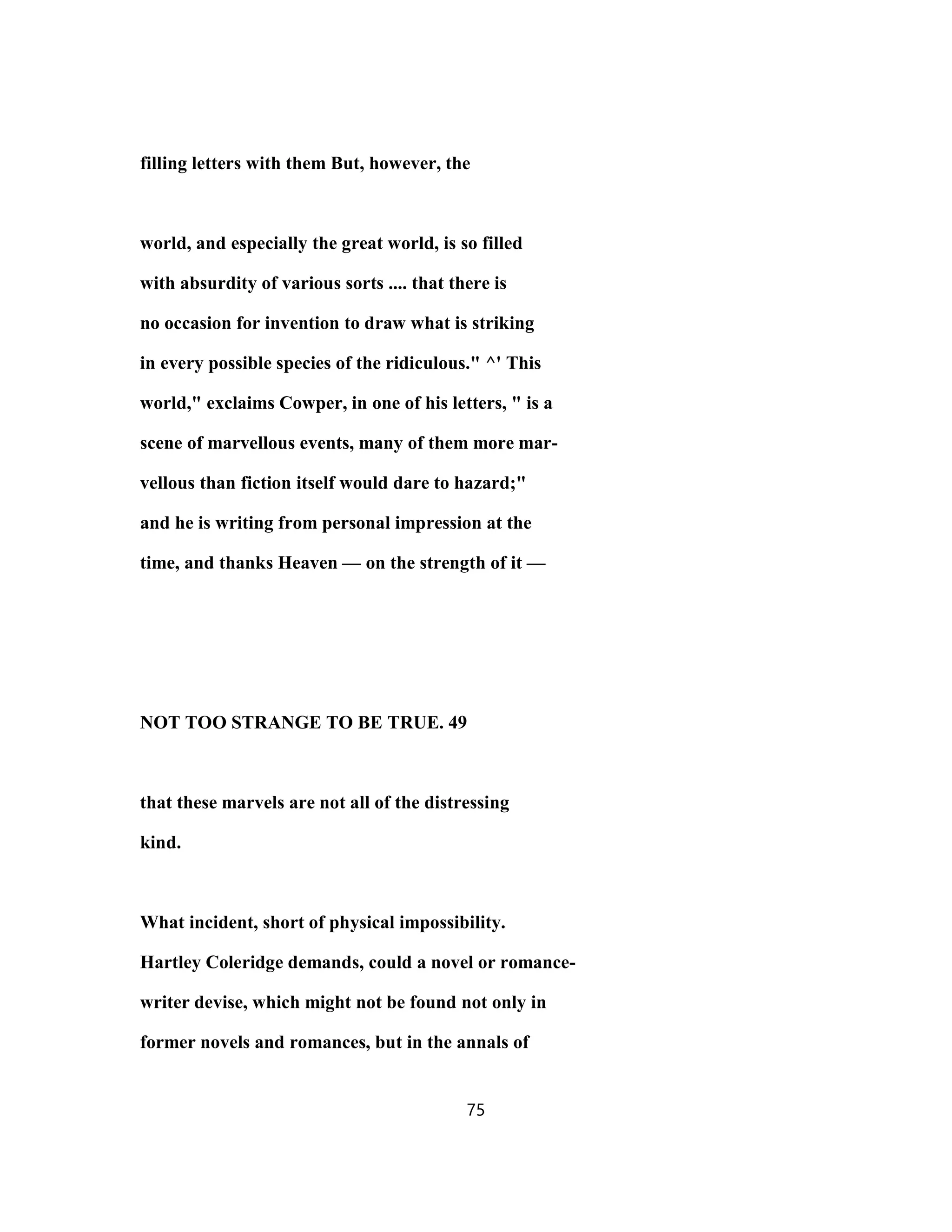
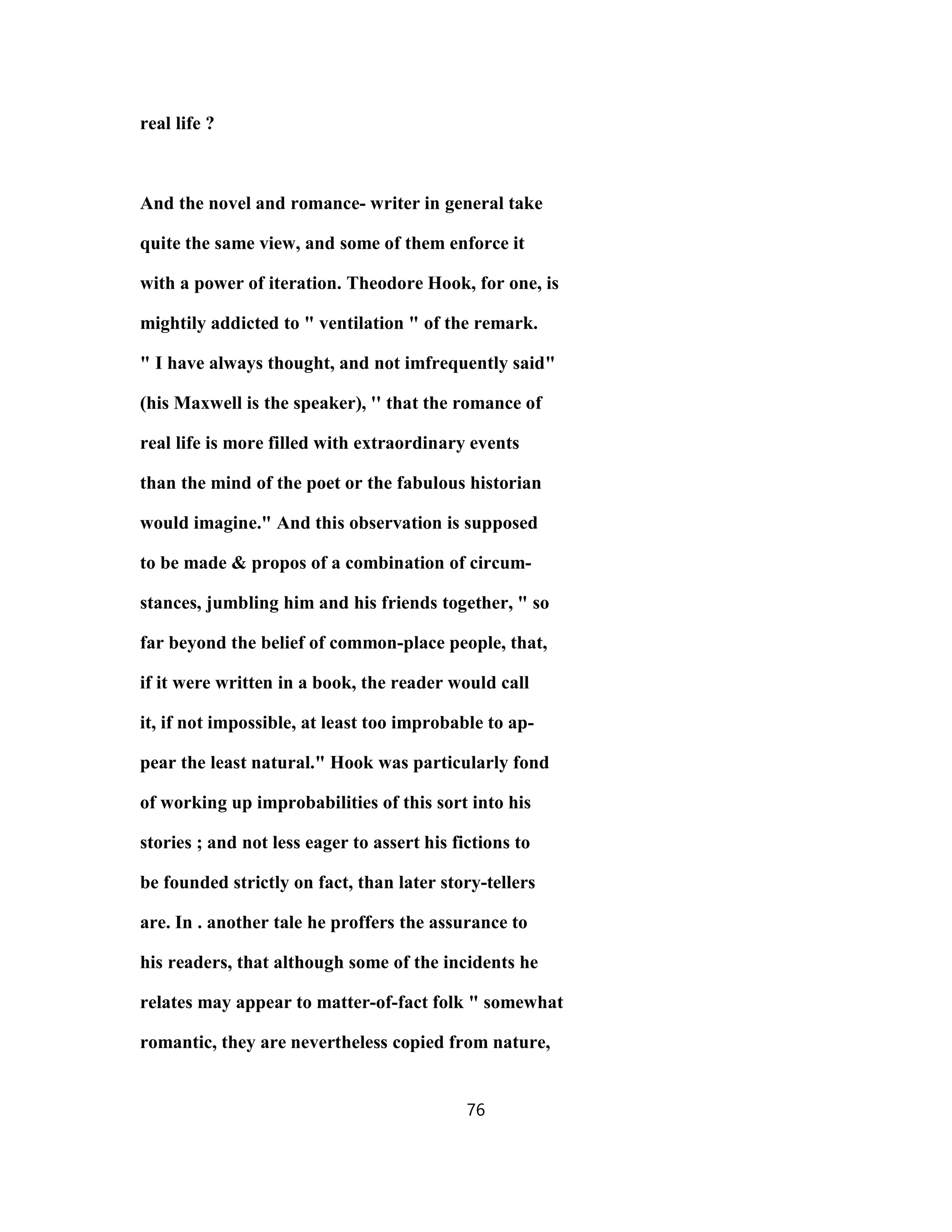
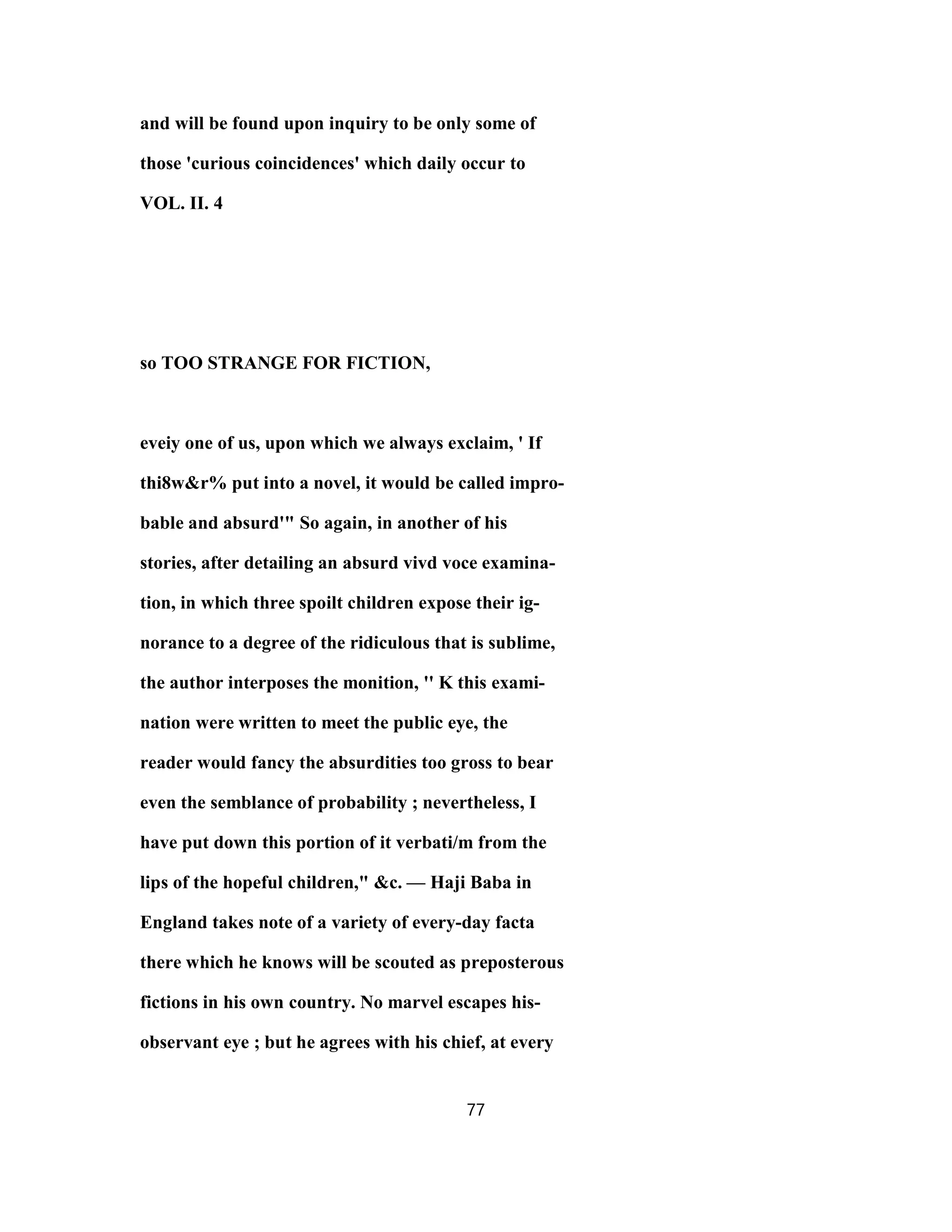


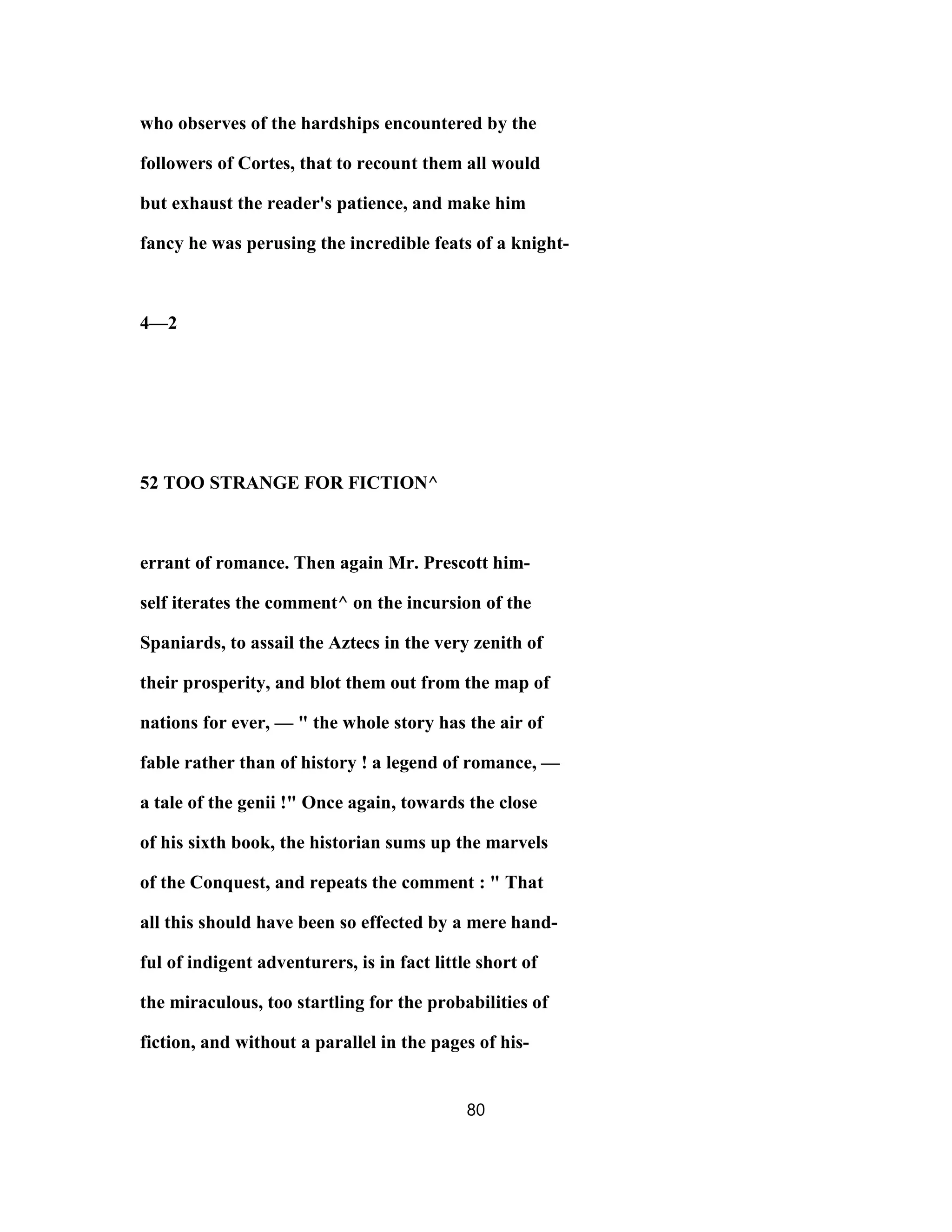
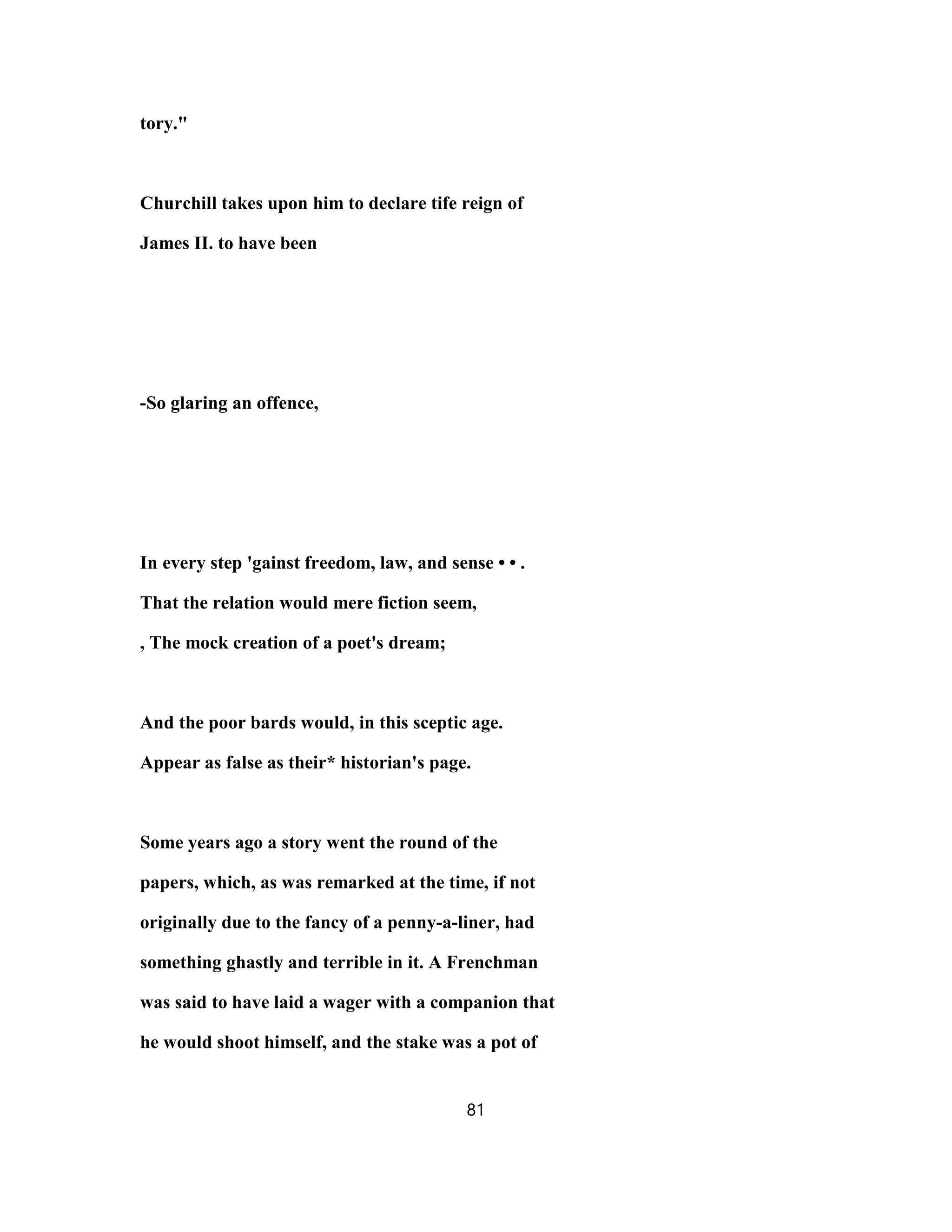



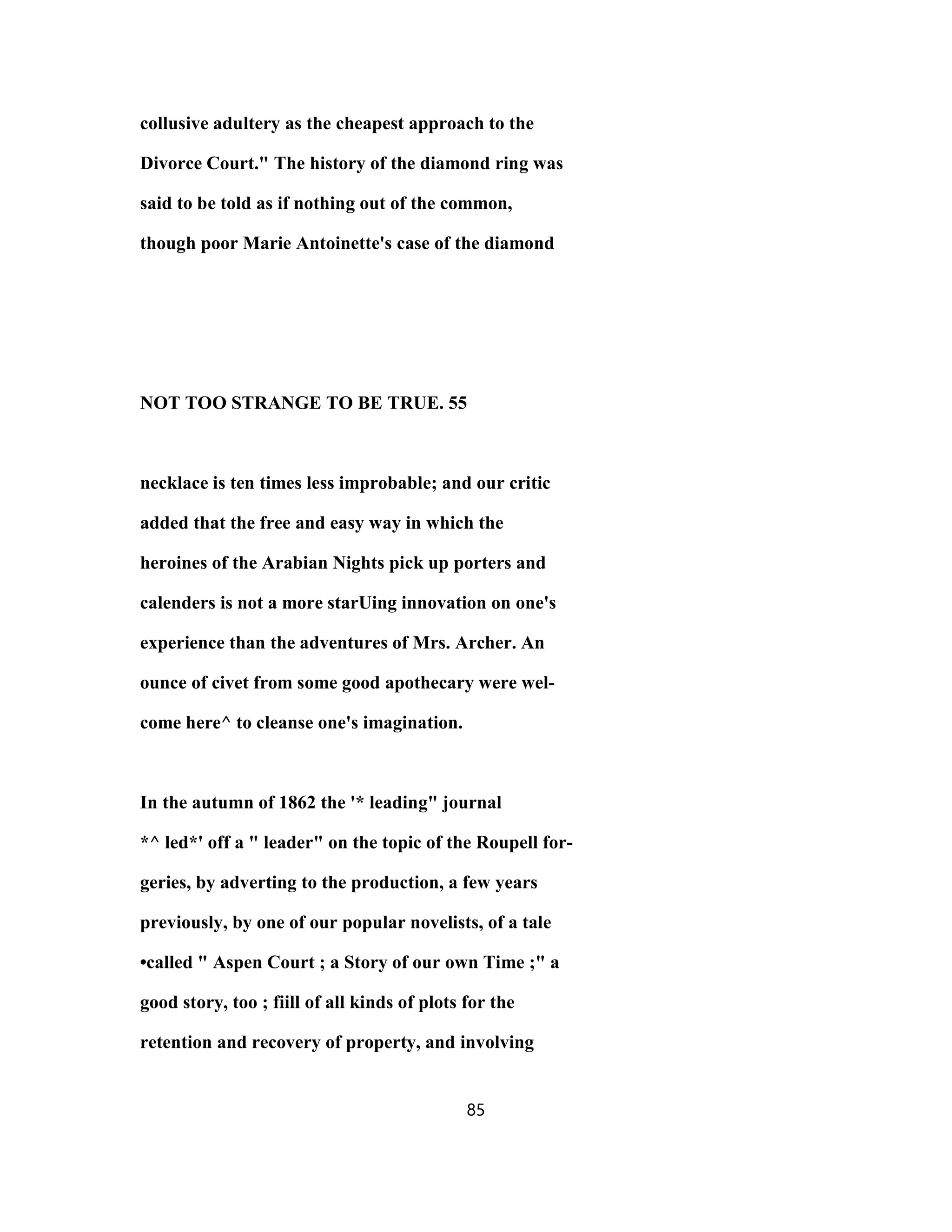



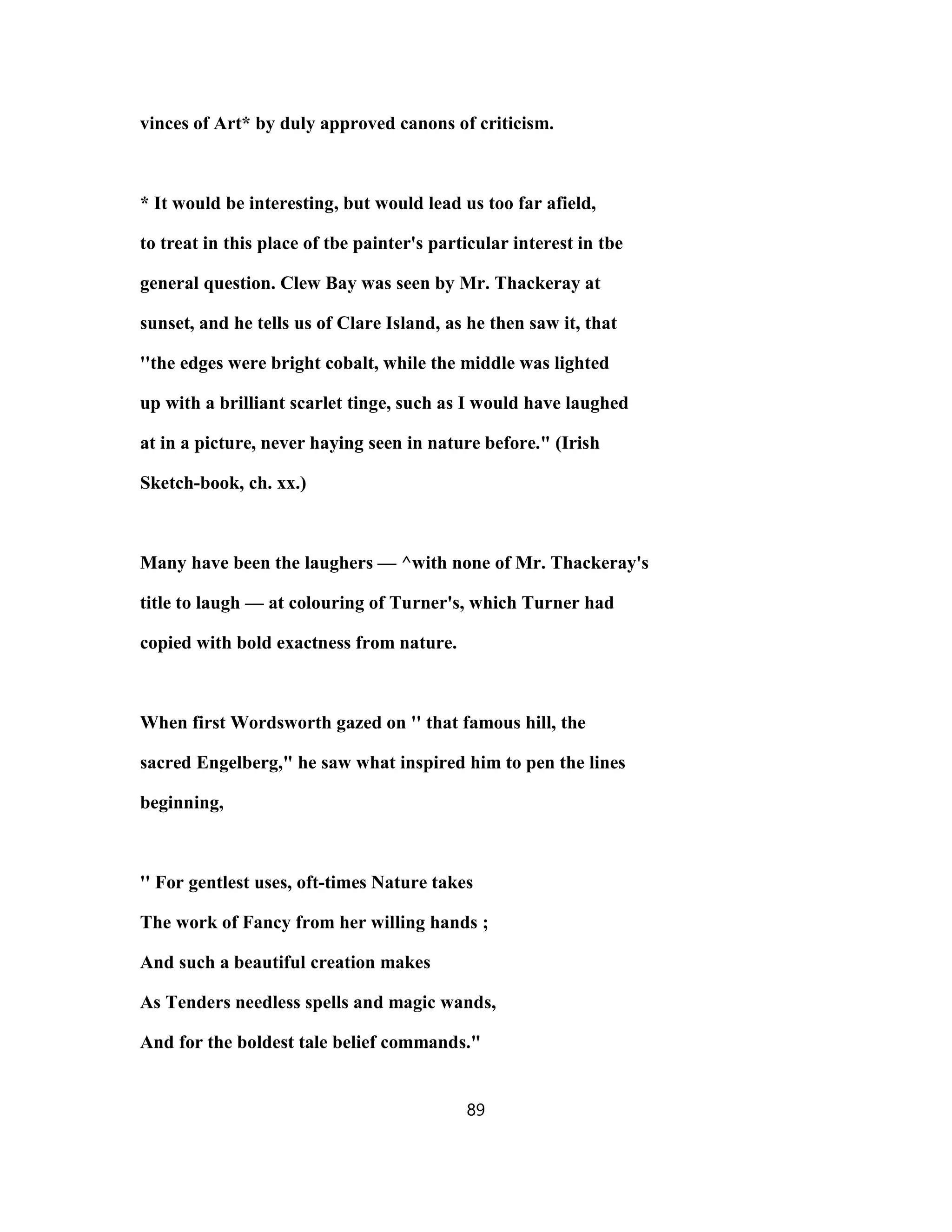


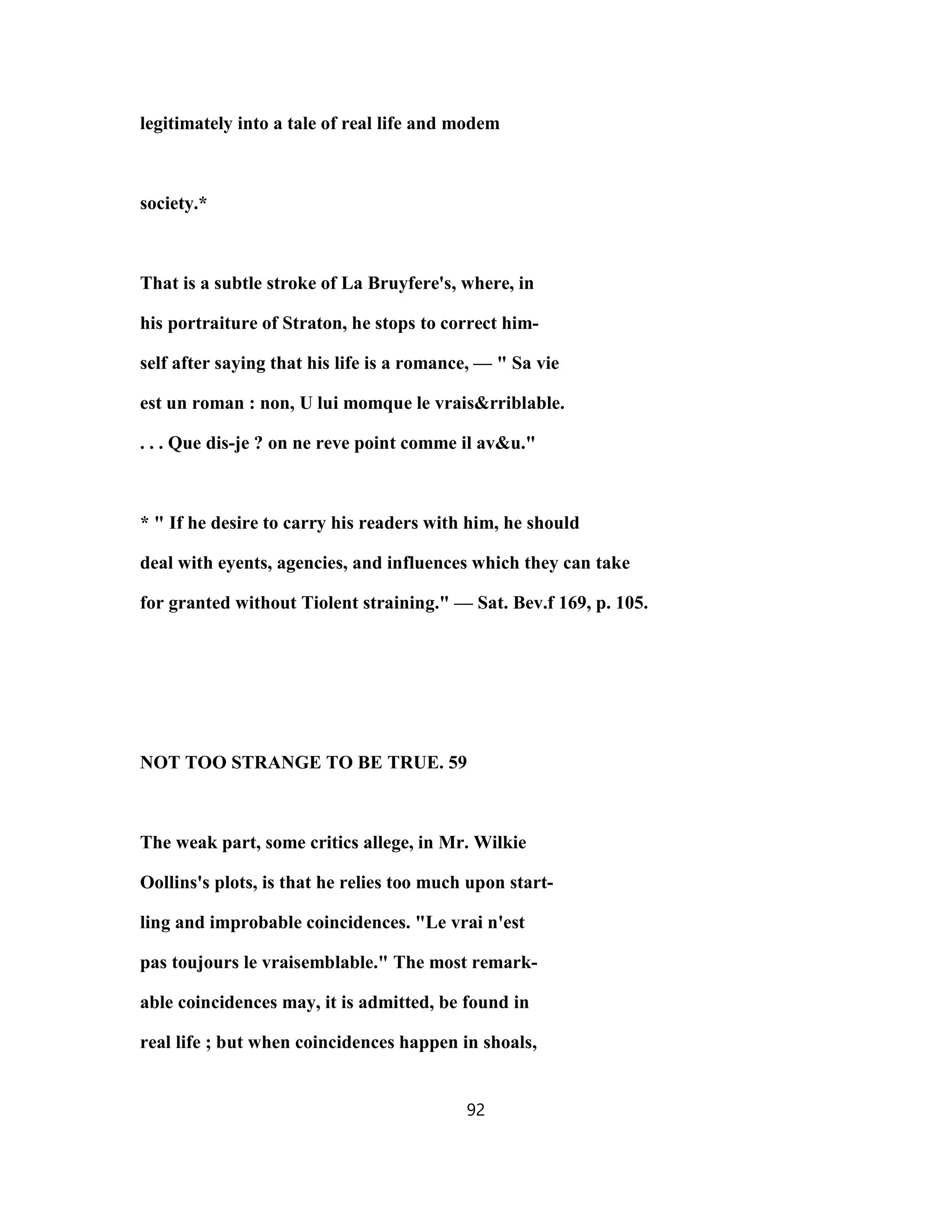
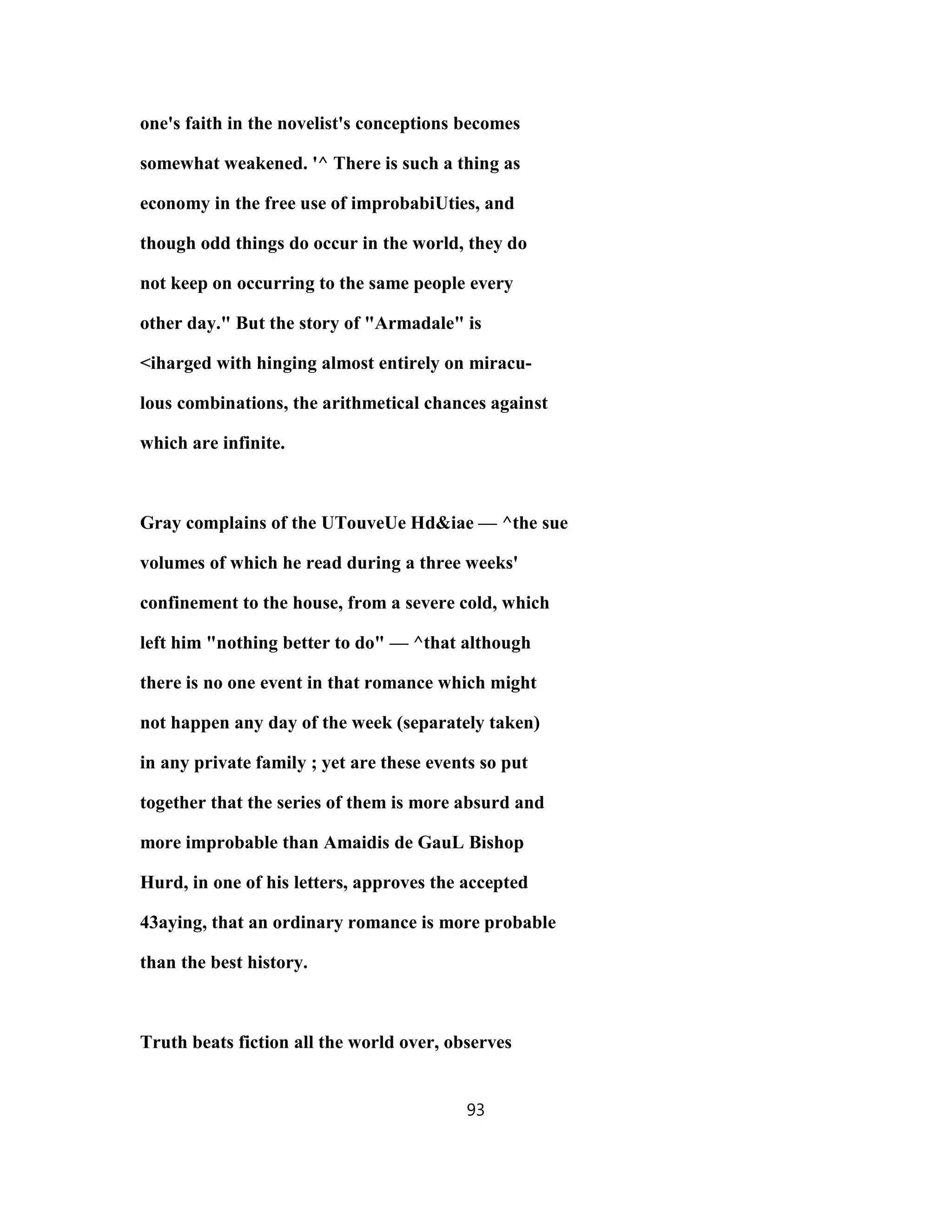
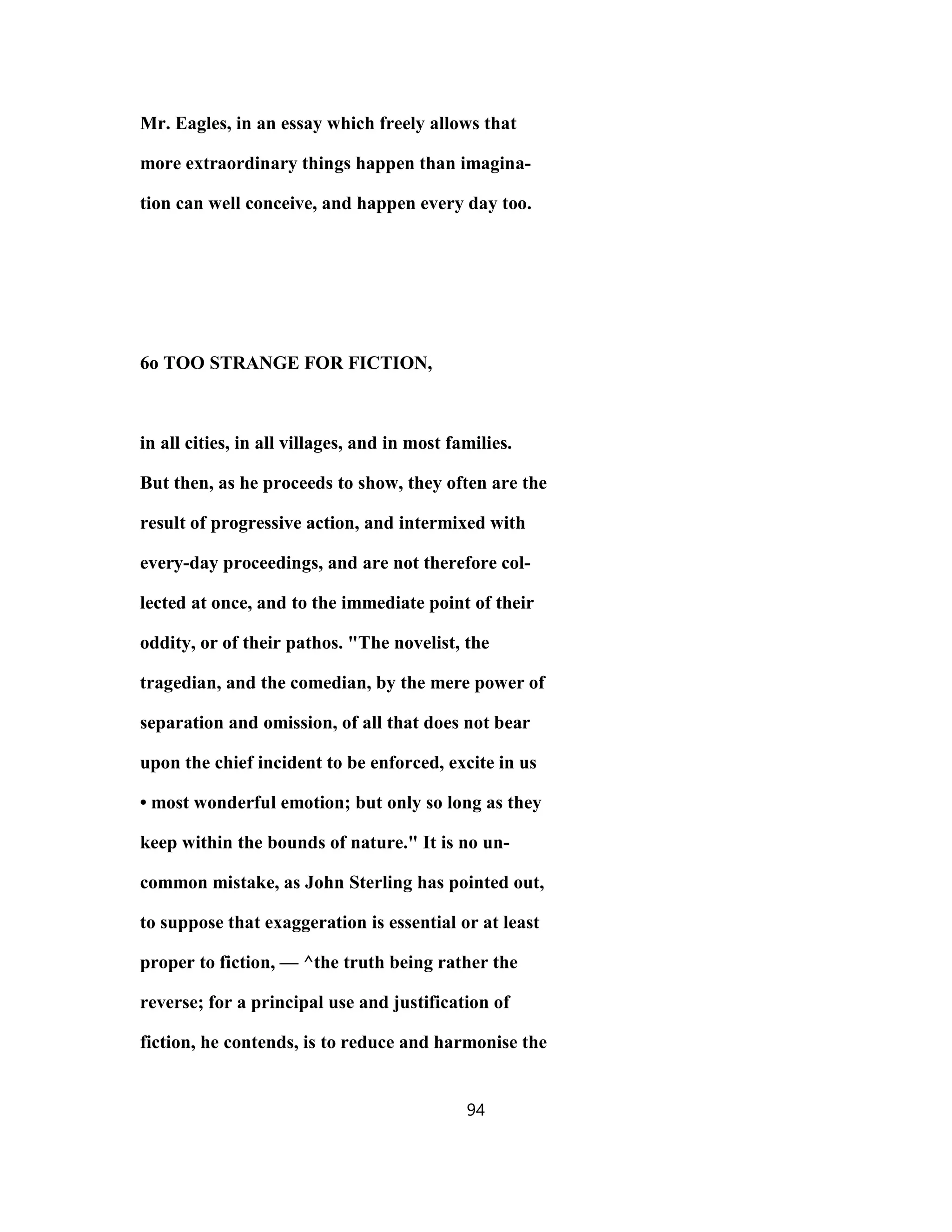

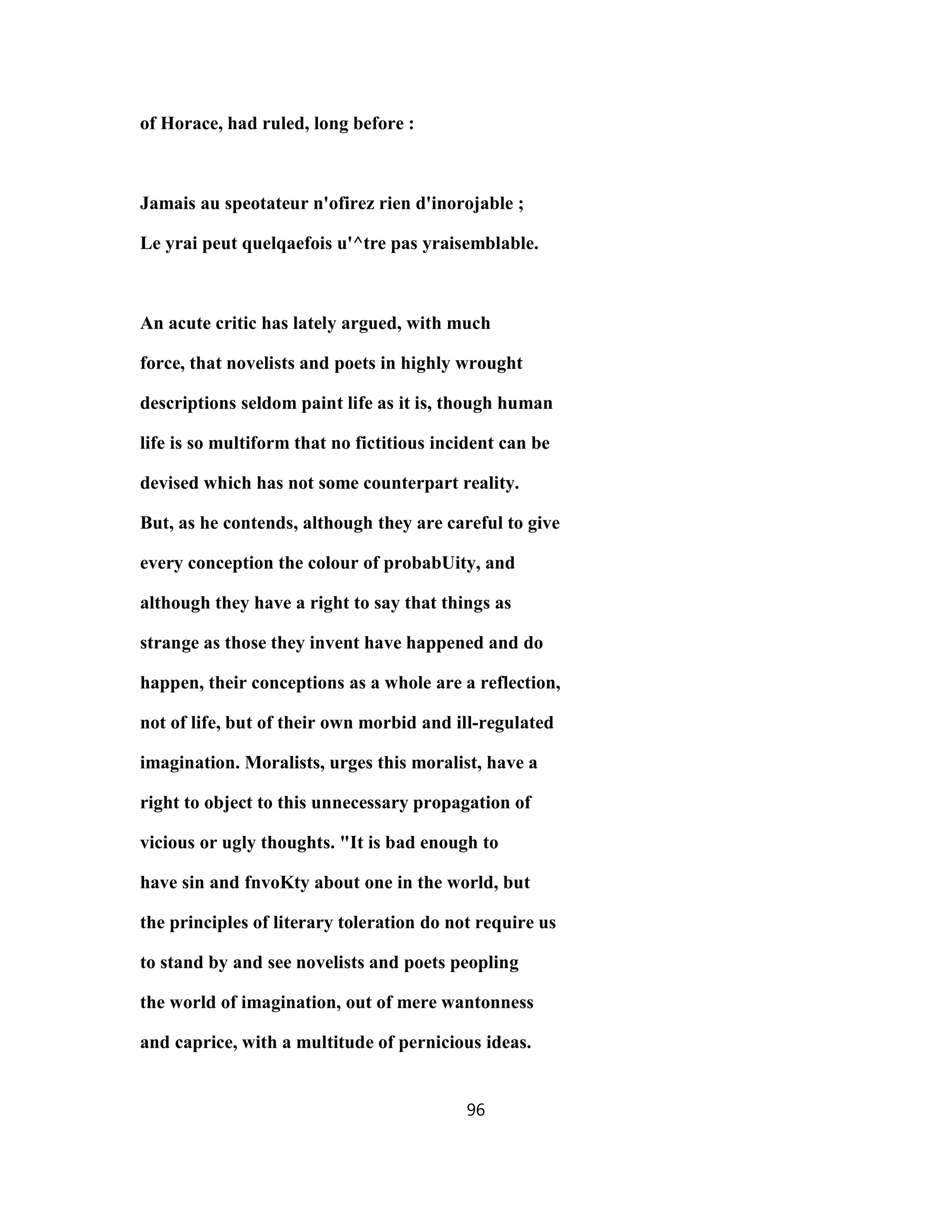
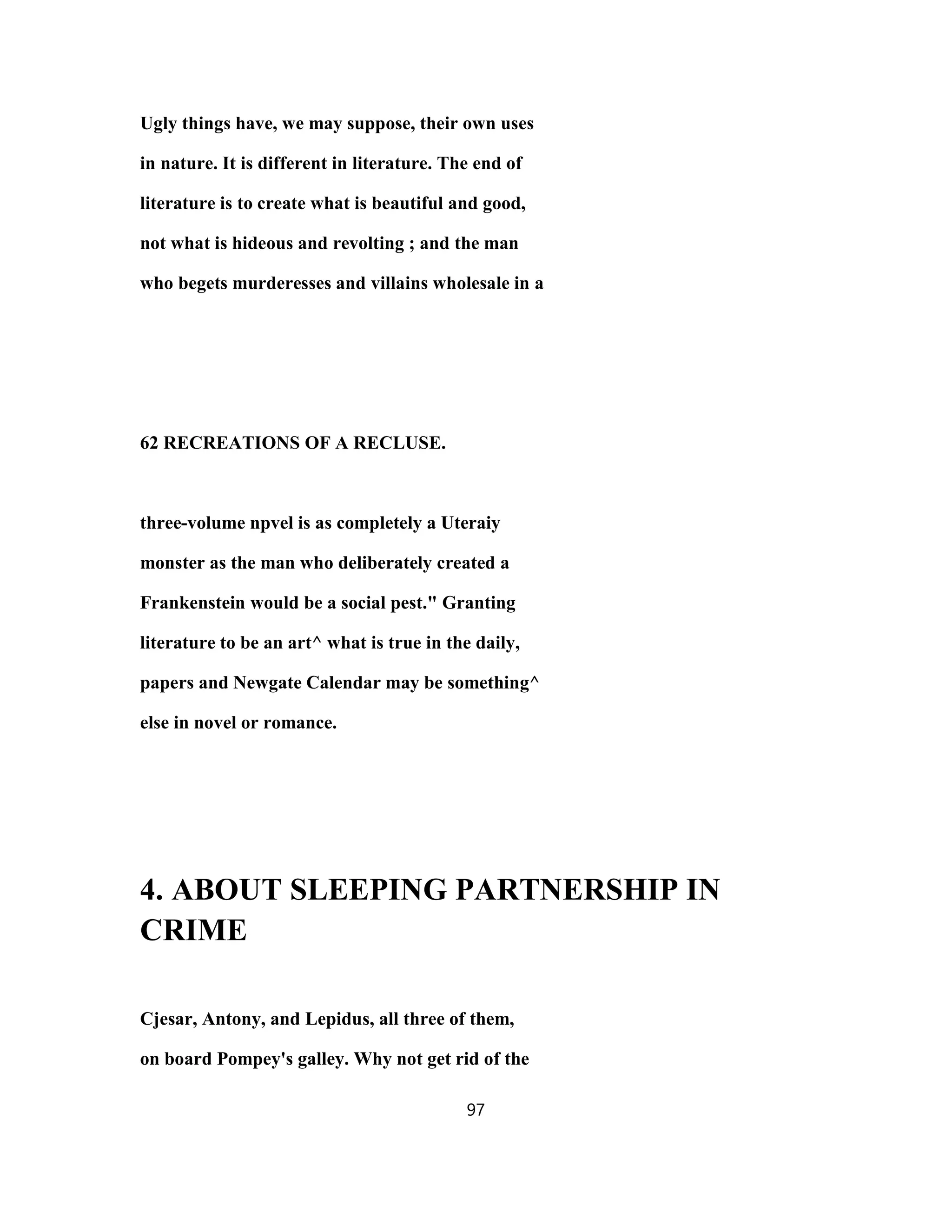



![Plutarch being the assumed source of Shakspeare's
general knowledge of ancient history, it may be
interesting to compare the bald narrative of the
biographer with the animated, adaptation of the
dramatist. Plutarch simply records that "during
the entertainment [of the three guests on board of
Pompey's admiral-galley of six oars — the only
patrimonial mansion that was left him, said their
host], while the raillery ran briskly on Antony and
Cleopatra, Menas came to Pompey, and told him
secretly, that if he would permit him to cut the cable,
he would not only make him master of Sicily and
Sardinia, but of the whole Roman empire. Pompey,
after a moment's deliberation, answered, that he
should have done it without consulting him. ' We
must now let it alone,' said he, ' for I cannot break
my oath of treaty.' "
It suited both the conspirators against the life of
the first Csesar, and his friend and theirs, Cicero, not
to take the latter into their counsels before the
deed was done which laid the dictator low. On the
evening of the day which sdw great Julius slaugh-
tered, Cicero, with other senators, visited the
101](https://image.slidesharecdn.com/thebestoffrancisjacox-171030162308/75/The-best-of-francis-jacox-101-2048.jpg)










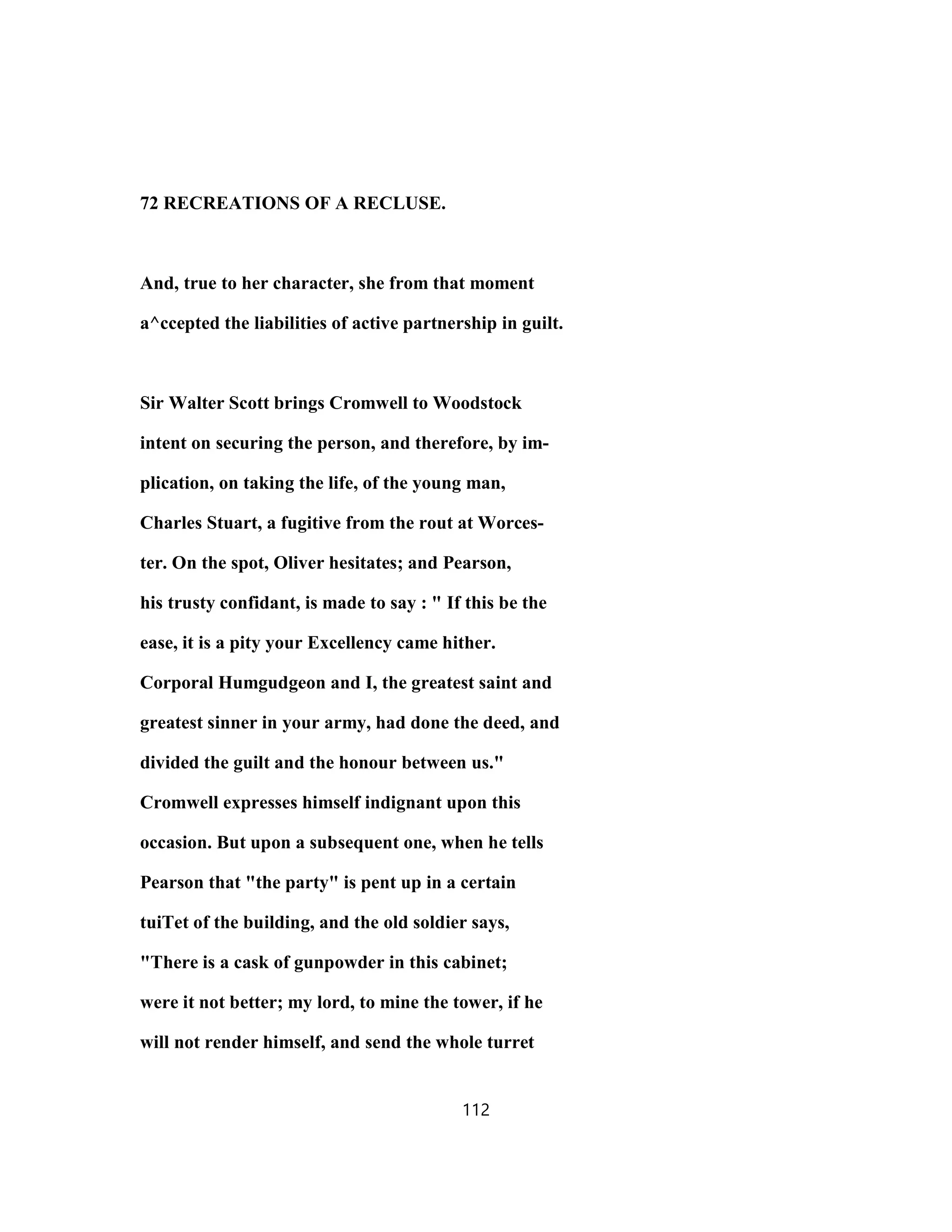

![(John Appleyard) spoke the truth, that although
Lord Robert was innocent of a direct participation
in the crime, the unhappy lady was sacrificed to his
ambition. "She was murdered by persons who
hoped to profit by his elevation to the throne ; and
Dudley himself— aware that if the murder could be
proved, public feeling would forbid his marriage
with the Queen [Elizabeth] — ^used private means, not-
withstanding his affectation of sincerity, to prevent
the search from being pressed inconveniently far."
When Mary Stuart set sail for Scotland {Adieu,
belle France), the English fleet was on her track,
the same historian tells us, sent out nominally to
suppress piracy, yet with dubious orders, like those
with which Admiral Winter had before sailed for
the Forth.* There was no command to arrest her,
yet there was the thought that " she might be met
withal ;" and if the admiral had sent her ship with
its freight to the bottom of the North Sea, " being
done unknown," Elizabeth, and perhaps Catherine
de Medici as well, " would have found it afterwards
well done."
114](https://image.slidesharecdn.com/thebestoffrancisjacox-171030162308/75/The-best-of-francis-jacox-114-2048.jpg)

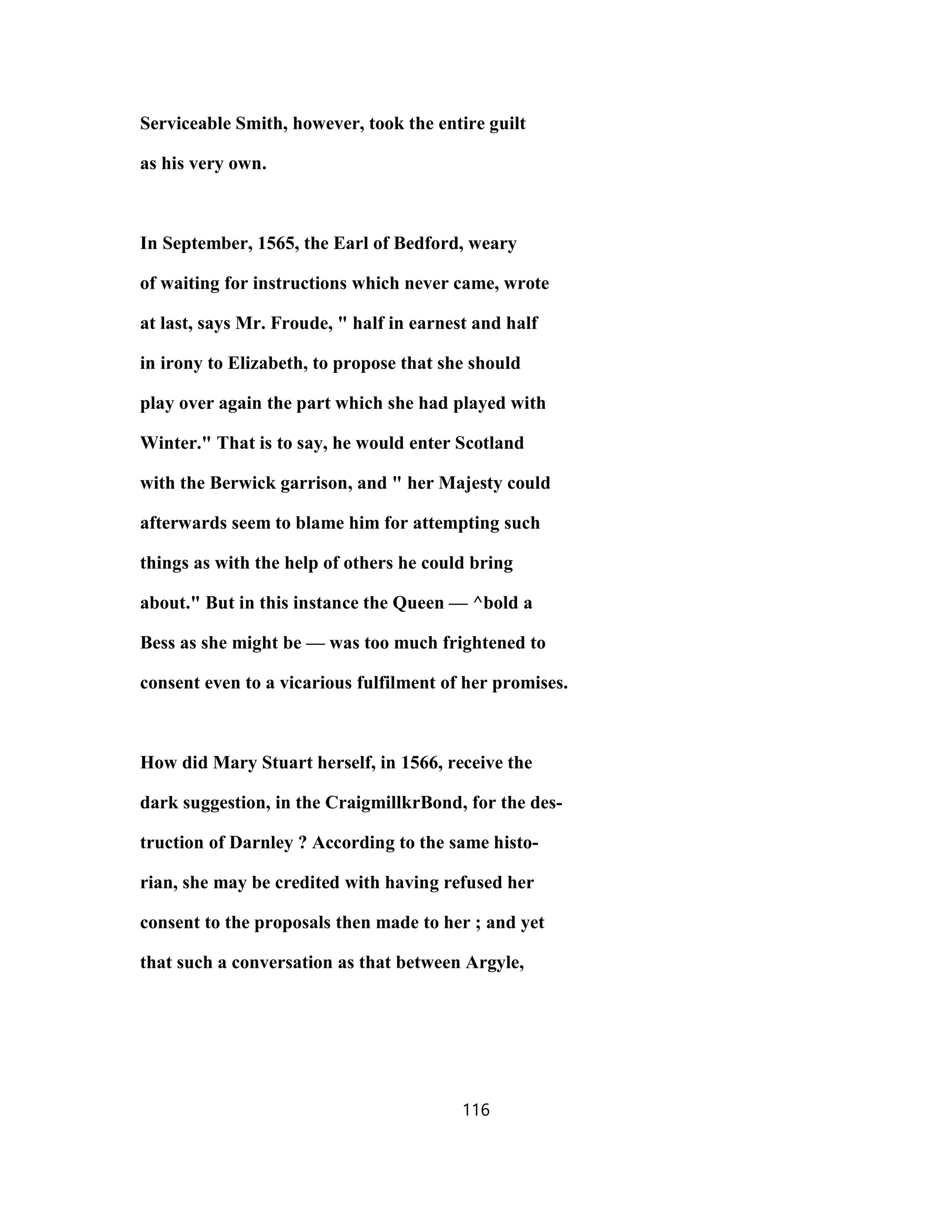

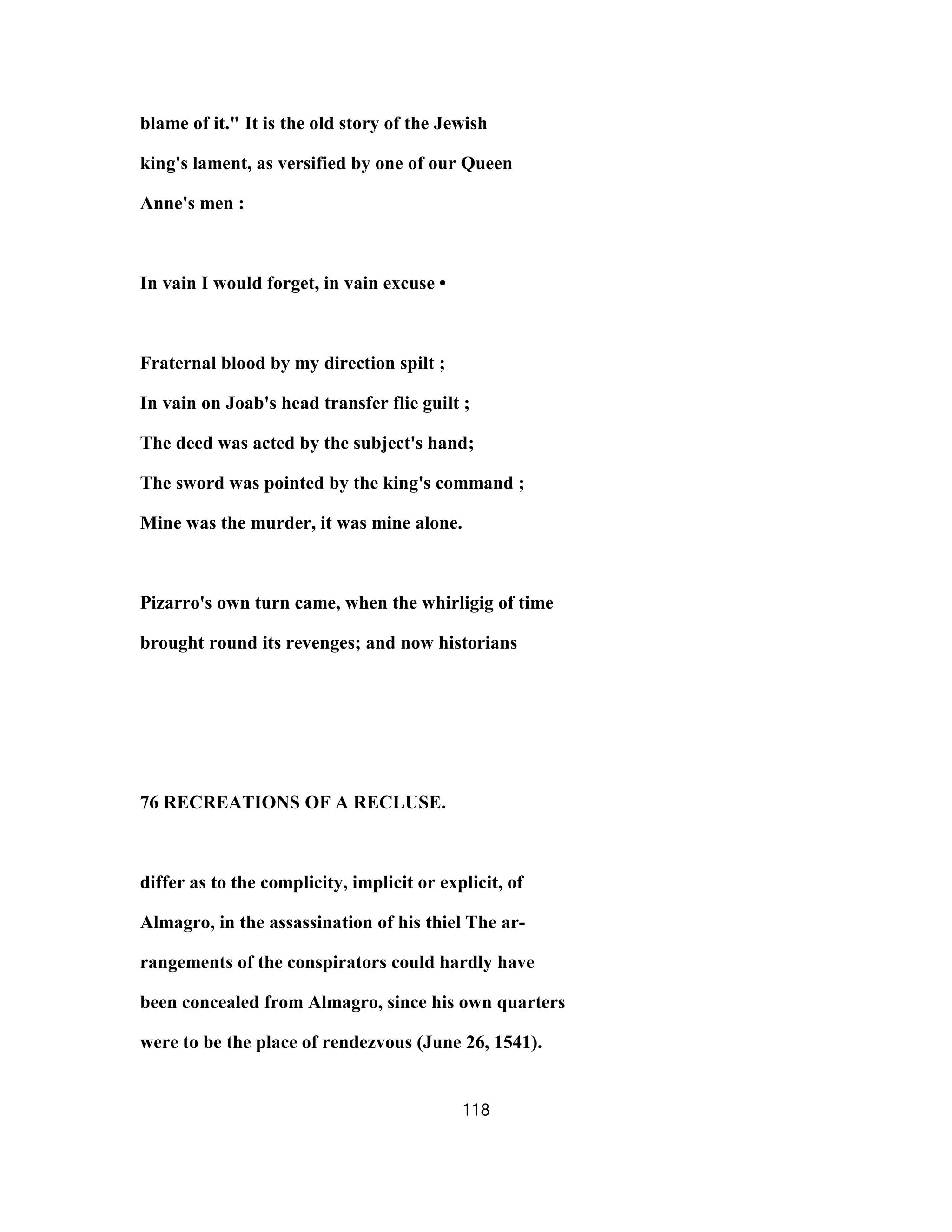
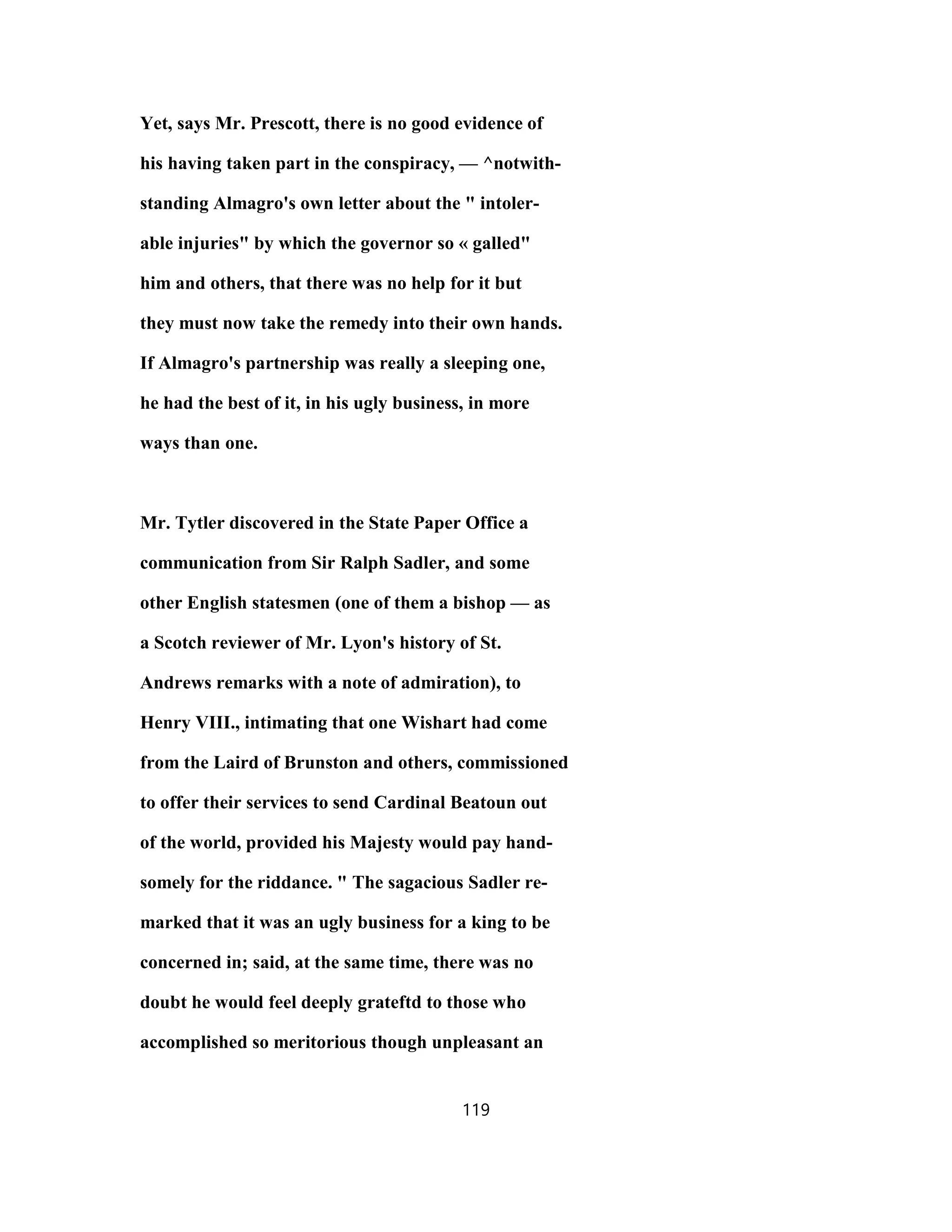
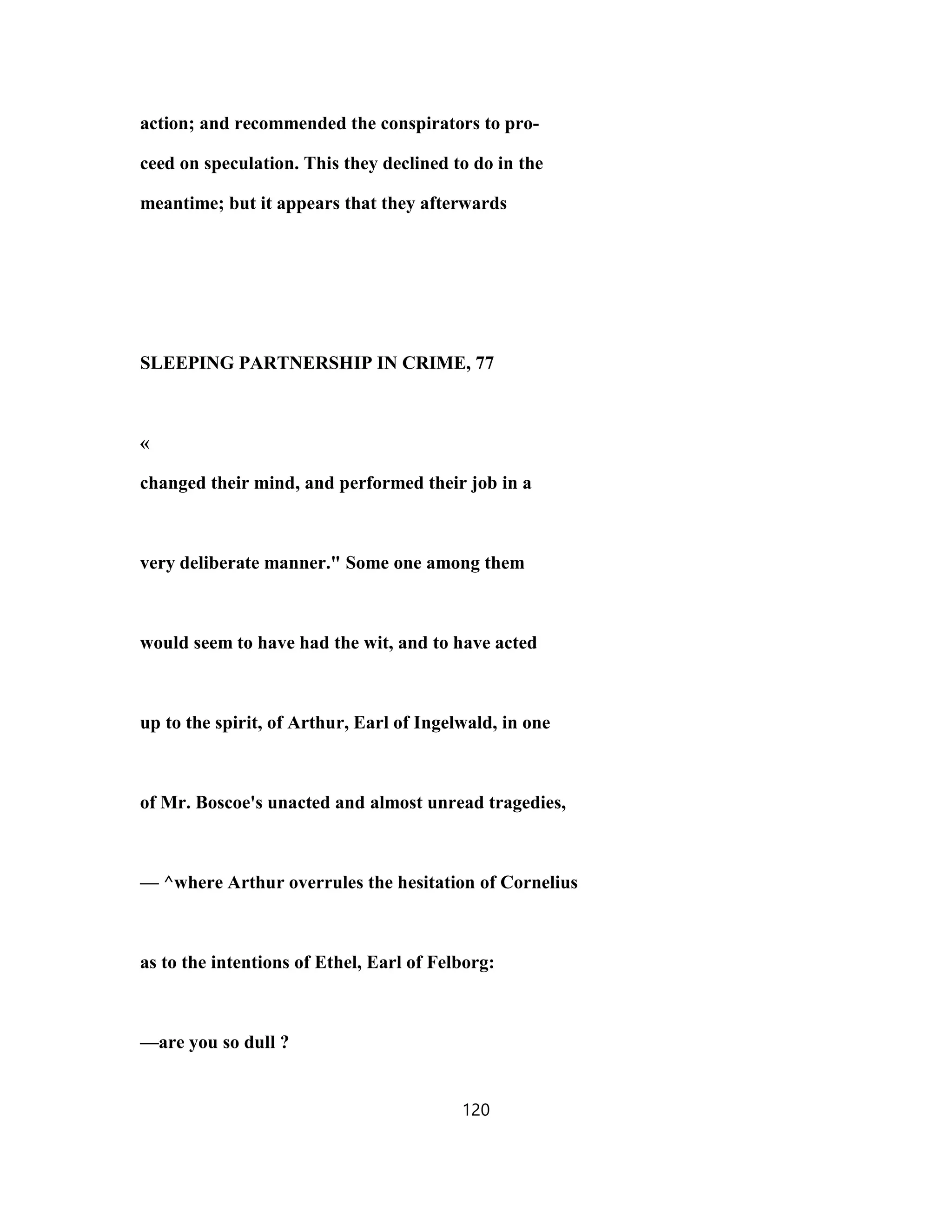
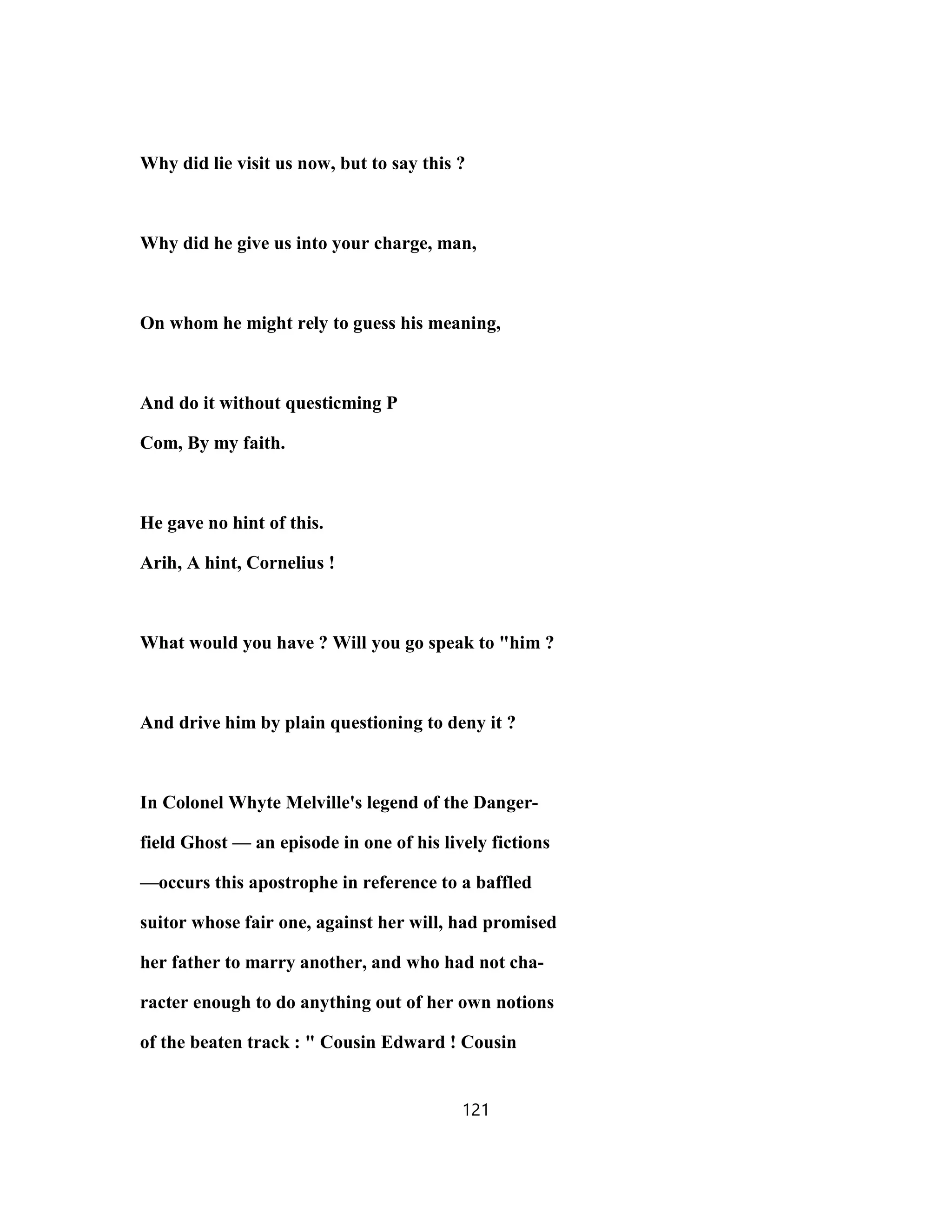


![SLEEPING PARTNERSHIP IN CRIME. 79
policy it desired to have pursued ? "I asked Mr.
Lincoln explicitly whether he wanted me to capture
Mr. Davis or let him escape. * I'll tell you, Gene-
ral,' said Mr. Lincoln. * Out in Sangamon county
there was an old temperance lecturer who was very
^rict in the doctrine and practice of total abstinence.
One day, after a long ride in the hot sun, he stopped
at the house of a friend who proposed making him a
[»ic] lemonade. As the mUd beverage was being
mixed, the friend insinuatingly asked if he wouldn't
like just the least drop of something stronger, to
brace up his nerves after the exhausting heat and
exercise. 'No,' replied the lecturer, 'I couldn't
think of it; I'm opposed to it on principle. But,'
he added, with a longing look at the black bottle
that stood conveniently to hand, 'if you could
manage to put in a drop unbeknownst to me, I guess
it wouldn't hurt me much! Now, General,' Mr.
Lincoln concluded, ' I'm bound to oppose the escape
of Jeff. Davis ; but if you could manage to let him
slip unbeknownst-like, I guess it wouldn't hurt me
much !' "*
124](https://image.slidesharecdn.com/thebestoffrancisjacox-171030162308/75/The-best-of-francis-jacox-124-2048.jpg)
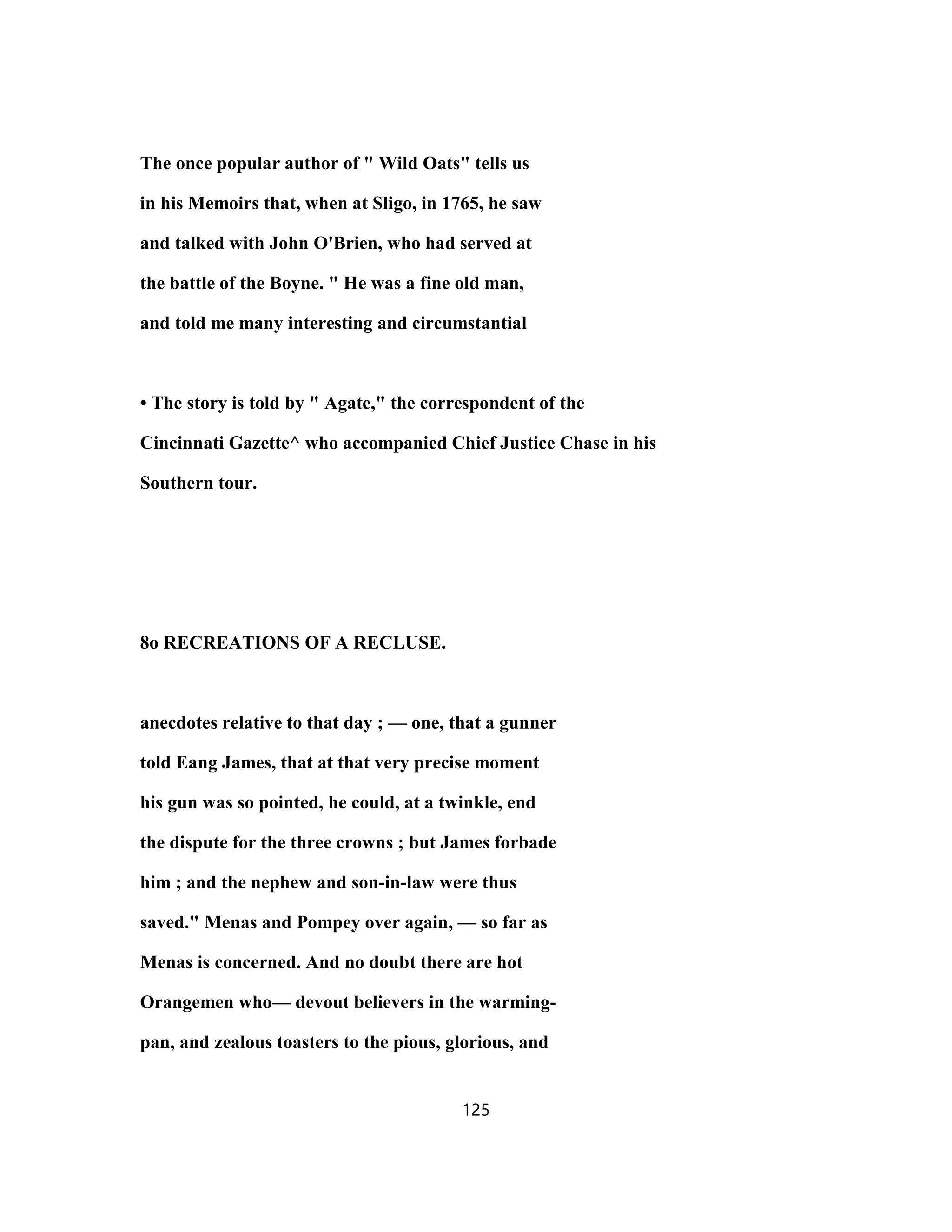




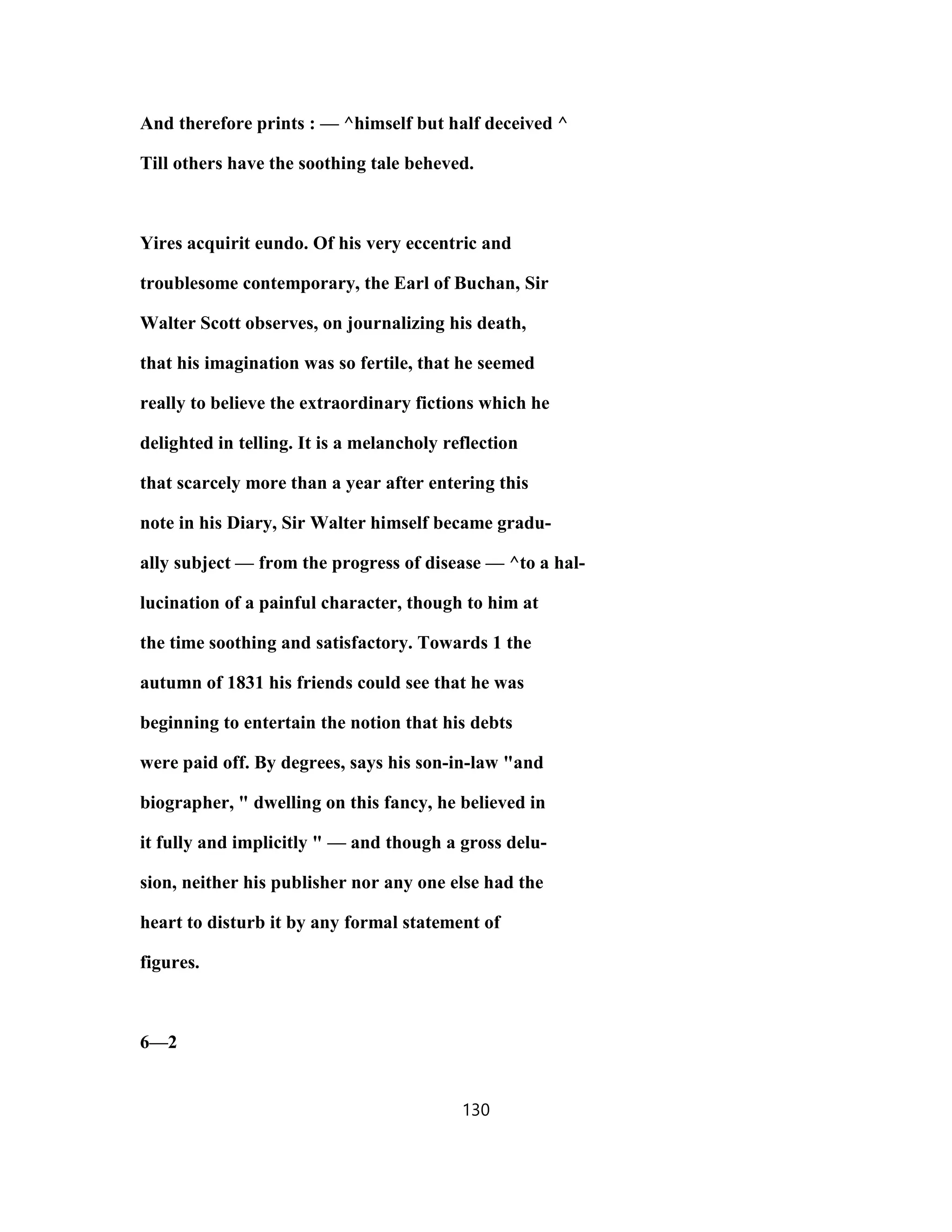

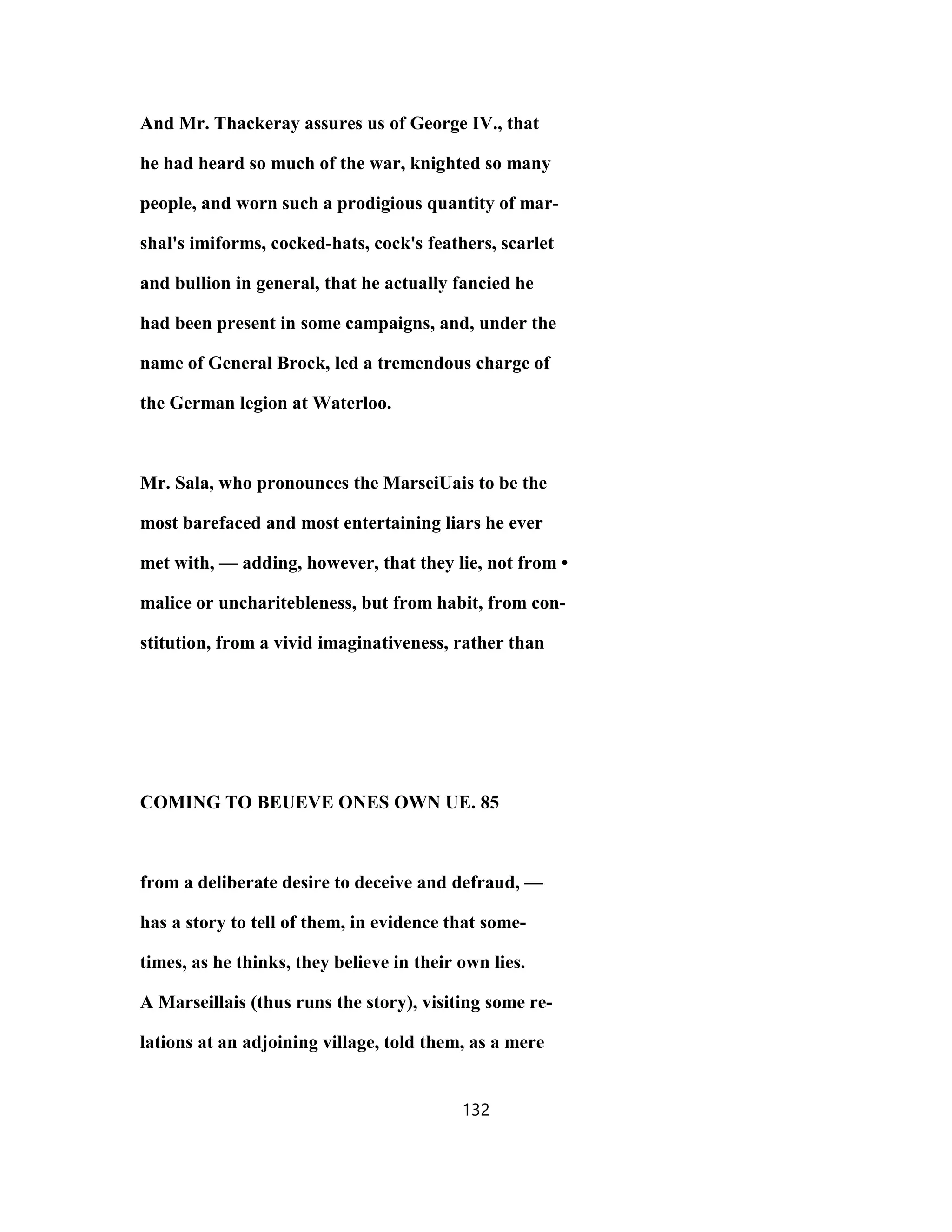






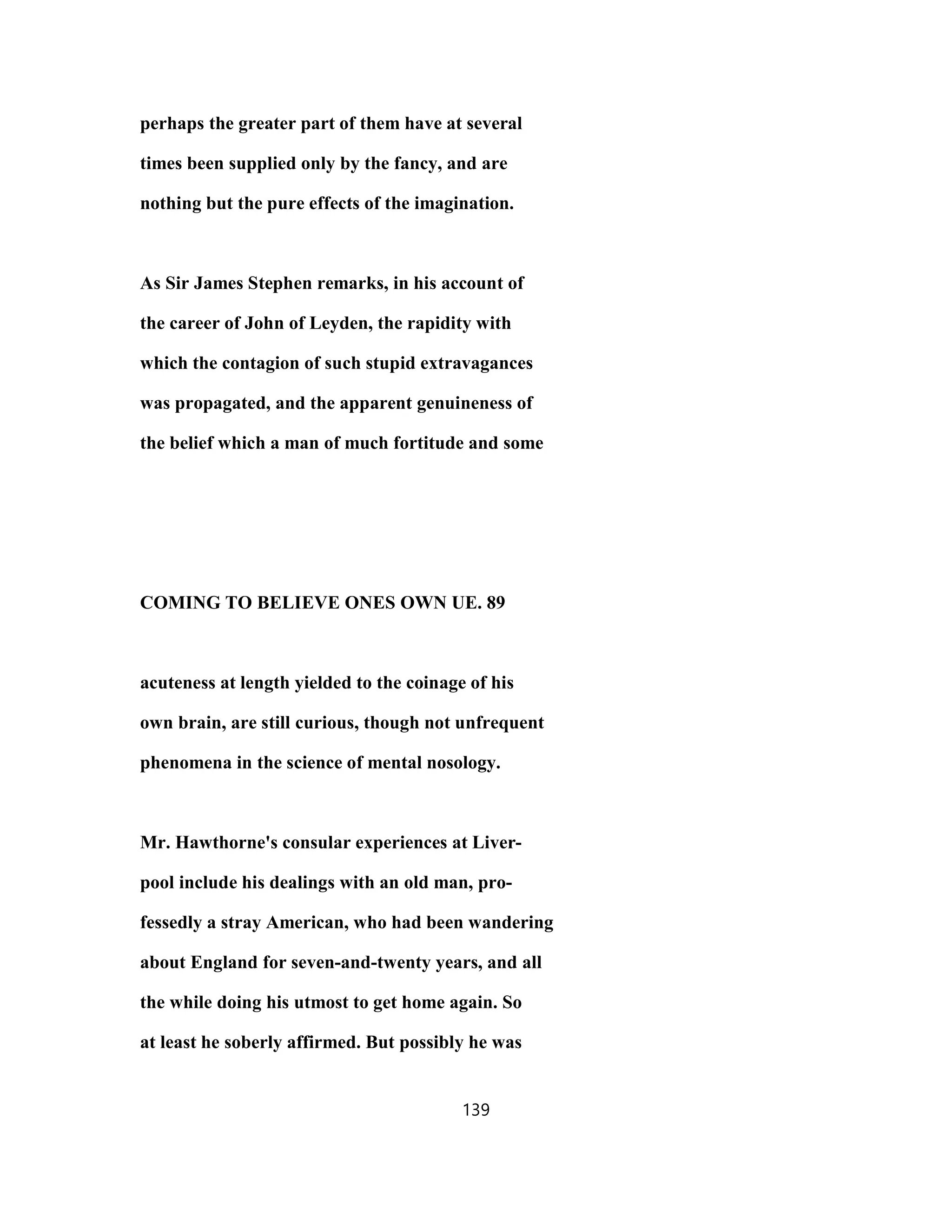


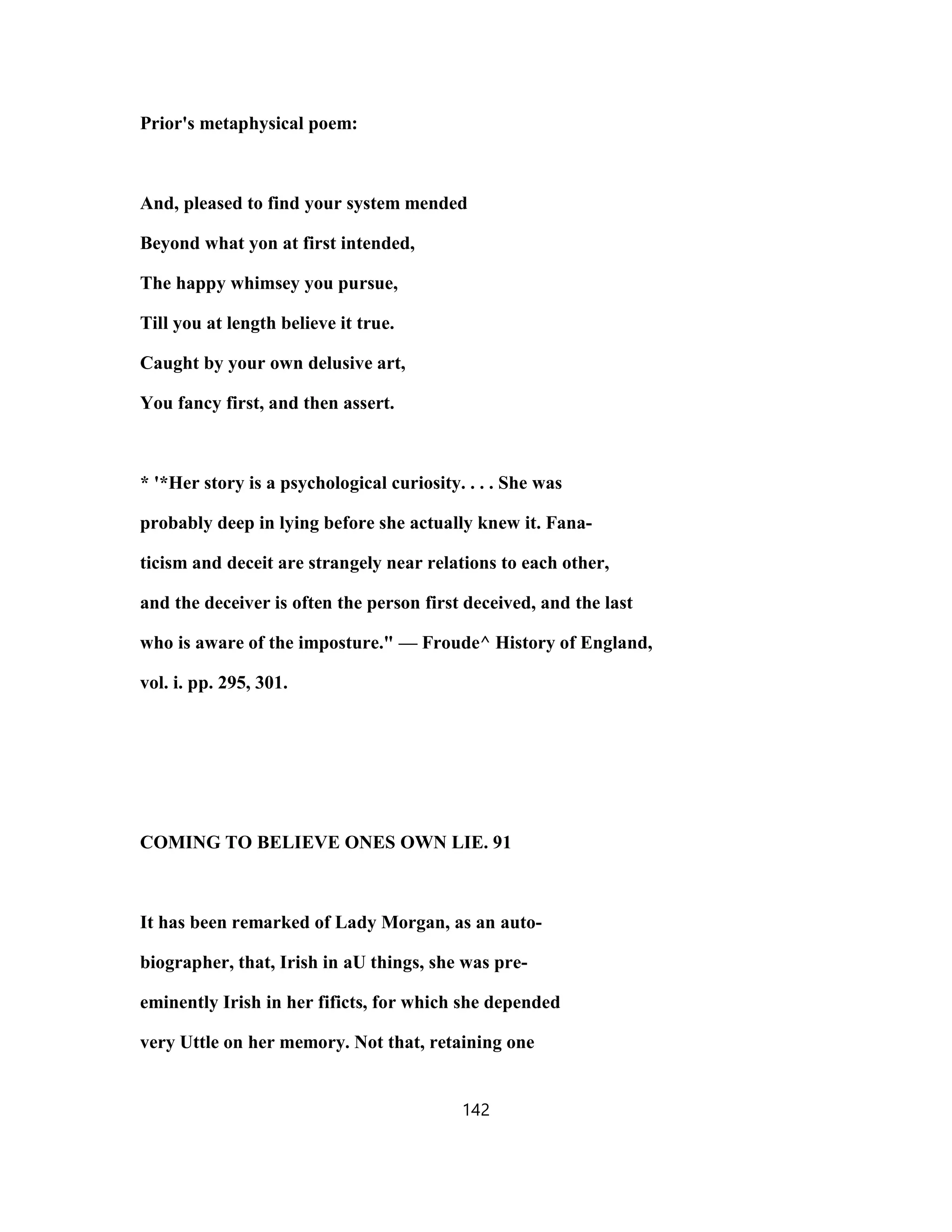
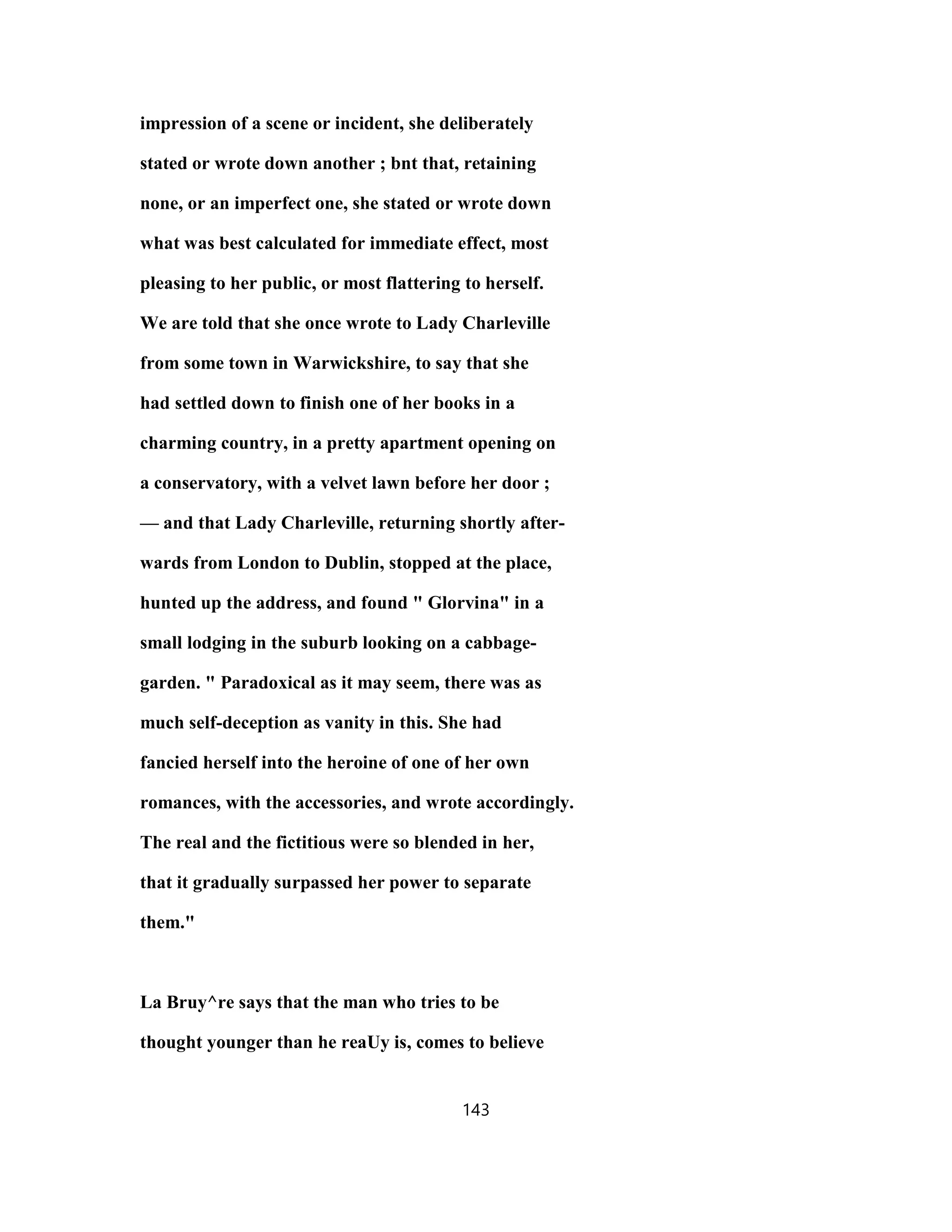
![himself of the age he gives out. And again, that
the roiurieT who is in the habit of referring his
origin to some ancient baron, from whom, with per-
sistent mendacity, he claims direct descent, has the
92 RECREATIONS OF A RECLUSE.
happiness of working himself up to a beKef in the
truth of this pedigree.
Mr. Thackeray's Andrea Fitch, in that unfinished
story which, after an interval of long years, merged
its sequel in the Adventures of Philip Firmin, —
" never spoke the truth; and was so entirely affected
and absurd, as to be quite honest at last ;" for it is the
author's avowed belief that this fantastic youth — ^to
whom the world was like the [then] Coburg [now
Victoria] Theatre, and he in a magnificent costume
acting a principal part— did not know truth from
falsehood any longer, and was, when he was alone,
when he was in company, nay, when he was uncon-
scious and sound asleep snoring in bed, one complete
144](https://image.slidesharecdn.com/thebestoffrancisjacox-171030162308/75/The-best-of-francis-jacox-144-2048.jpg)
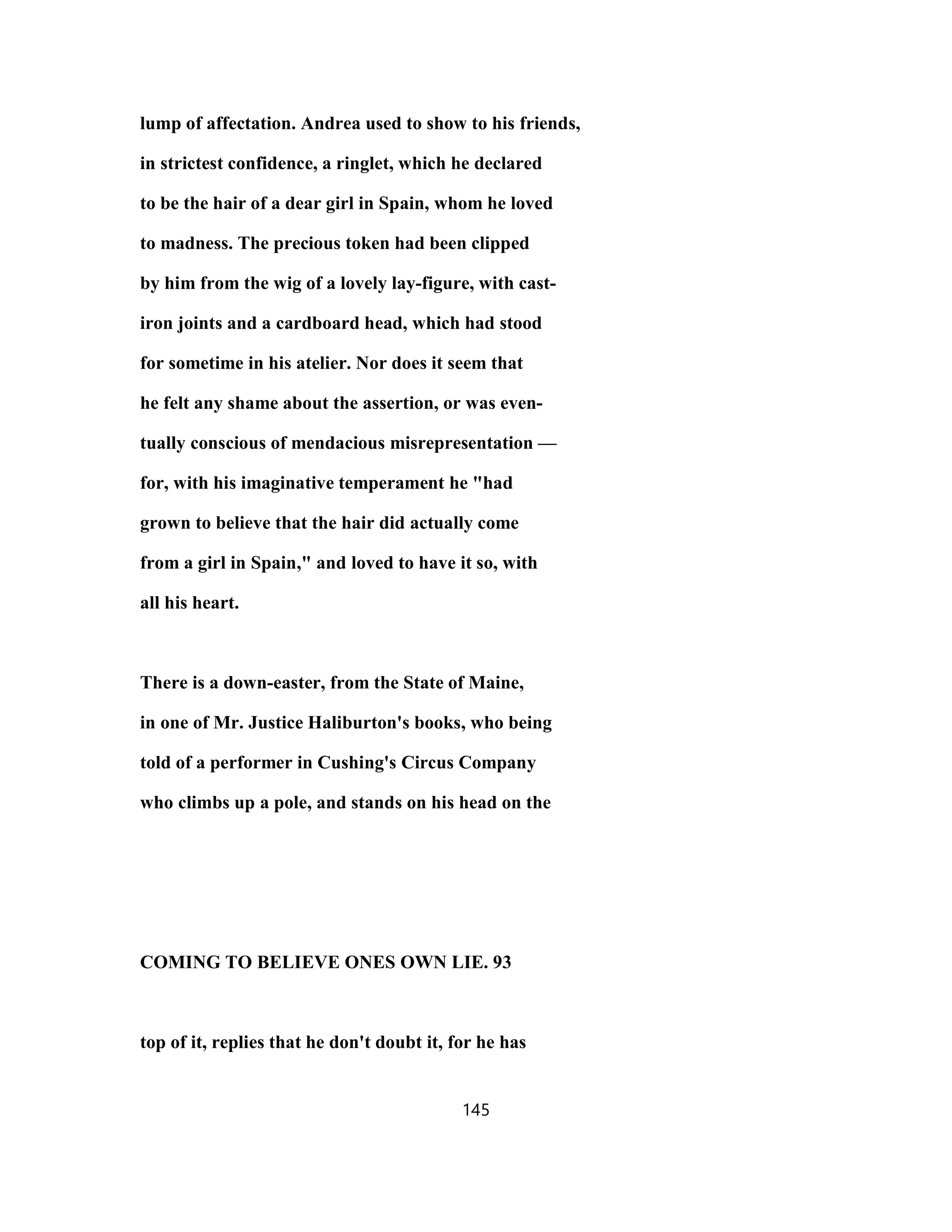
![done " more nor that" himself. What more ? he is
asked. " Why [says he], stranger, I don't suppose
you'll believe it; but I'll tell you what I did. When
I was standin' on my head on the top of that are
pole, I jist raised myself up a little with my arms,
opened my jaws, put my teeth to it, and pulled it
right up out of the ground, and then jumped down,
with one end of it in my mouth." "Well," says the
other, "I don't believe it, and that's flat." "I
shouldn't wonder [is the reply], if you didn't. But
I have told it so often, I believe it myself — I
actually do."
One of Washington Trving's earliest essays intro-
duces us to an old gentleman addicted to unconscion-
ably long stories, — among which there is one vener-
able joke, originally borrowed from Joe Miller, but
which, " by dint of long occupancy and frequent
repetition," he "now firmly believes to have hap-
pened to himself somewhere in New England."
Memorable after his sort is Mr. Perch the mes-
senger, of the house of^ Dombey and Son, who was
made a more important man than ever by the bank-
146](https://image.slidesharecdn.com/thebestoffrancisjacox-171030162308/75/The-best-of-francis-jacox-146-2048.jpg)




![have had Mr. Oriel easily, oh, too easily ; but she
had despised such work, she said. And Miss Gush-
ing '* stated it as a fact so often that it is probable
she was induced to believe it herself."
A later work of this very popular author sup-
plies incidentally another sort of illustration. It ia
where the great barrister, Mr. Fumival's, zeal in
behalf of his client. Lady Mason, more than
half suspected by him of forgery, is described and
analysed. " Twenty years ago, at the time of the
trial, he had at one time thought, — ^it hardly matters
to tell what, but those thoughts had not been
favourable to her cause. Then his mind had altered,
and he had learned — as lawyers do learn — ^to believe
in his own case." A separate essay, or volume,,
might be written on these phases of professional
psychology.* A] previous illustration of it, also by
Mr. Trollope, has already been cited.
Sir Archibald Alison moralises Tnore sua upon
* Before the second trial comes on, Mr. Fomiyal has become
entirely persuaded of his fair client's guilt. But he waxes-
151](https://image.slidesharecdn.com/thebestoffrancisjacox-171030162308/75/The-best-of-francis-jacox-151-2048.jpg)

![strength, without the slightest regard to the returns
of the commanders, which showed they were not of
half the amount. Ex hypothe&i was with him de
facto. His " unconquerable adherence to error," in
the face of the clearest evidence, as seen in his
writings whenever it suited his purpose, Sir A.
Alison can only account for by suggesting, that
Napoleon's "wishes were, literally* speaking, the
father to his thoughts, and that what he desired he
really believed to be true." In other words, that
having invented a bouncing lie, he stuck to it
and before he had done he had almost brought himself again
to believe Lady Mason to be that victim of persecution as
which he did not hesitate to represent her to the jury." — Orley
Farm, vol. ii. ch. xxxii.
* [But why, and how, literally speaking ?]
through thick and thin, and even came to believe in
it himself.
In one of his strenuous onsets against the home
policy of our government dming the outbreak of
the French Kevolution, Coleridge, himself at that
153](https://image.slidesharecdn.com/thebestoffrancisjacox-171030162308/75/The-best-of-francis-jacox-153-2048.jpg)
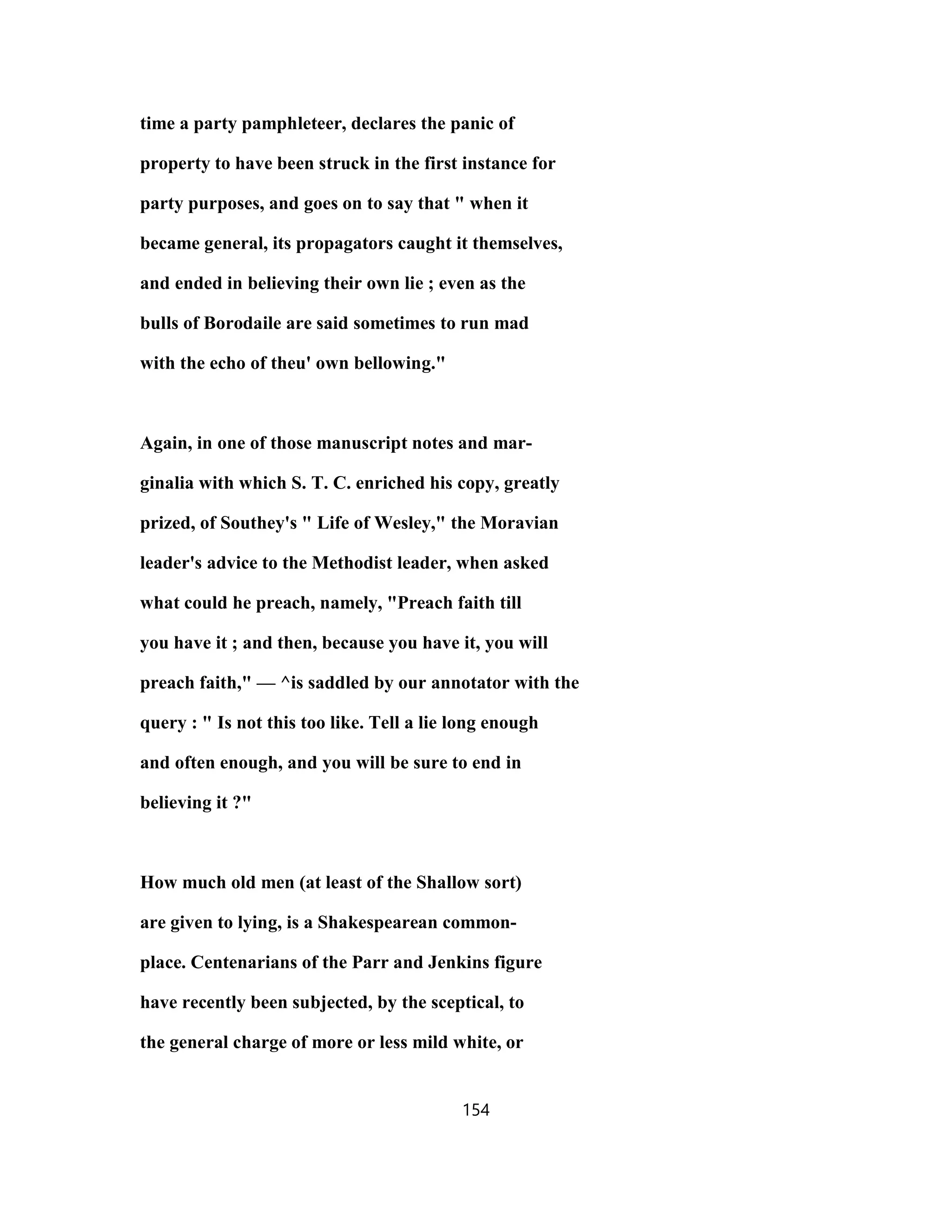


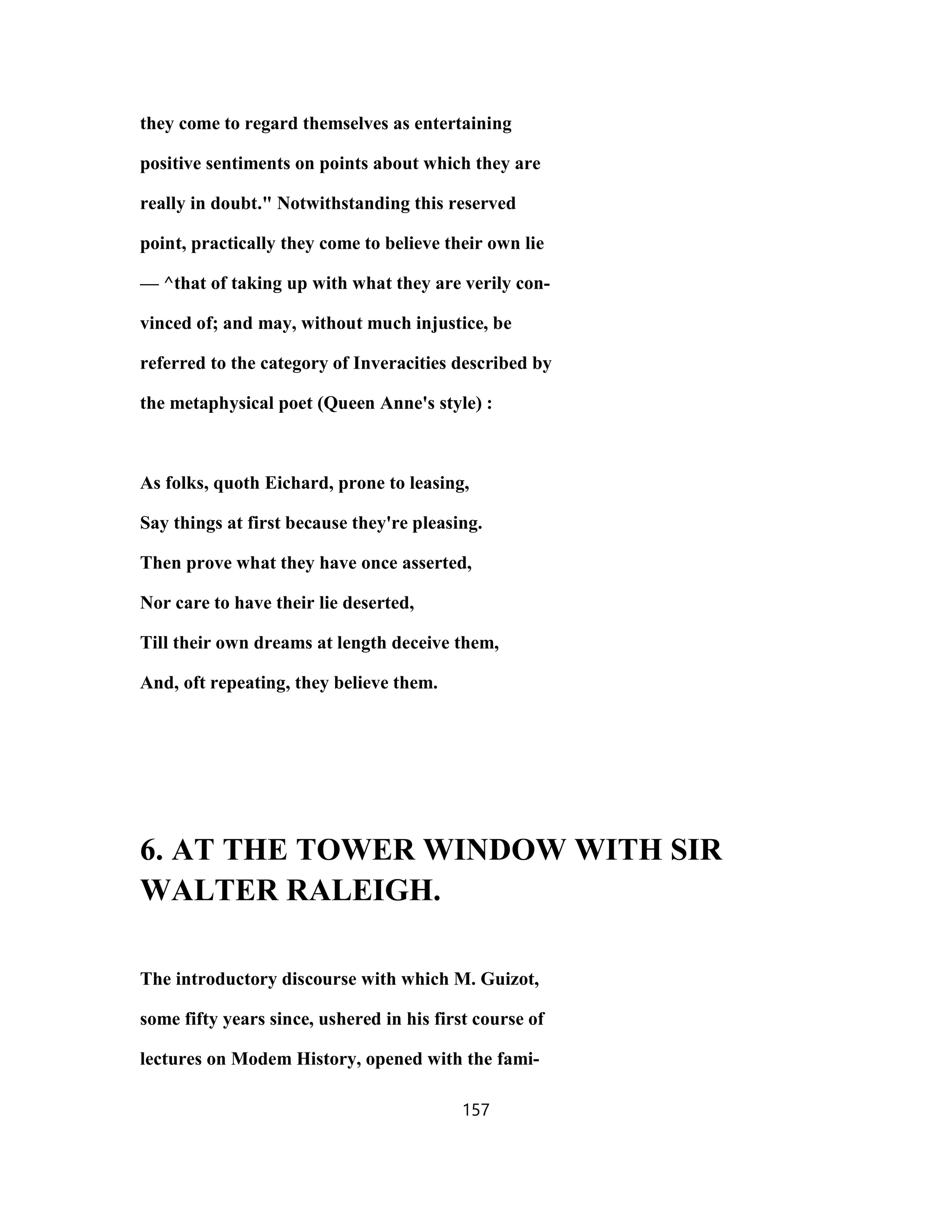
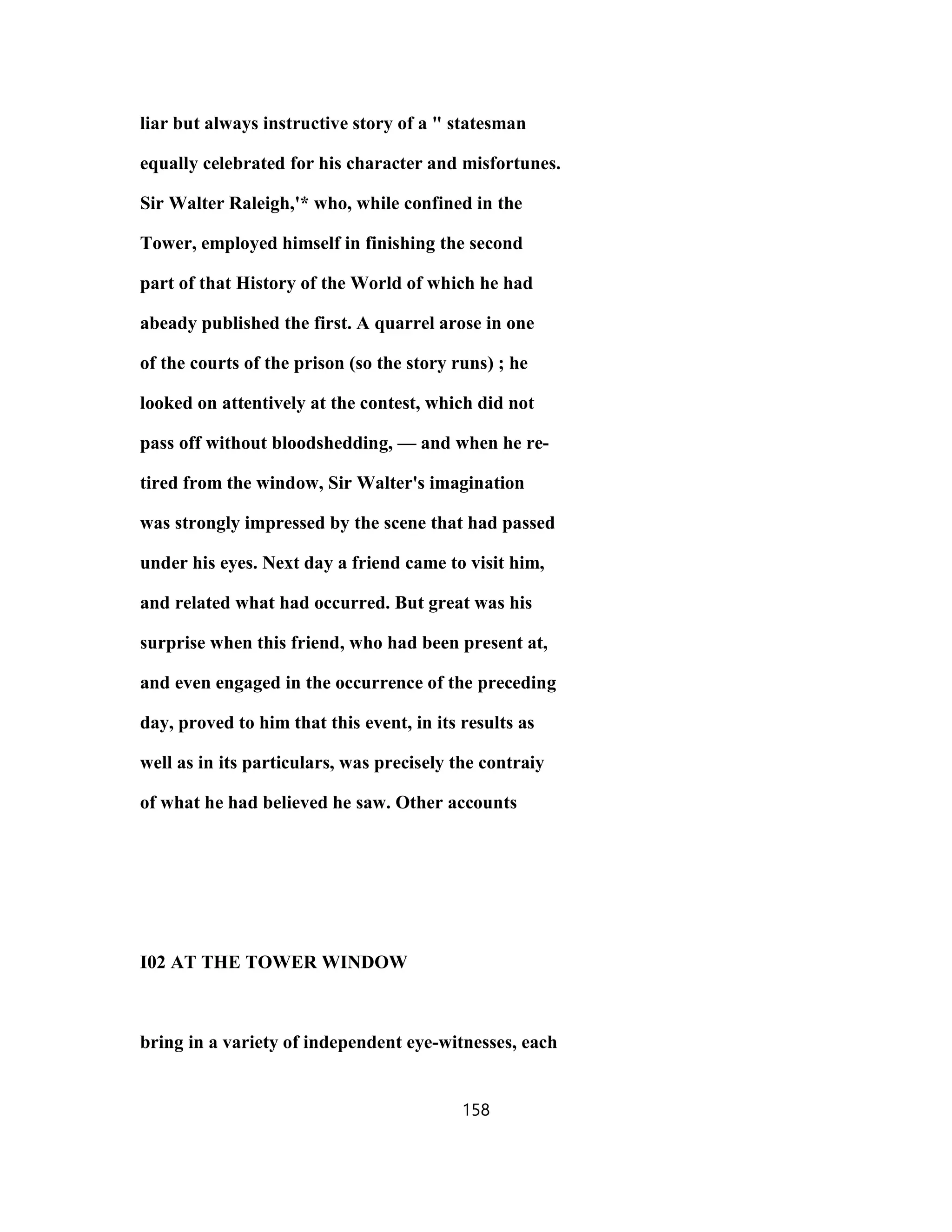
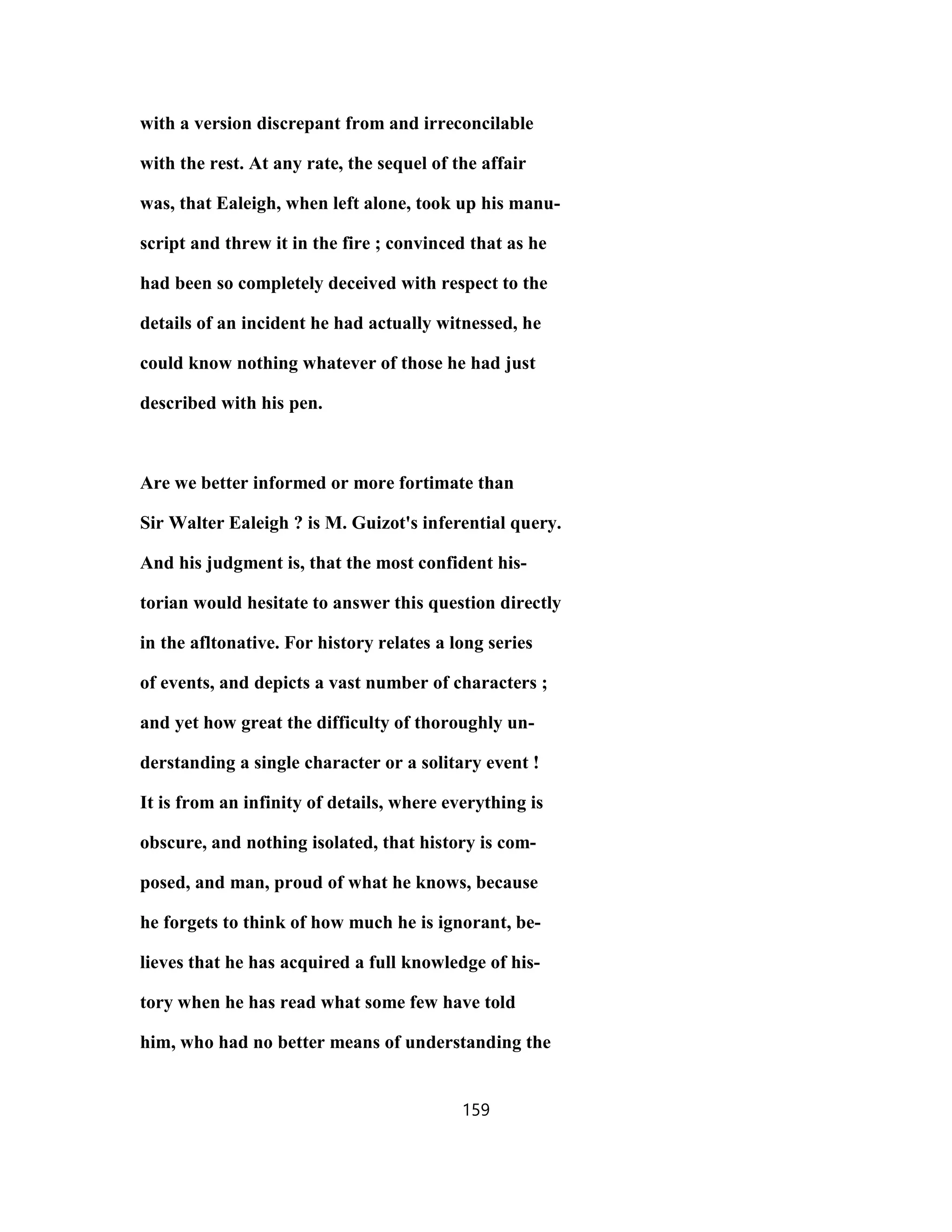
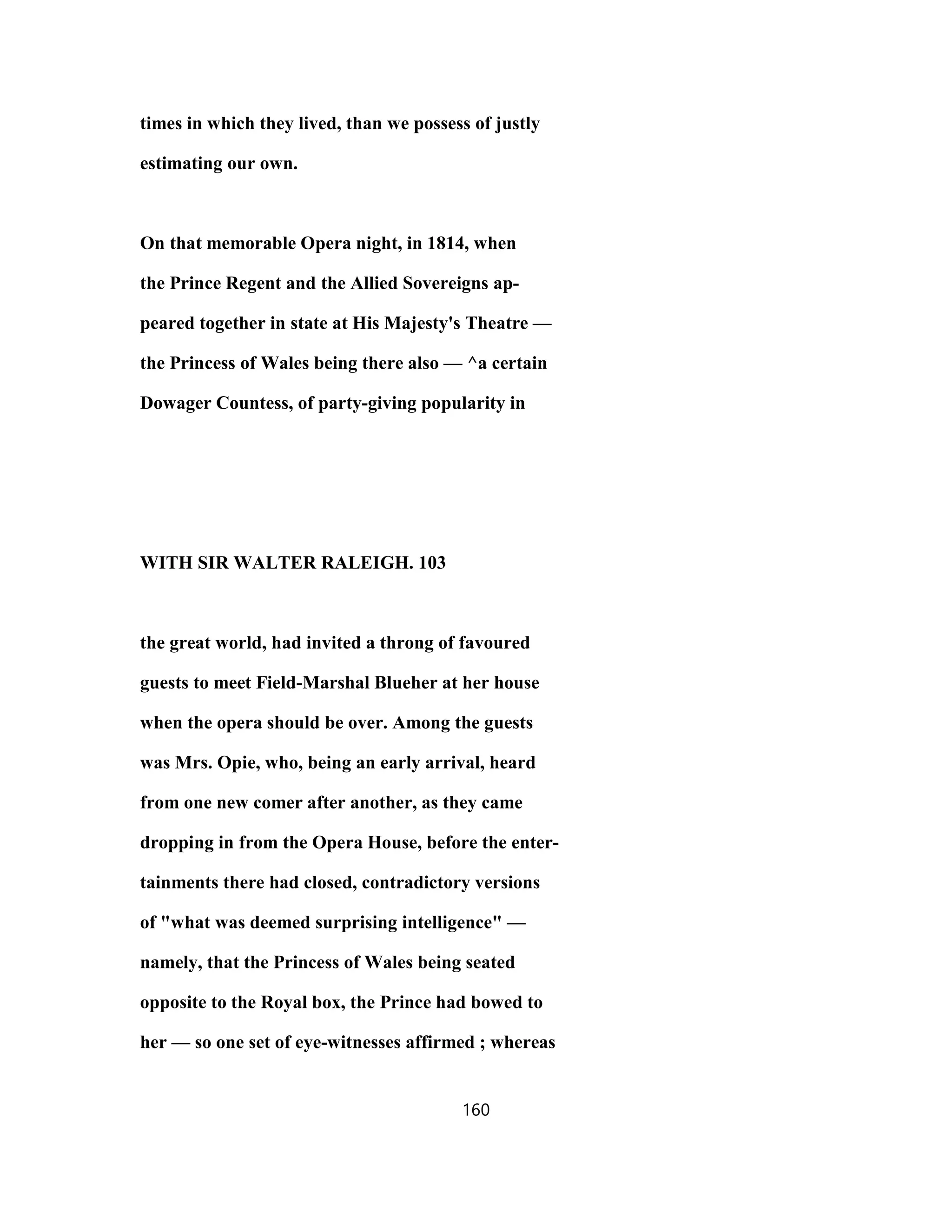




![io6 AT THE TOWER WINDOW
avons sont des compilatioiis de mensonges mSl& de
quelques v^rit^s." Archdeacon Hare, without stand-
ing up for the strict justice of this censure, yet
quotes it in arguing against the shallow common-
place that •*' history is all] true, and poetry is all
feJse," — quotes it as from an historian of his oppo-
nent's own school, an assertor and exposer of the
profligacy of mankind. " This much too is most
certain, that circumstantial accuracy with regard to
facts is a very ticklish matter; as will be acknow-
ledged by every one who has tried to investigate an
occurrence even of yesterday, and in his own neigh-
bourhood, when interests and passions have been
pulling opposite ways." In which sense too might
he say, as Baleigh says in a different sense, that " if
we follow Truth too near the heels, it may haply
strike out our eyes."
Applicable to this view of the question is Pres-
165](https://image.slidesharecdn.com/thebestoffrancisjacox-171030162308/75/The-best-of-francis-jacox-165-2048.jpg)


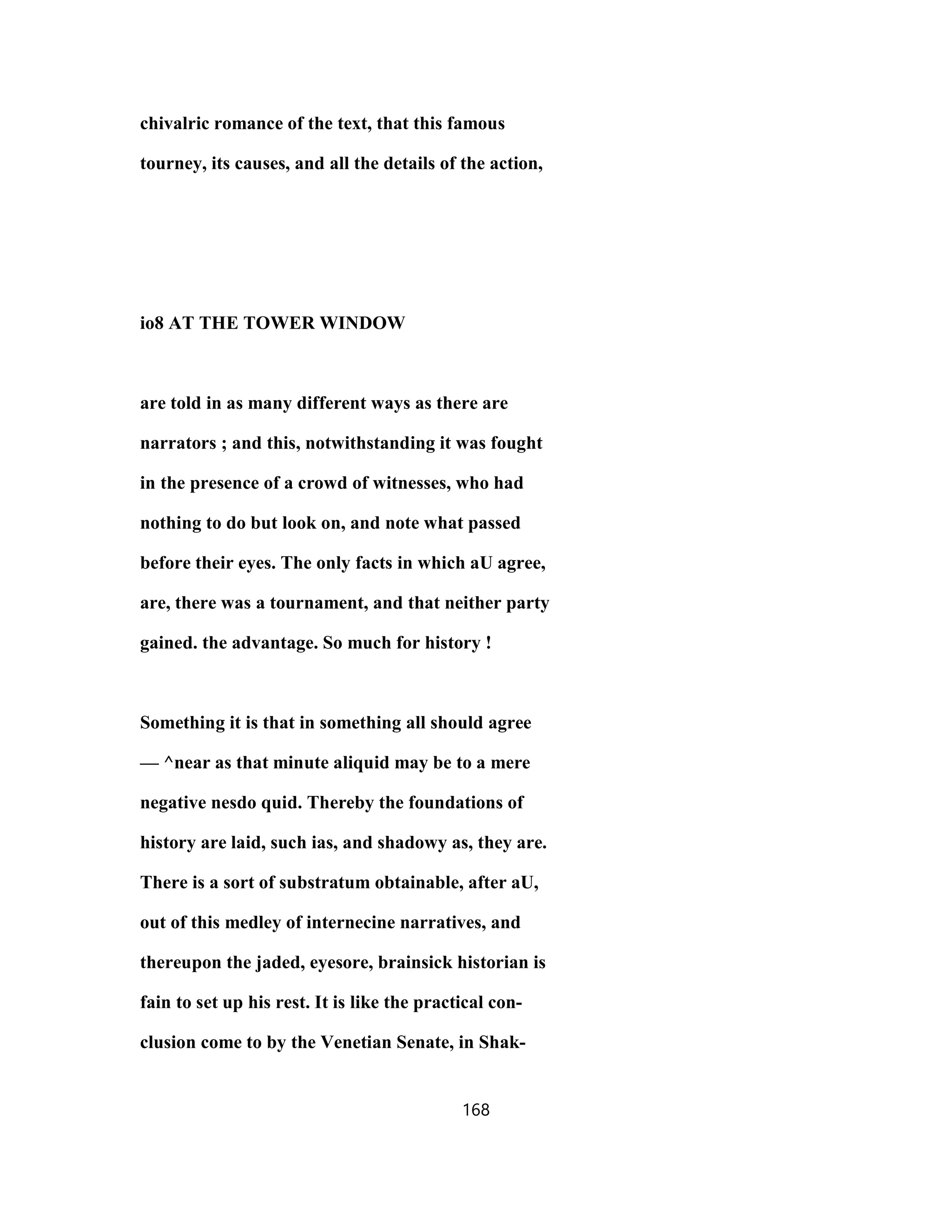




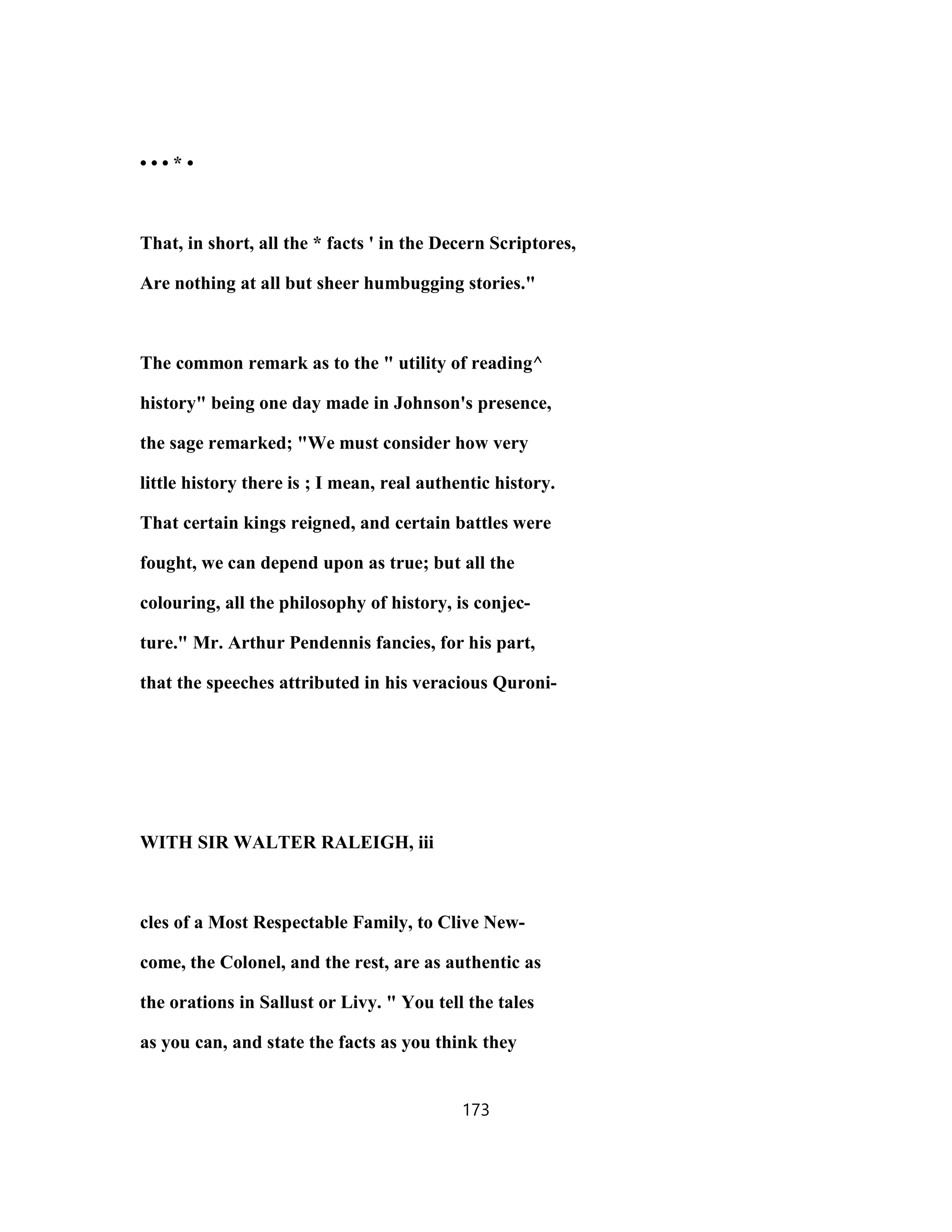
![must have been. In this manner, Mr. James, Titus
Livius, Professor Alison, Robinson Crusoe, and all his-
torians proceeded. Blunders there must be in the
best of these narratives, and more asserted than they
can possibly know or vouch for."
Don't read history to me, for that cavH be true.
Sir Robert Walpole is reported to have said, when
asked to choose the book he would like to listen to.
His son Horace appears to have inherited the pater-
nal Pyrrhonism in an almost aggravated form.
His letters abound with pungent proofs of this.
" We know past times very imperfectly,'* he writes,
in one place, " and how should we, when few know
even the present, and they who do, have good reason
for not being communicative ? I have lived till I
think I know nothing at all." Again, three or four
years later : " Whether like the history of darker
ages, falsehood will become history, and then distant
periods conjecture that we have transmitted very
blundering relations [I know not ;] but when
I know so little of what has passed before my own
174](https://image.slidesharecdn.com/thebestoffrancisjacox-171030162308/75/The-best-of-francis-jacox-174-2048.jpg)

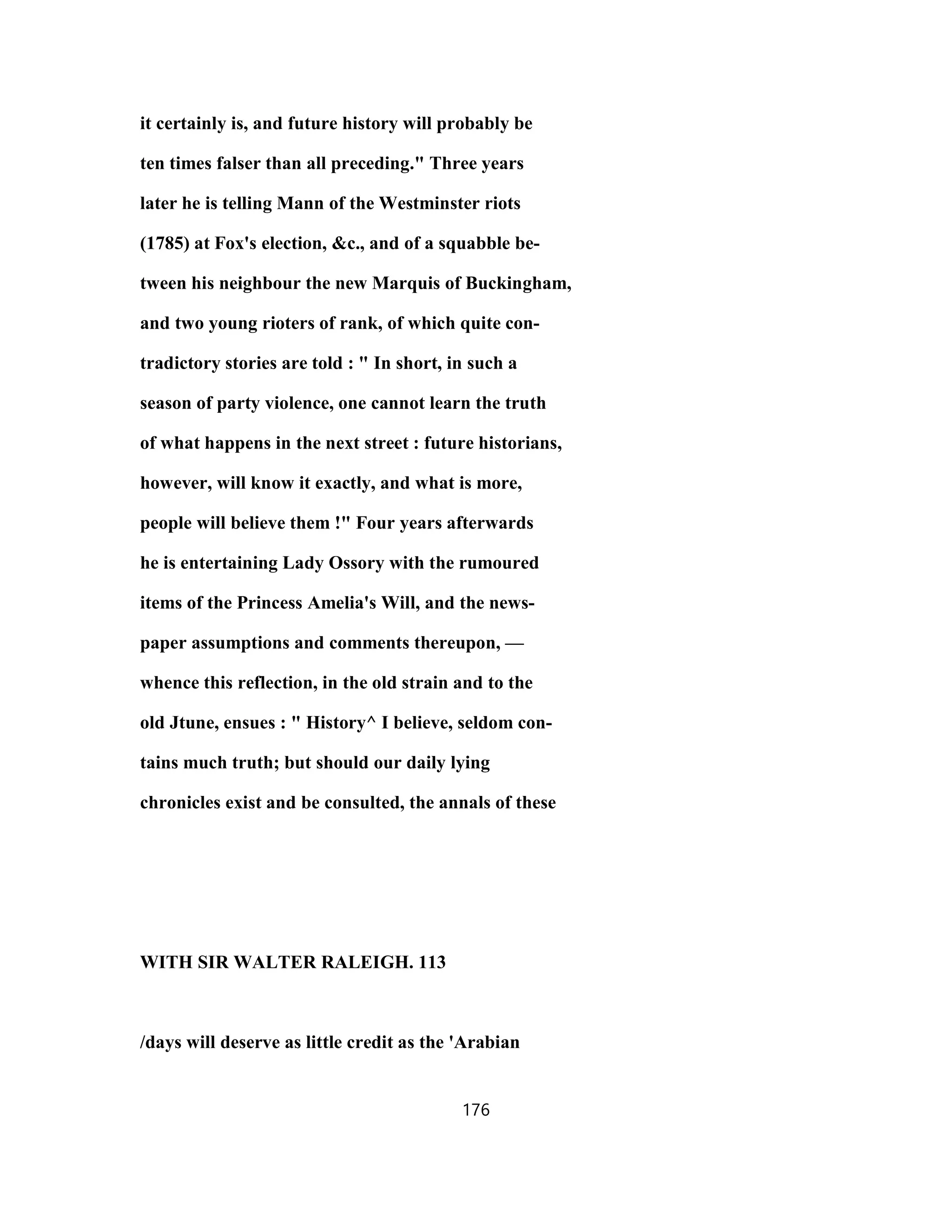
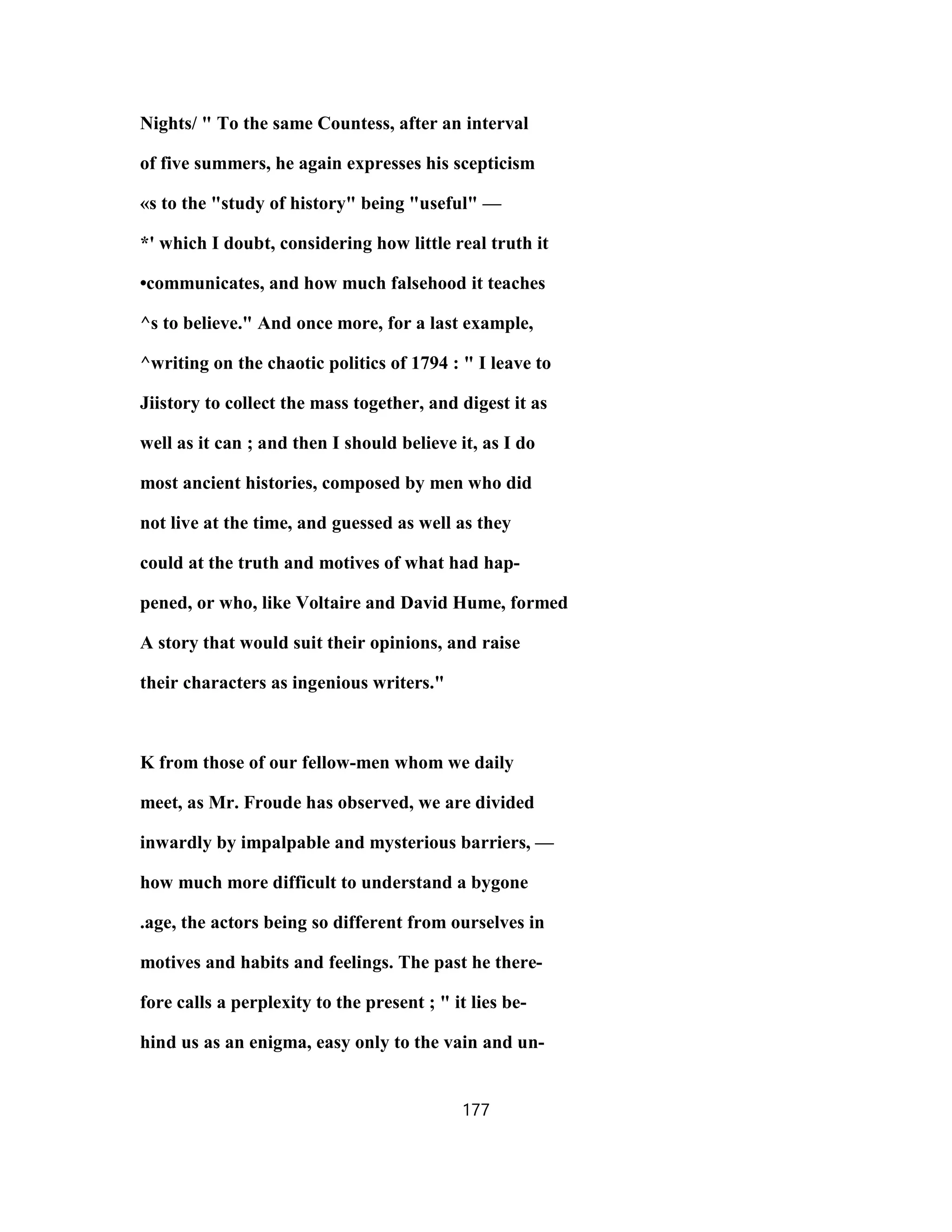

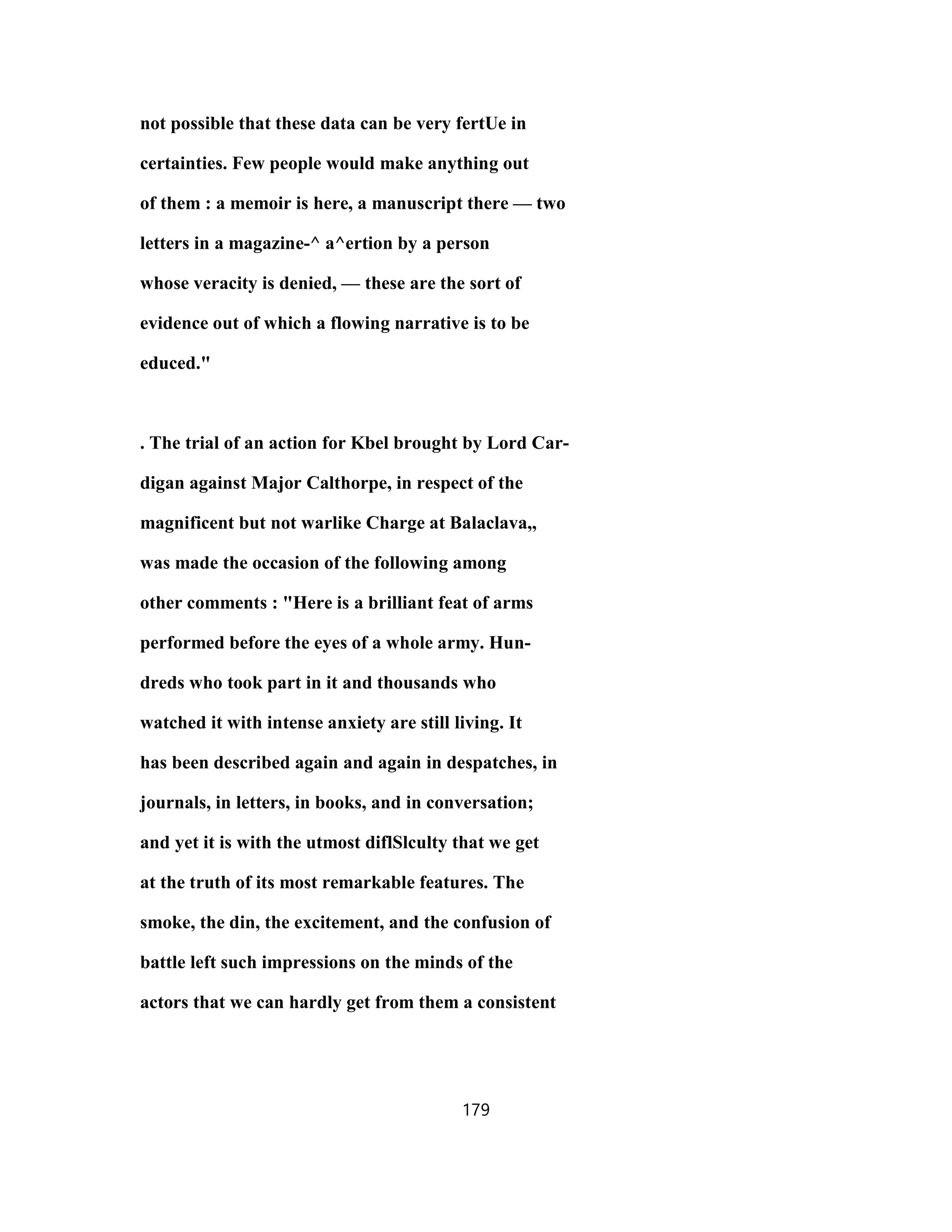
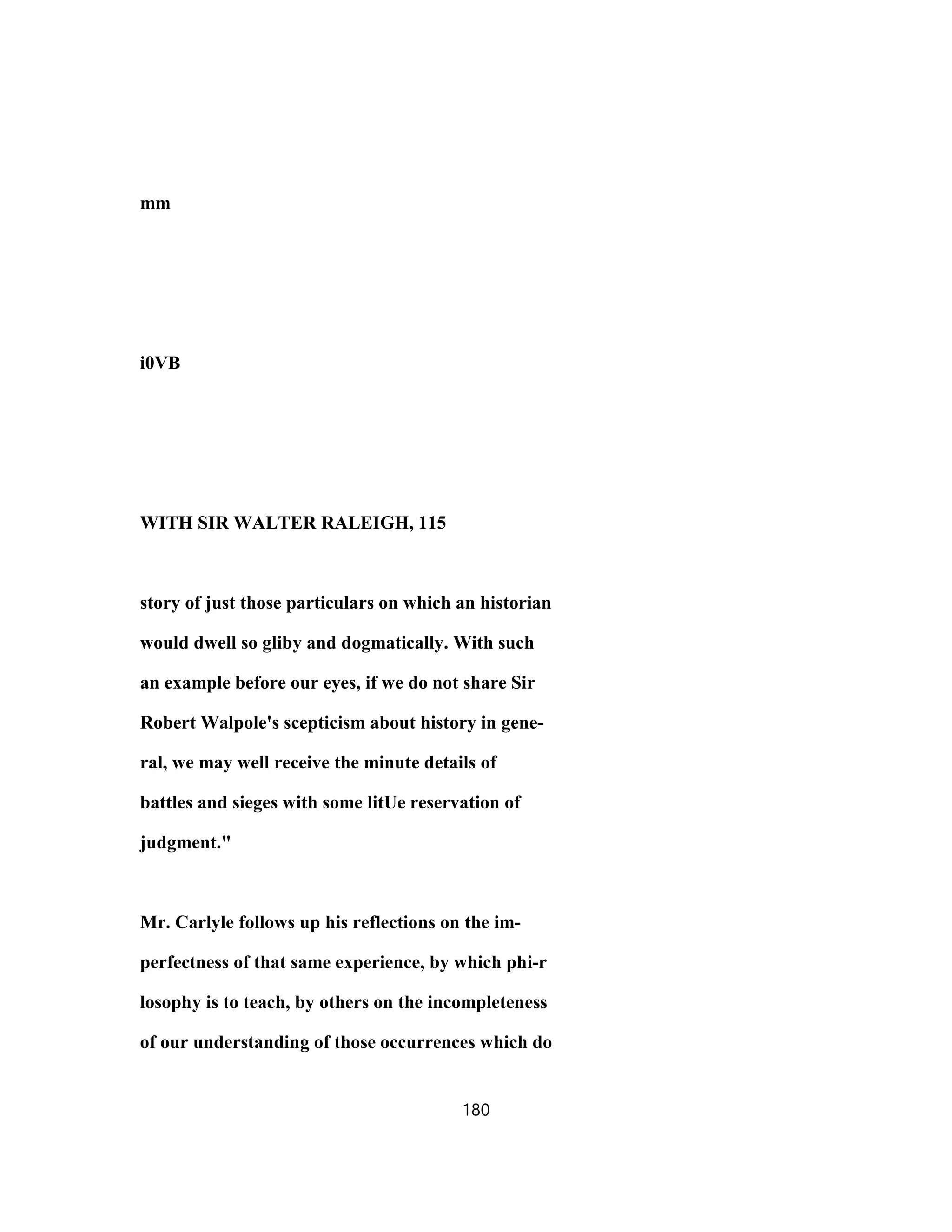
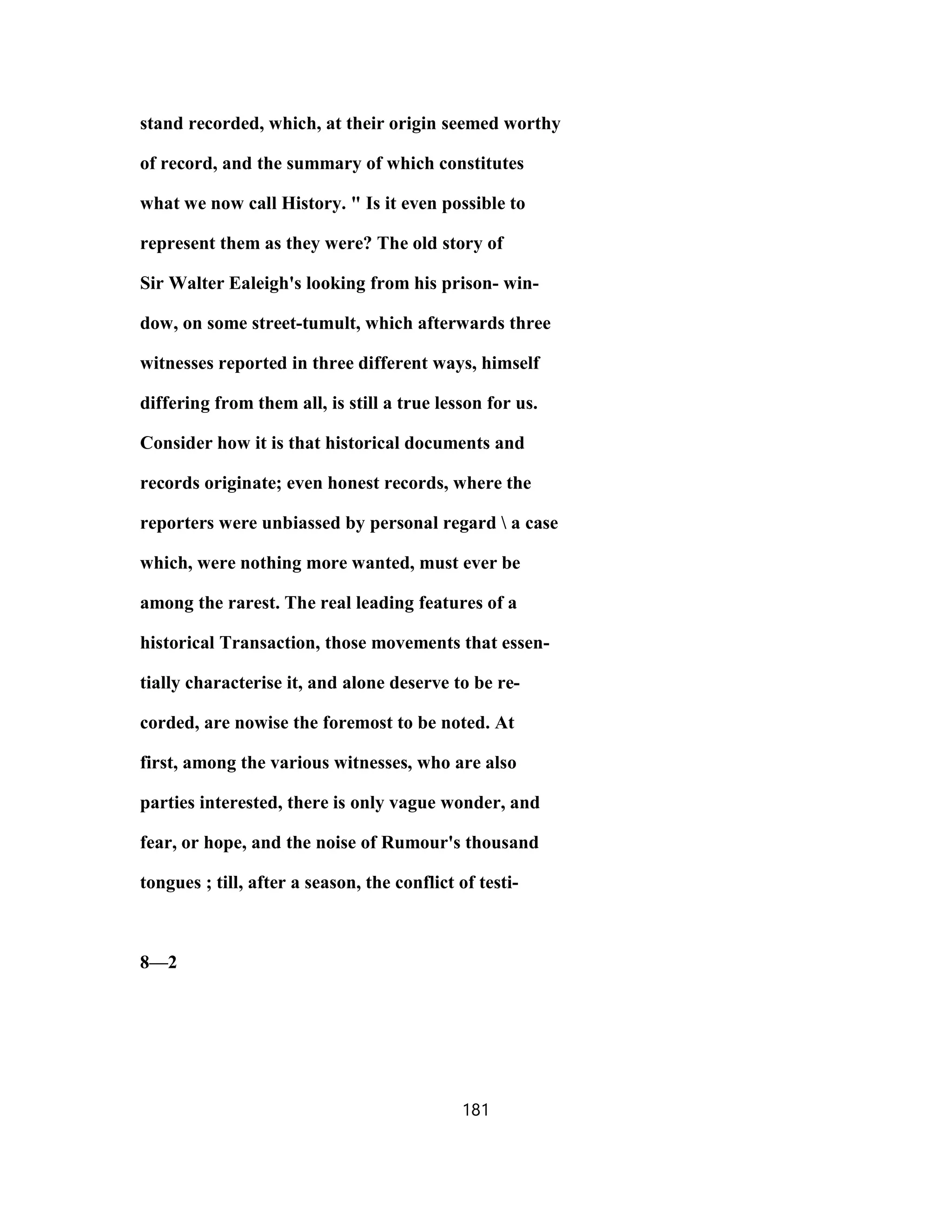



![which is a disgrace to them, if they bear it.
ii8 RECREATIONS OF A RECLUSE.
Enter Abbam and Balthazar.
Abr, Do you bite your thumb at us, sir P
Samp, I do bite my thumb, sir.
Abr. Do you bite your thumb at us, sir ?
Samp, [to GT^;ory]. Is the law on our side, if I say Ay ?
As Gregory answers No to this, and as Sampson is
scrupulous to keep on the safe side of the law, and
studious to put his antagonists in the wrong, he pro-
fesses in reply to Abram and Balthazar not to bite
his thumb at them, only he insists on the fa«t of
biting his thumb for all that. Of course a fight is
speedily got up on other pretences ; but Sampson and
Gregoiy exult in so manoeuvring as to keep the law
on their side.
The common folk of Verona, as Shakspeare pic-
tures them, seem to have been particular on this
185](https://image.slidesharecdn.com/thebestoffrancisjacox-171030162308/75/The-best-of-francis-jacox-185-2048.jpg)

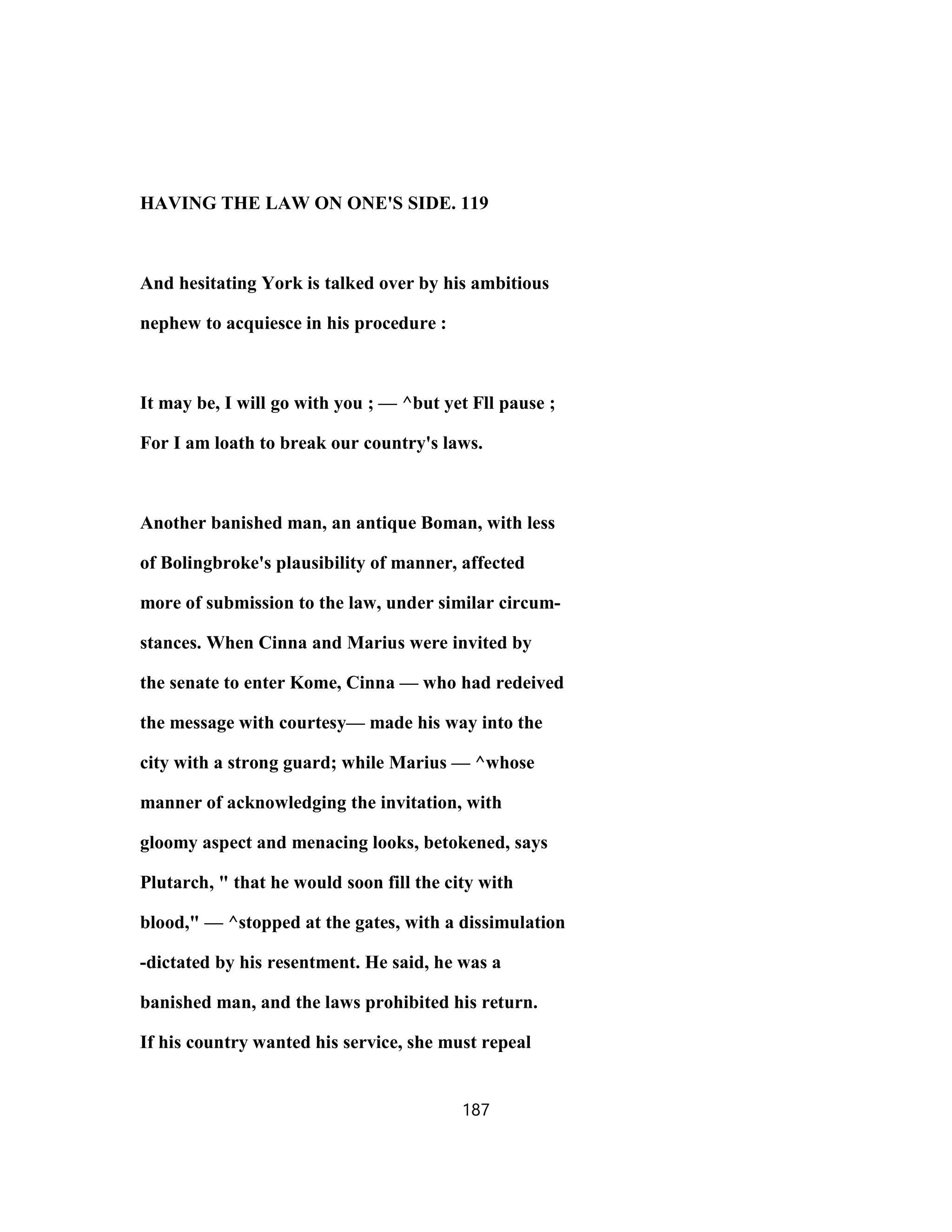
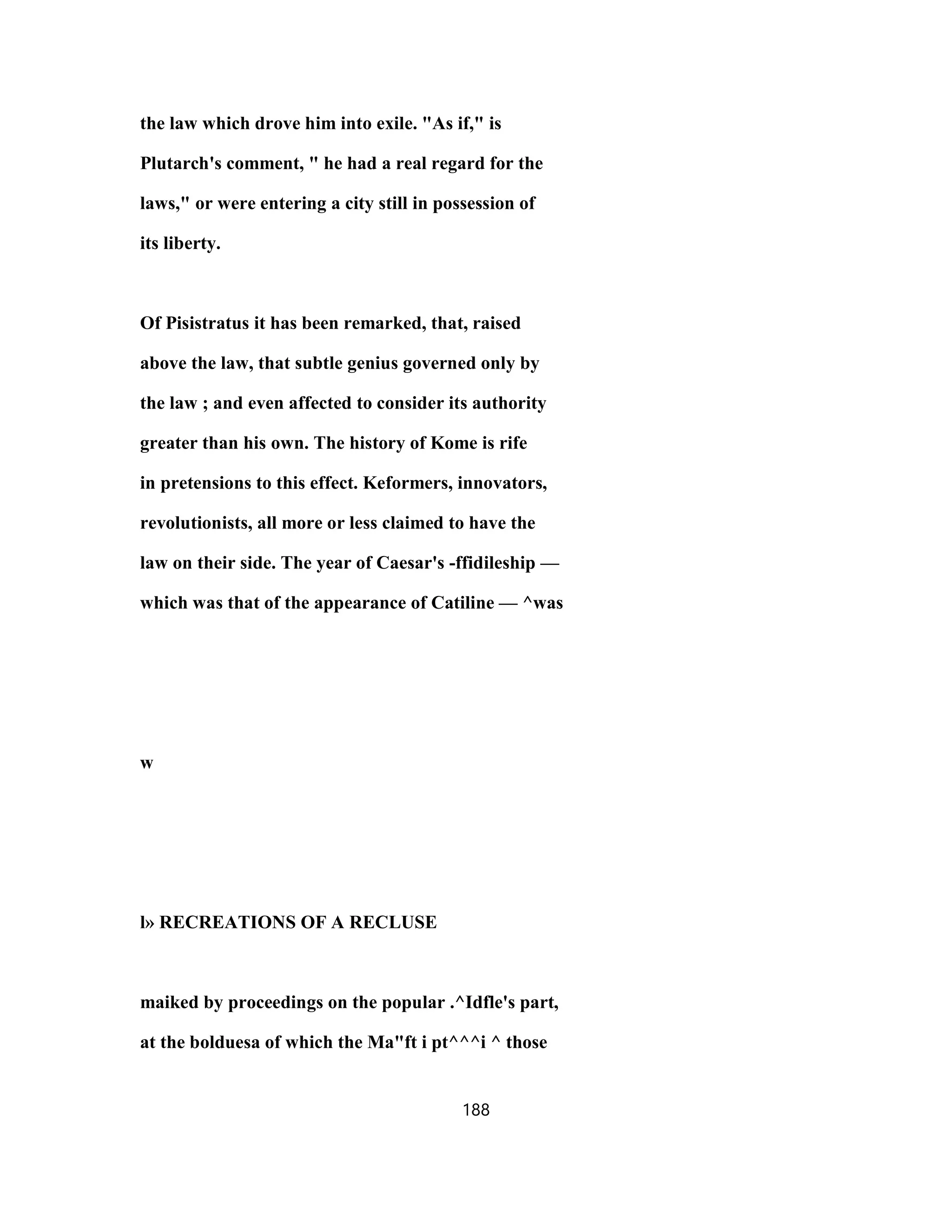


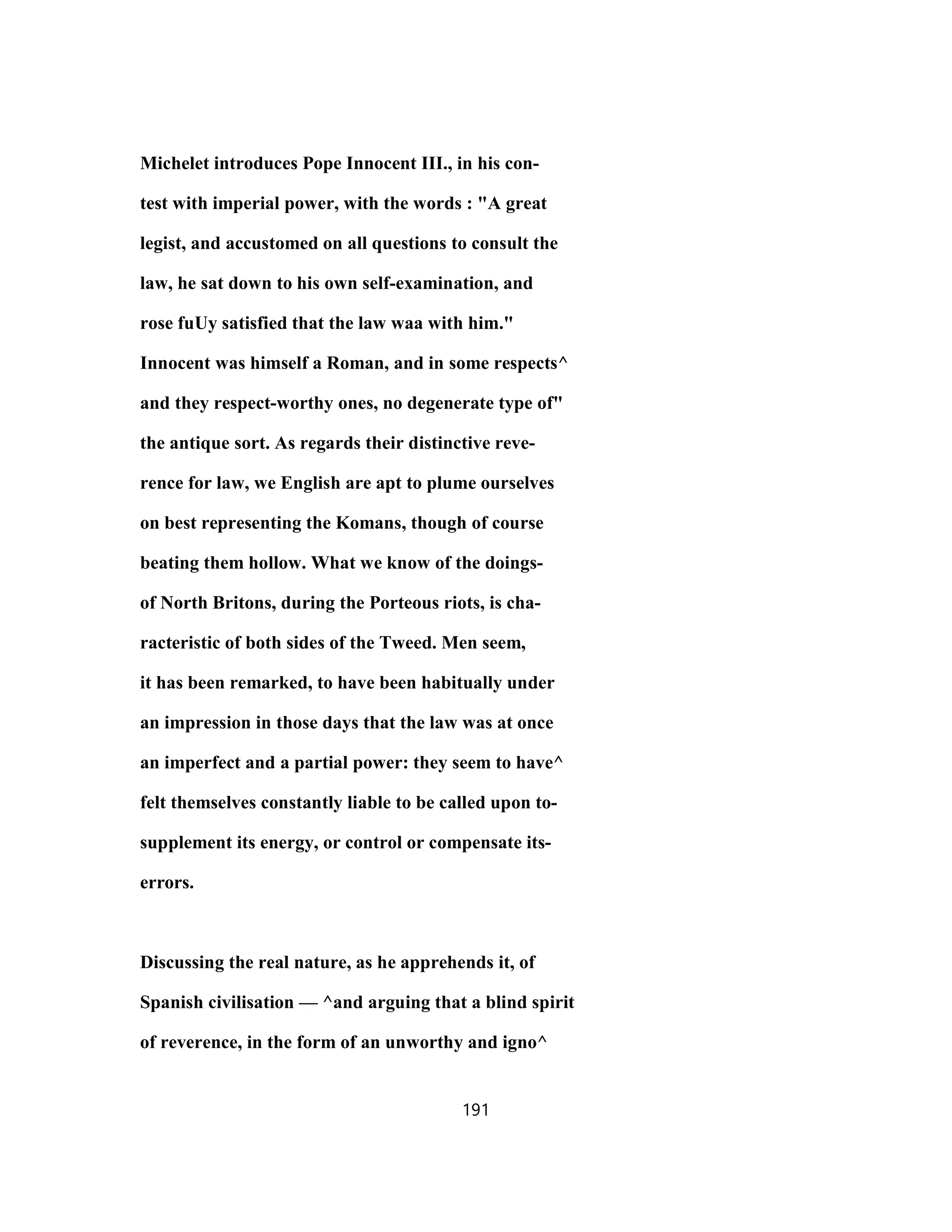







![of obedience to authority, which is one of the most
beneficial and admirable effects of our free institu-
tions."
Leigh Himt, in his autobiography, has a story of
an encounter he and his brothers had, while boating
up the Thames, with some fishermen, whose line
across the river they cut their way through, on the
refusal of the men to lower it. A quarrel ensued^
and the two parties came to blows — ^before a full
interchange of which, however, " beautiful evidence
was furnished of the magical effect of the word
'law.' . . • I had gathered from some words which
fell from them [the fishermen] in their rage, that
what they had been about with their fishing-net
was in all probability illegal. I assumed it to be so,
I mentioned the dreaded word ' law ;' my black coat
corroborated its impression : and to our equal relief
and surprise, we found them on the sudden convert-
ing their rage and extortion into an assumption that
we meant to settle with their master, and quietly
permitting us to go back to our friends." The
author of " The Gentle Life" quotes Montesquieu's
affirmation, that "if a man in England had as many
199](https://image.slidesharecdn.com/thebestoffrancisjacox-171030162308/75/The-best-of-francis-jacox-199-2048.jpg)


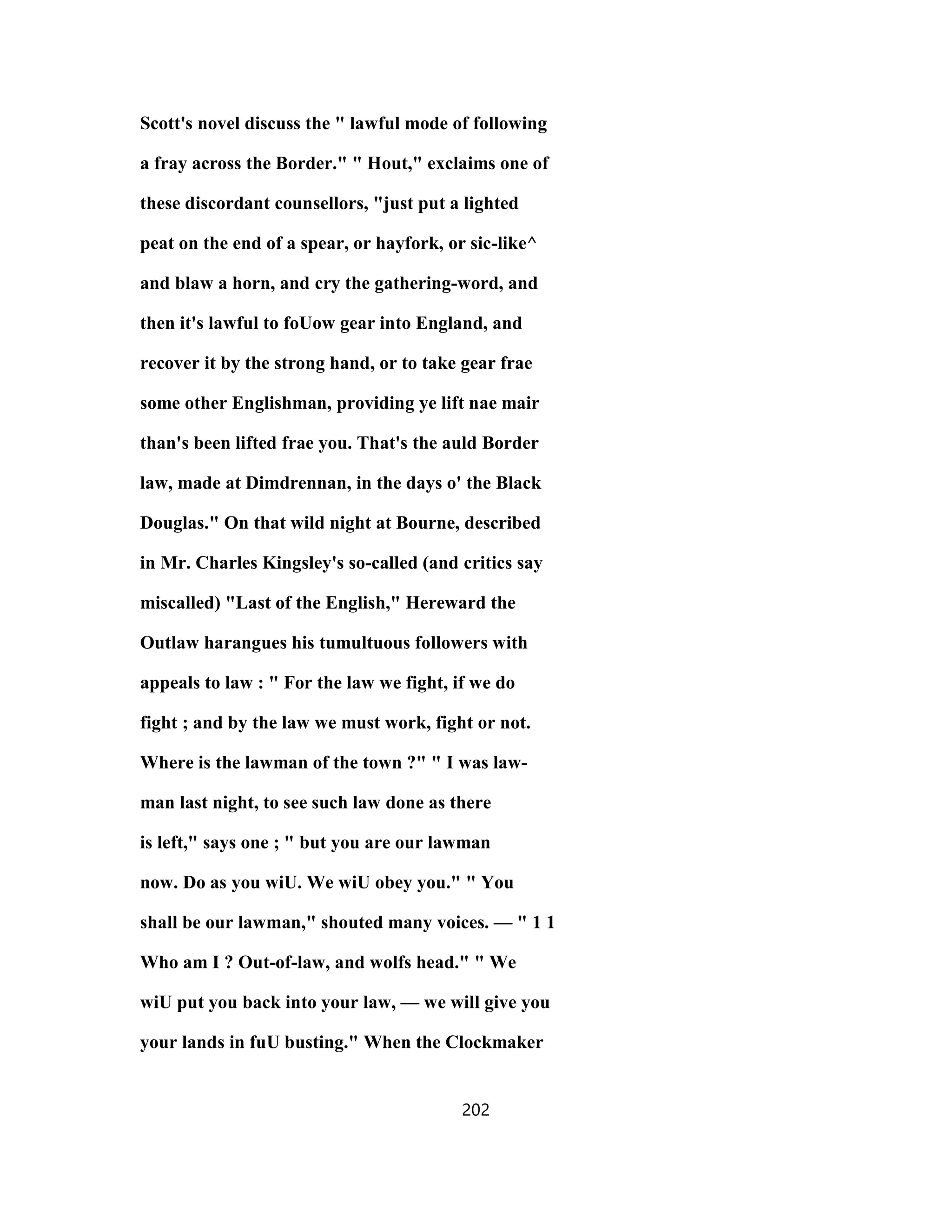

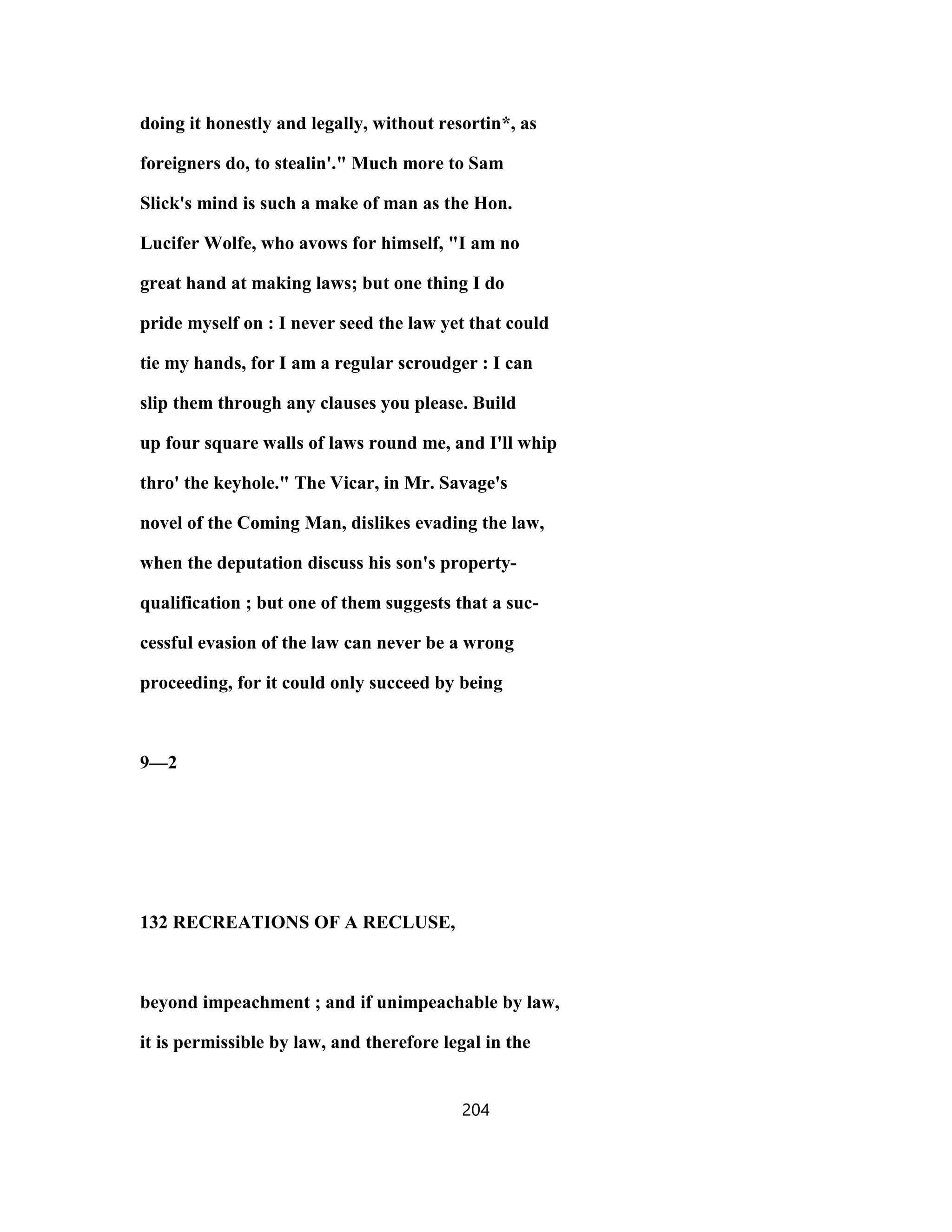

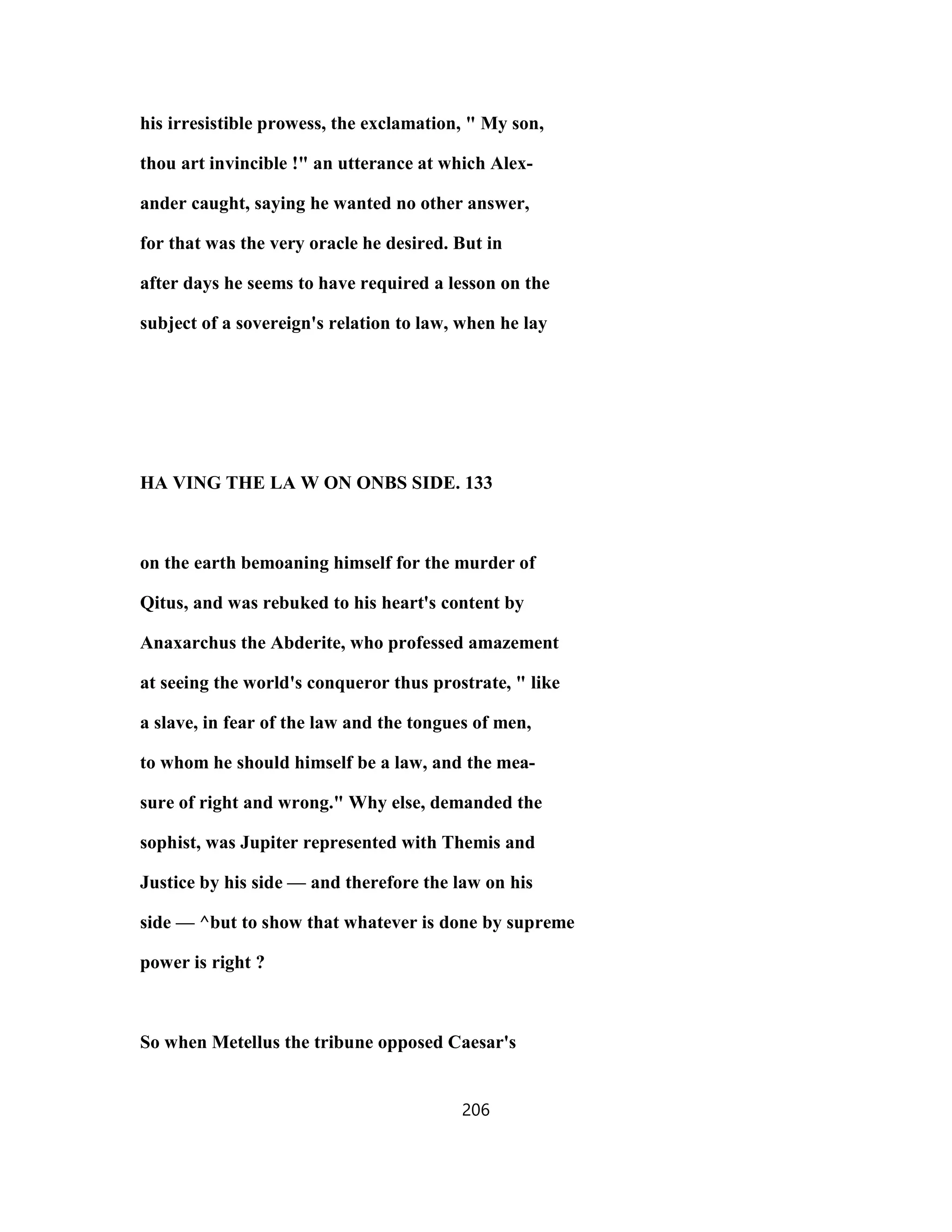

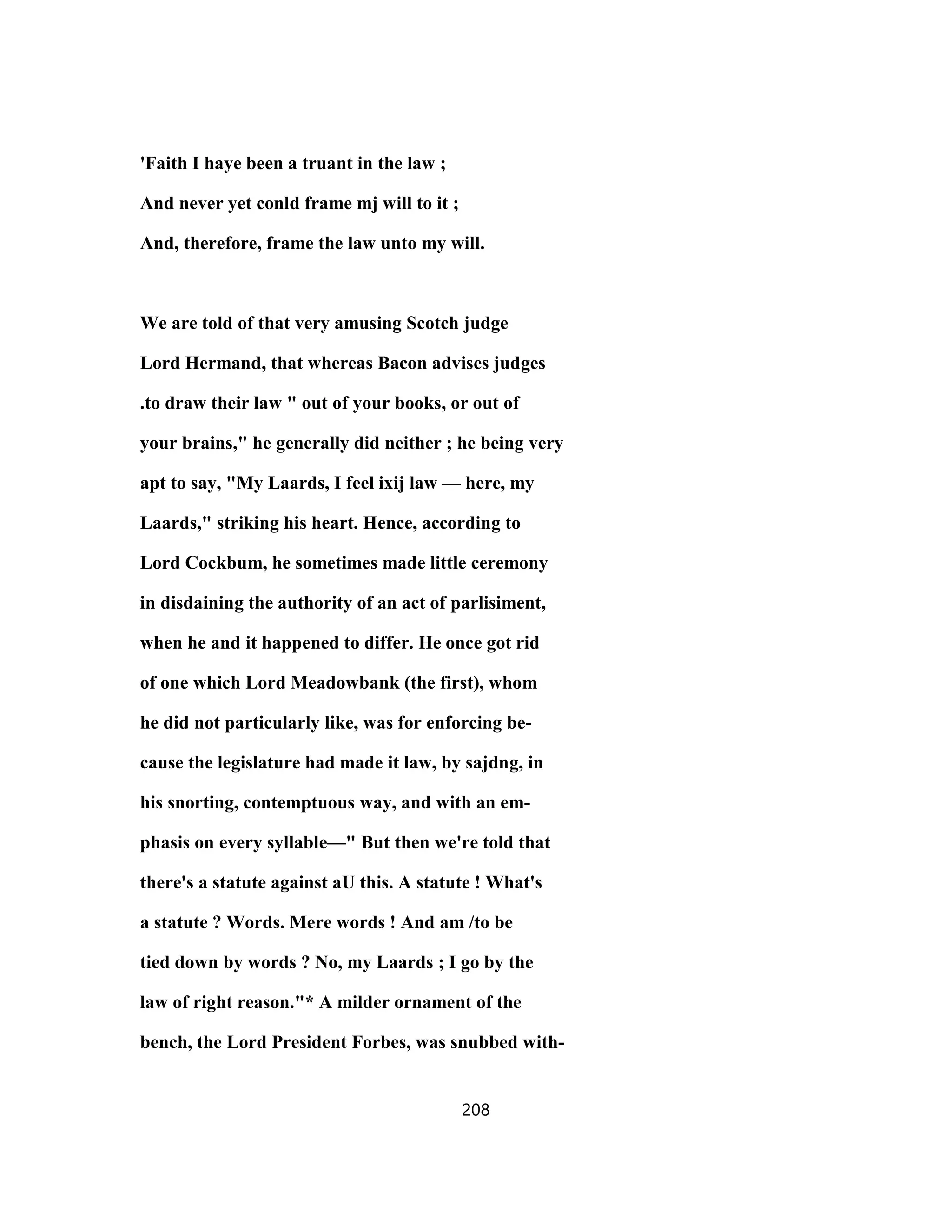
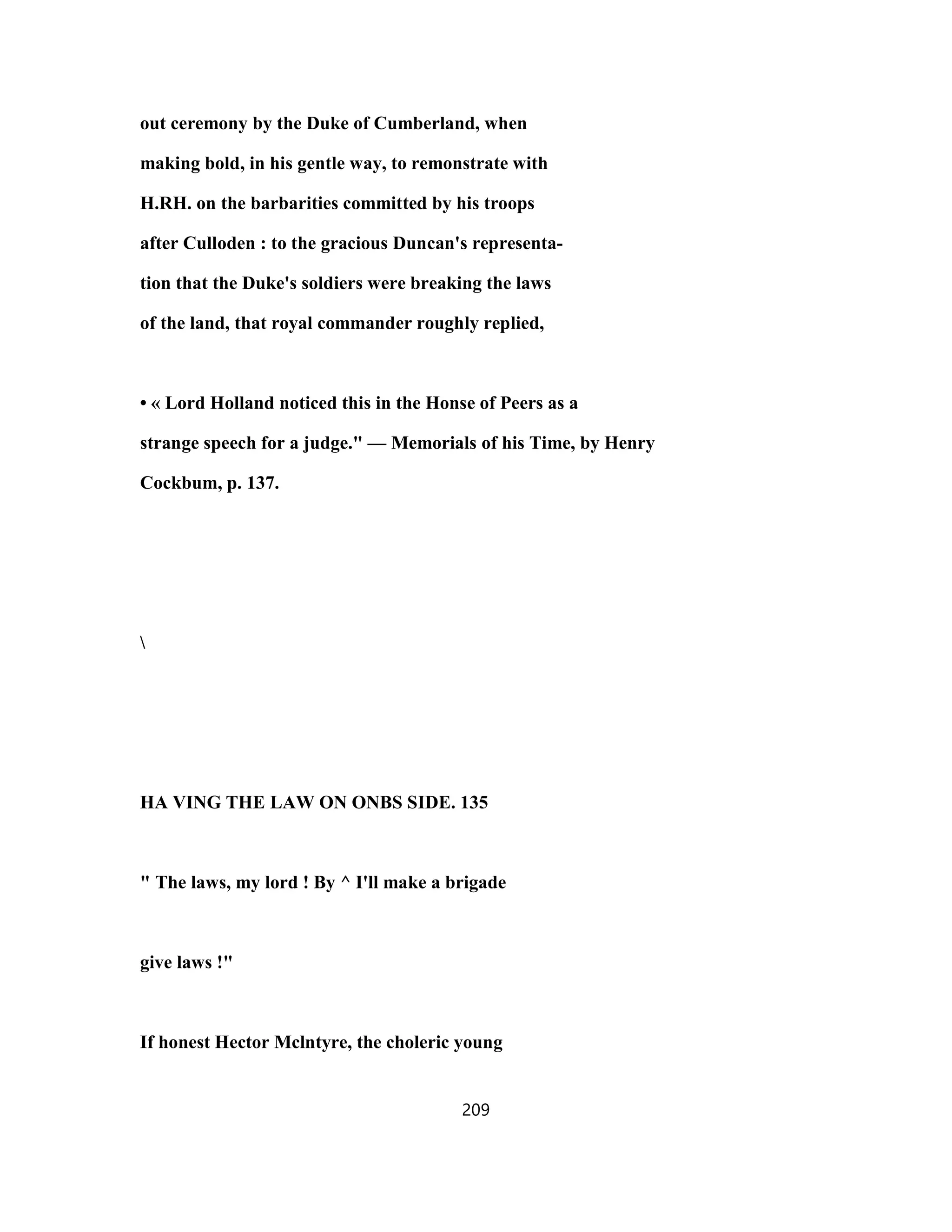
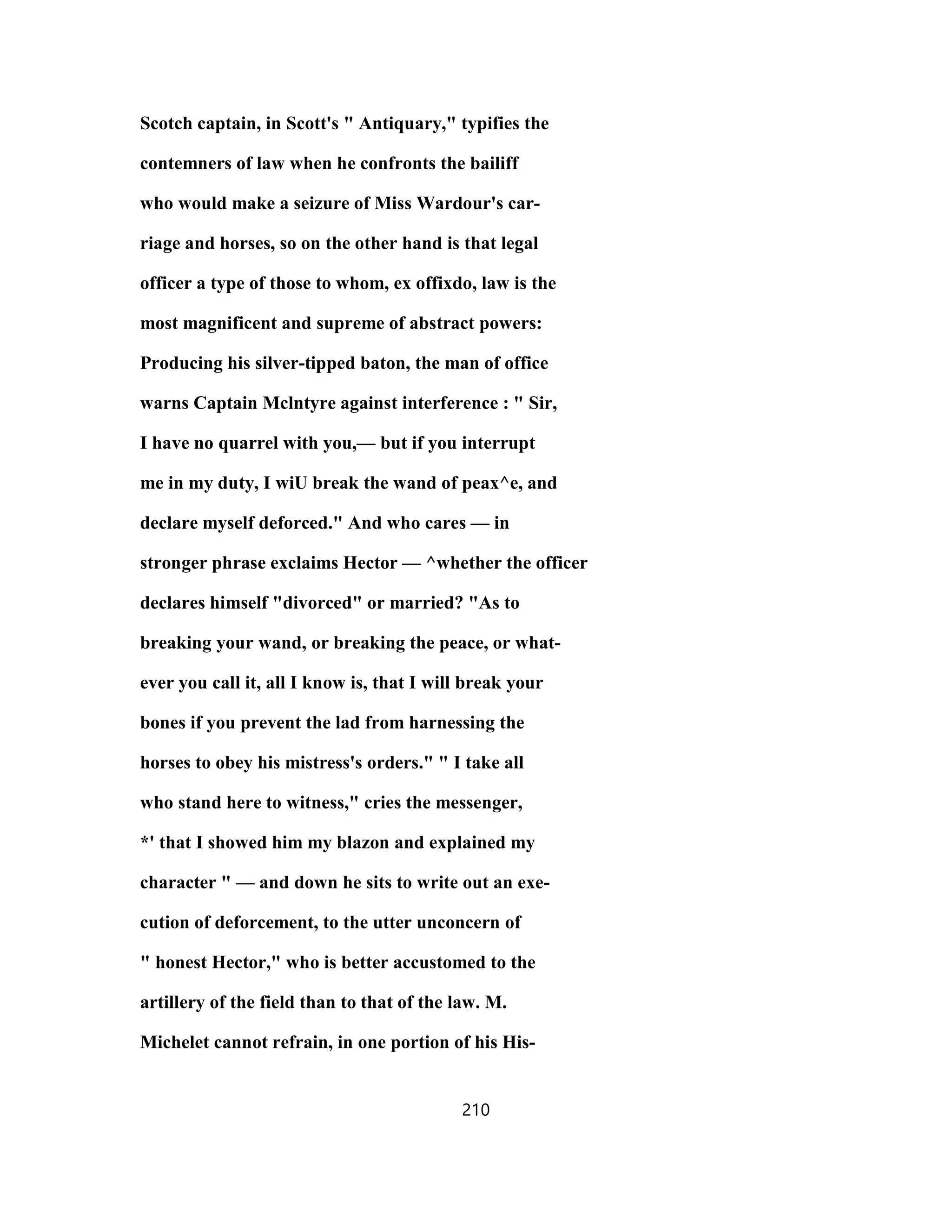
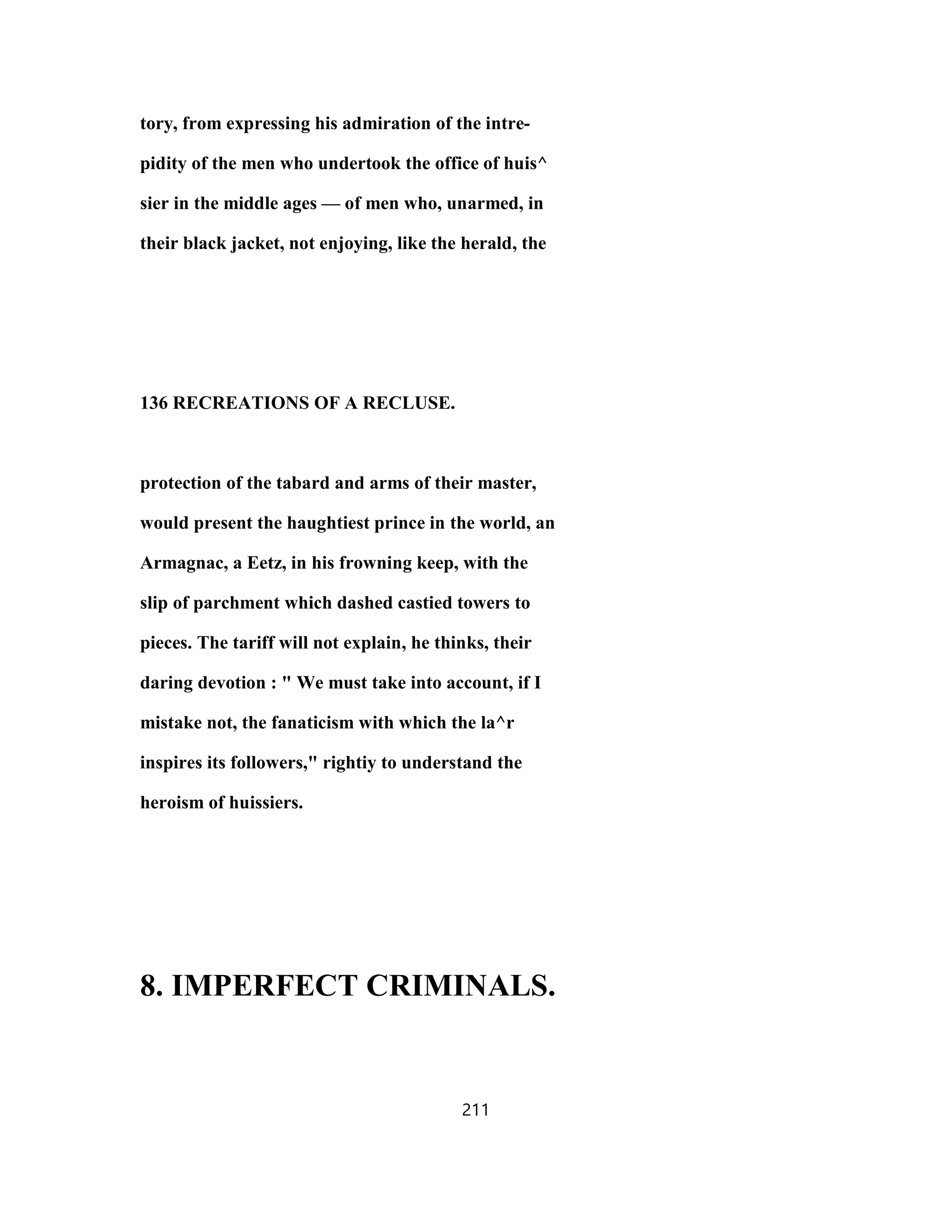
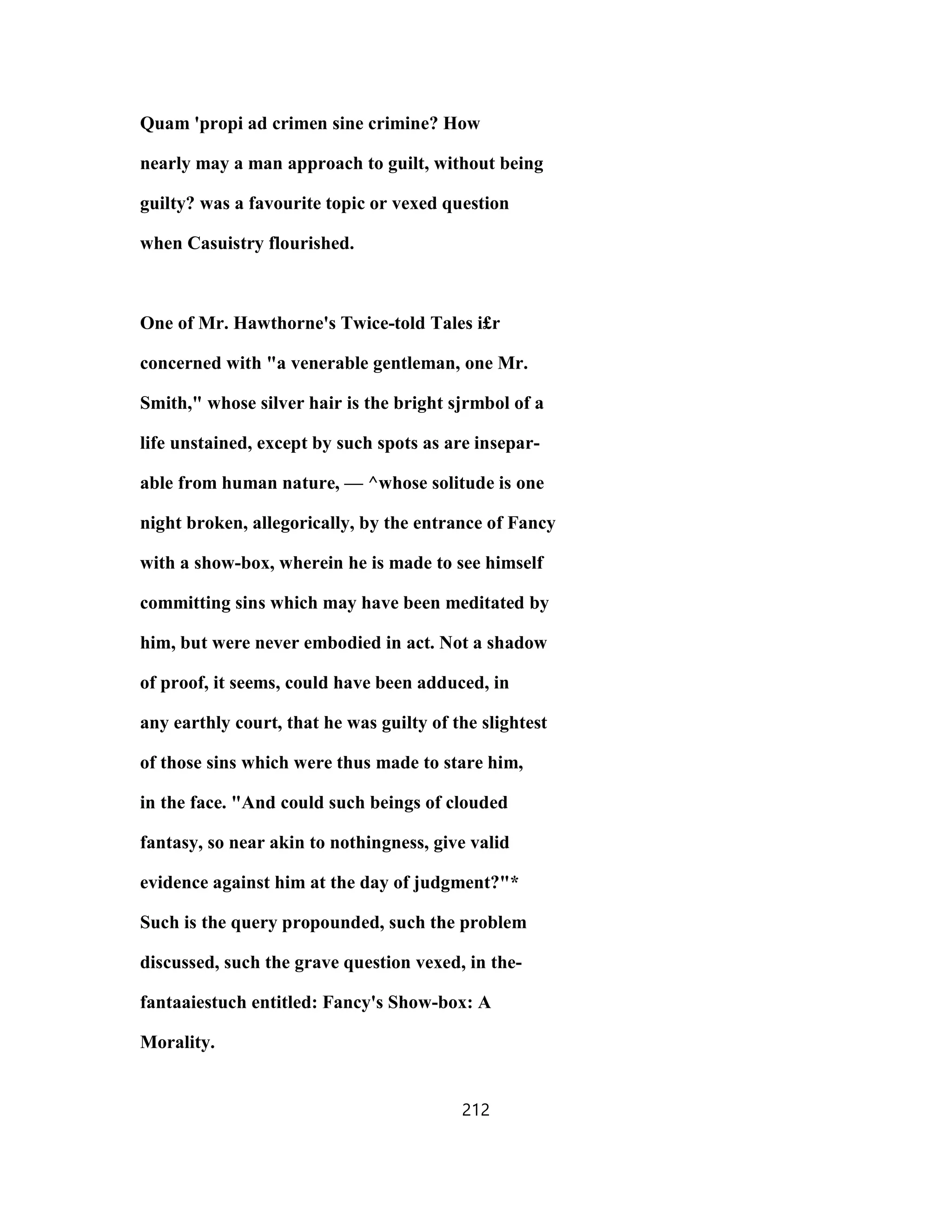

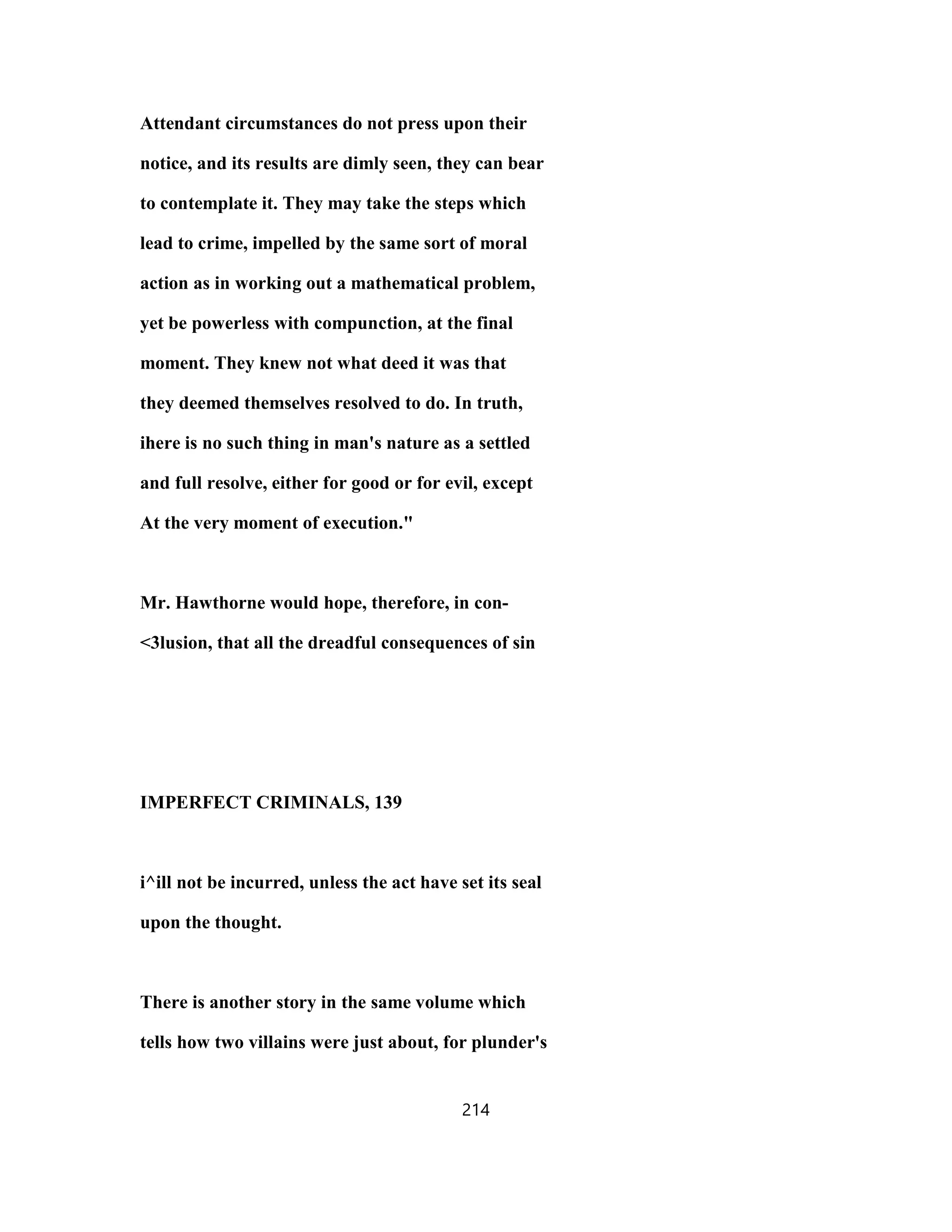


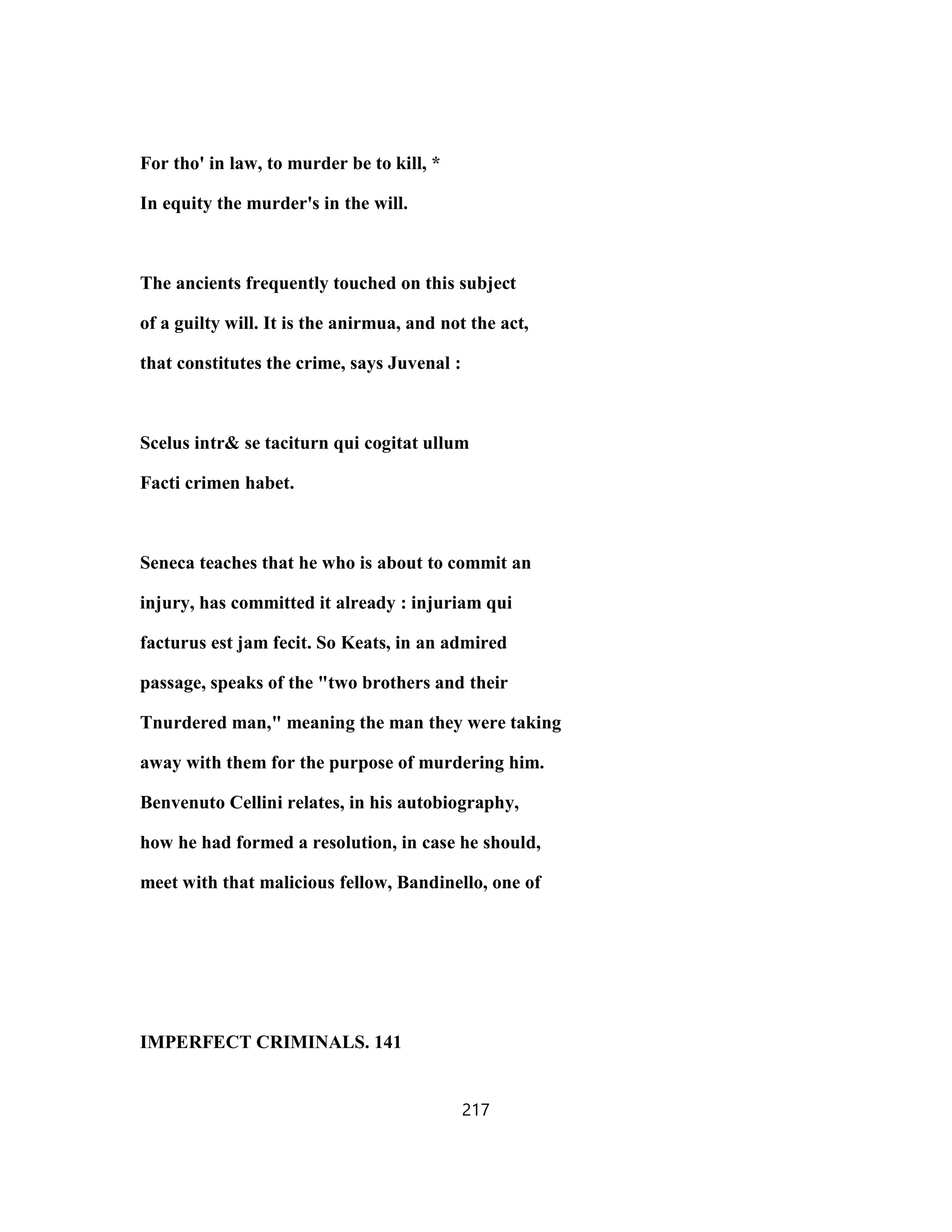
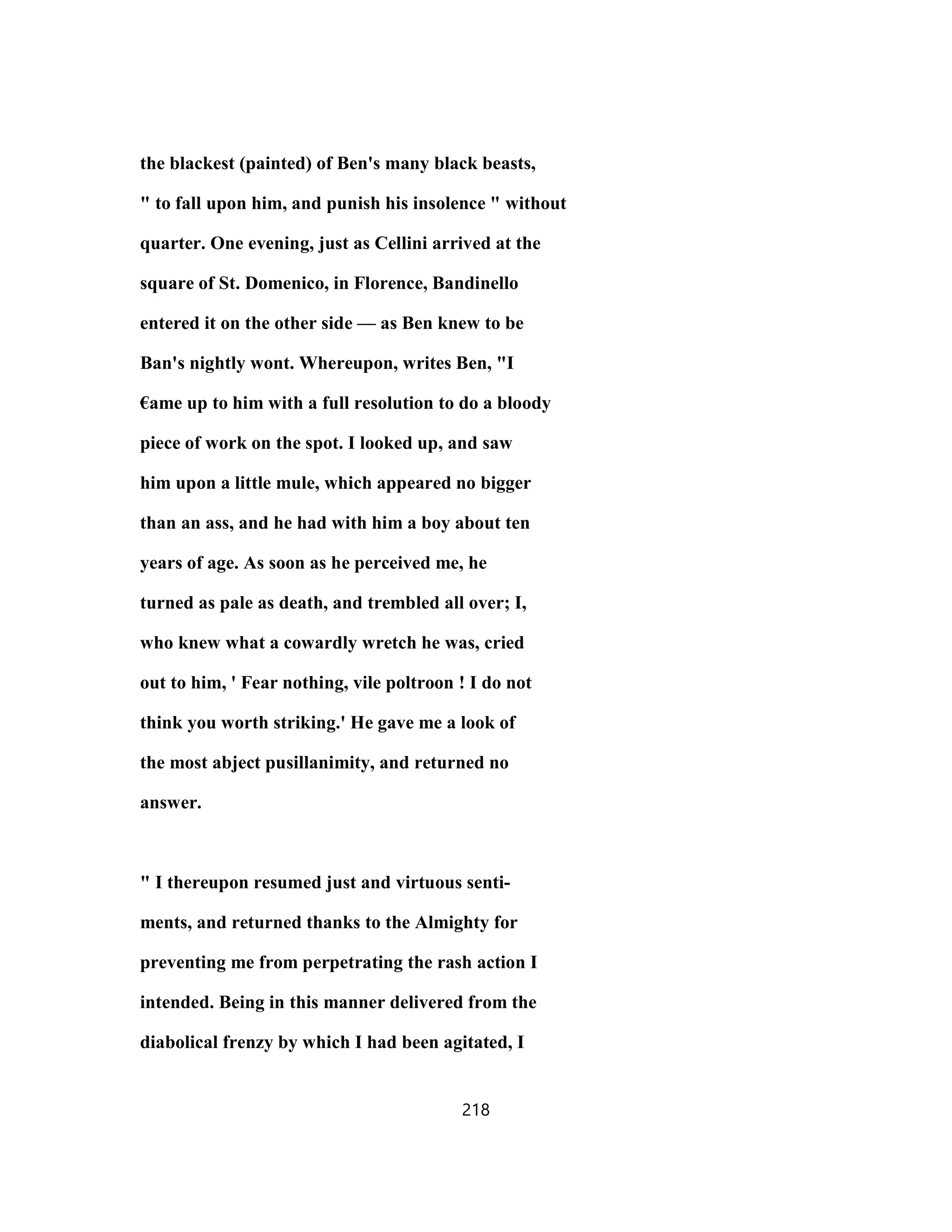


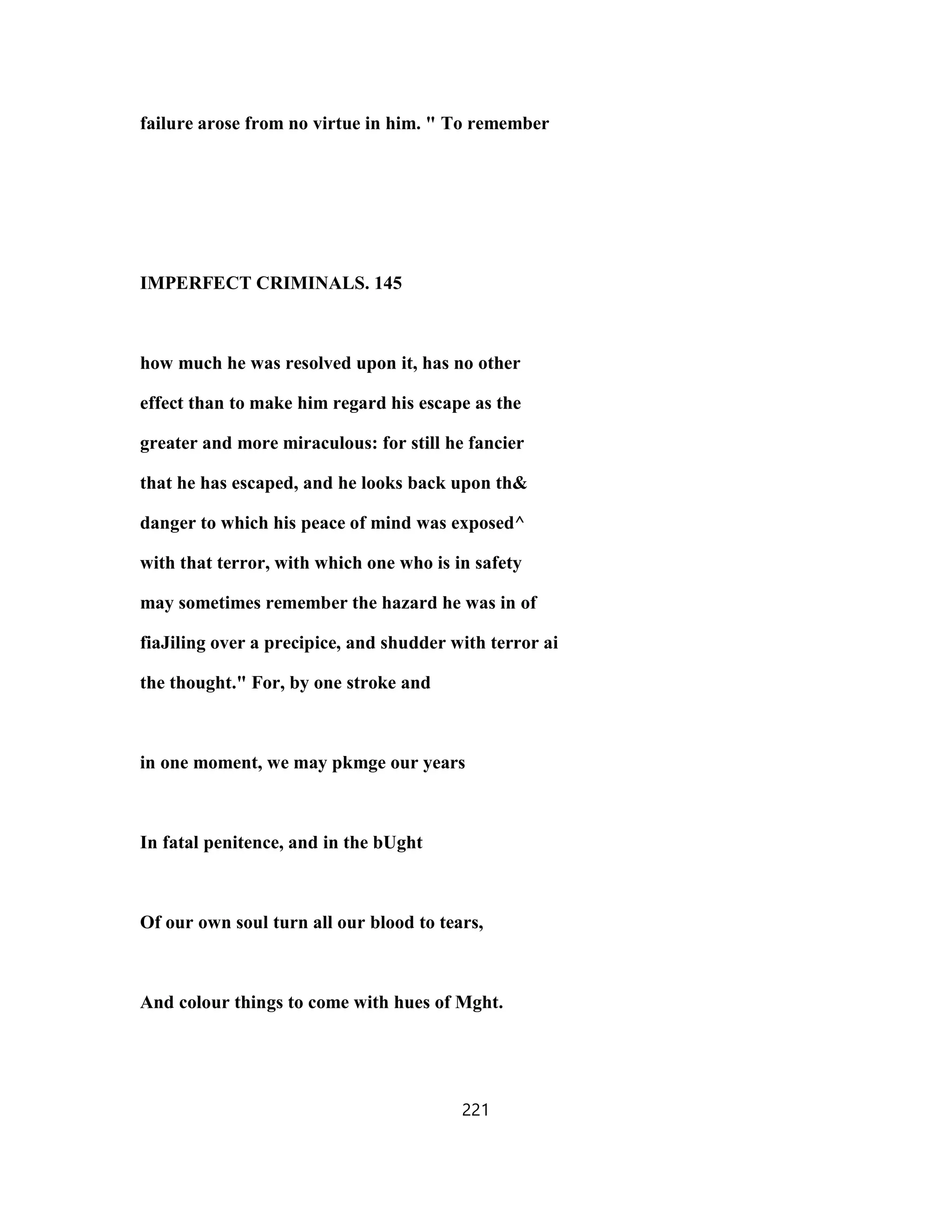






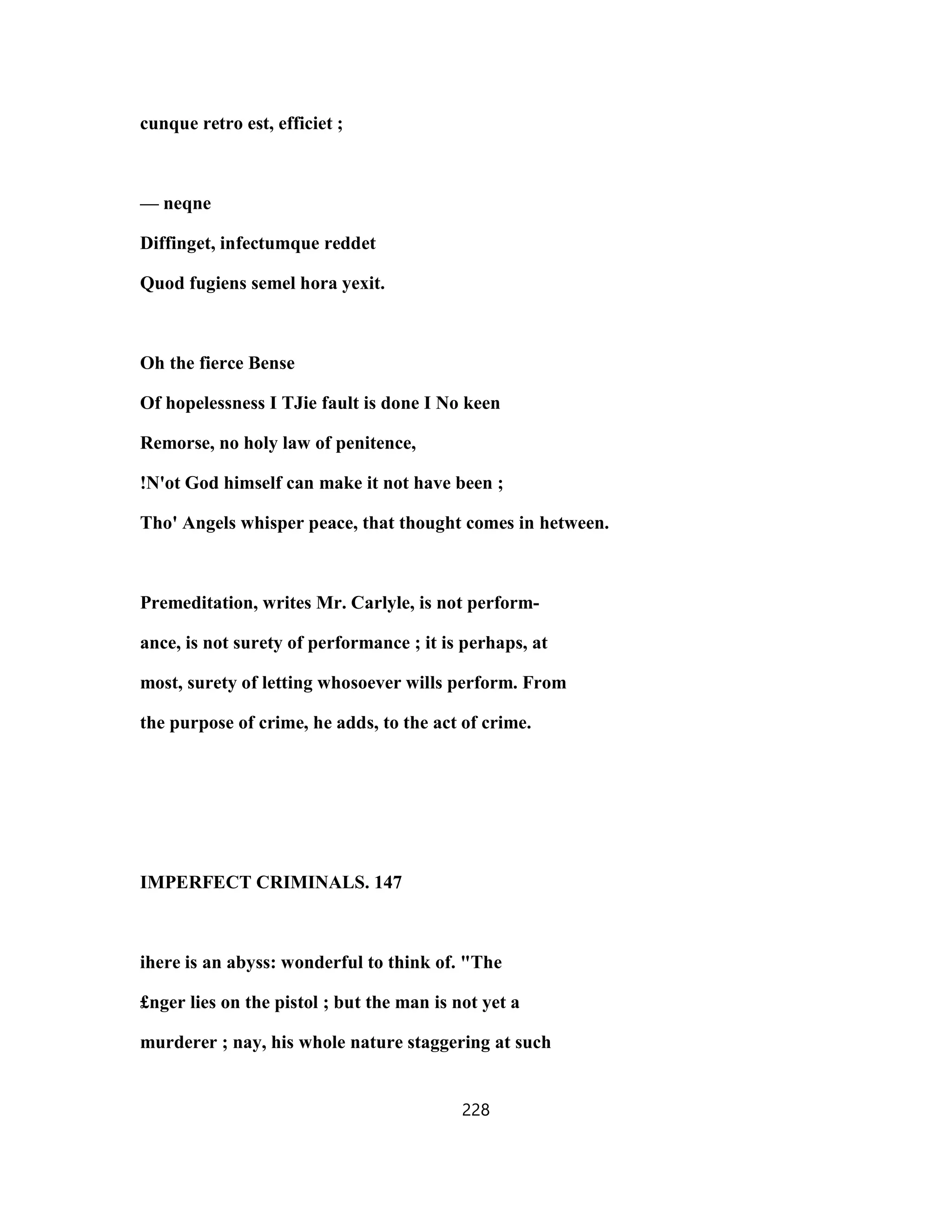





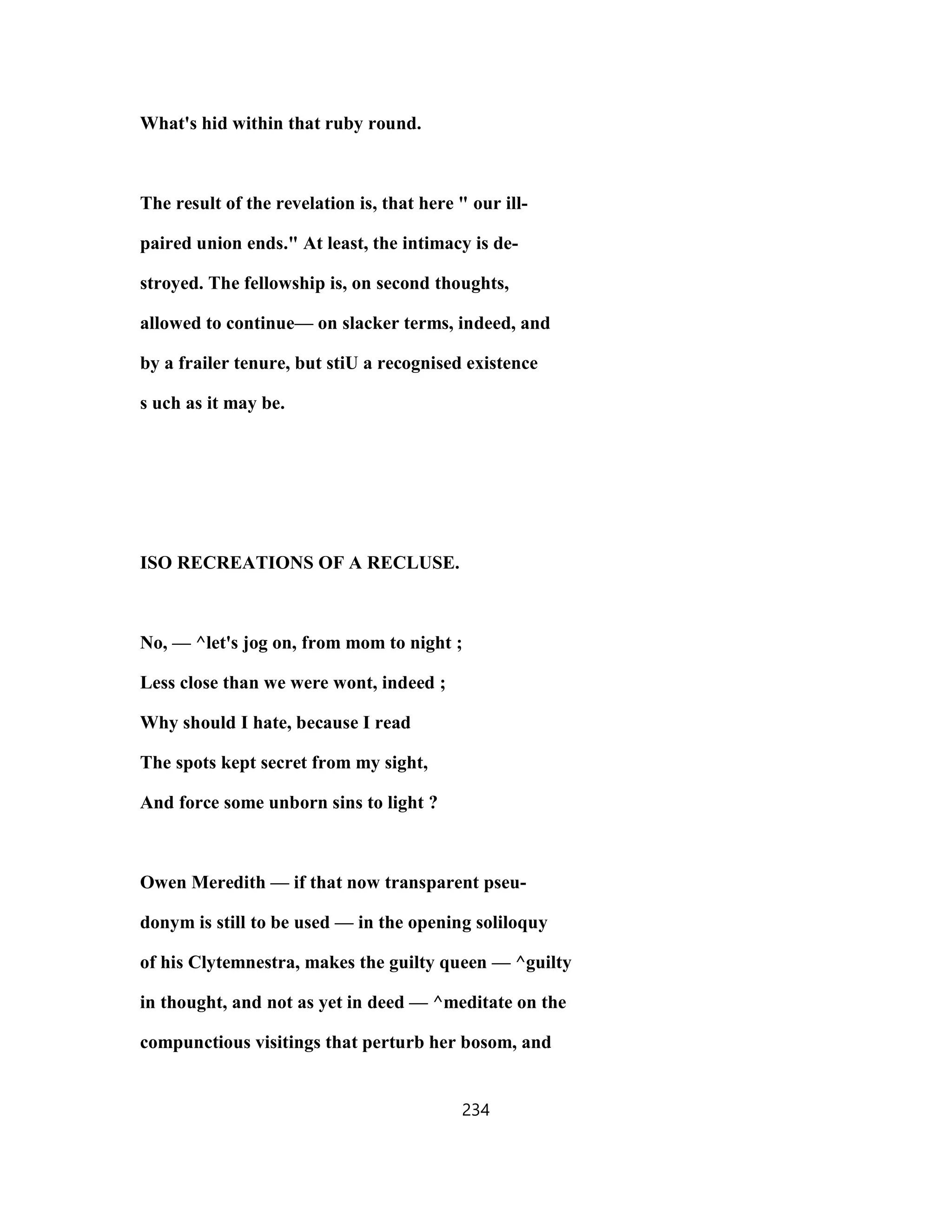

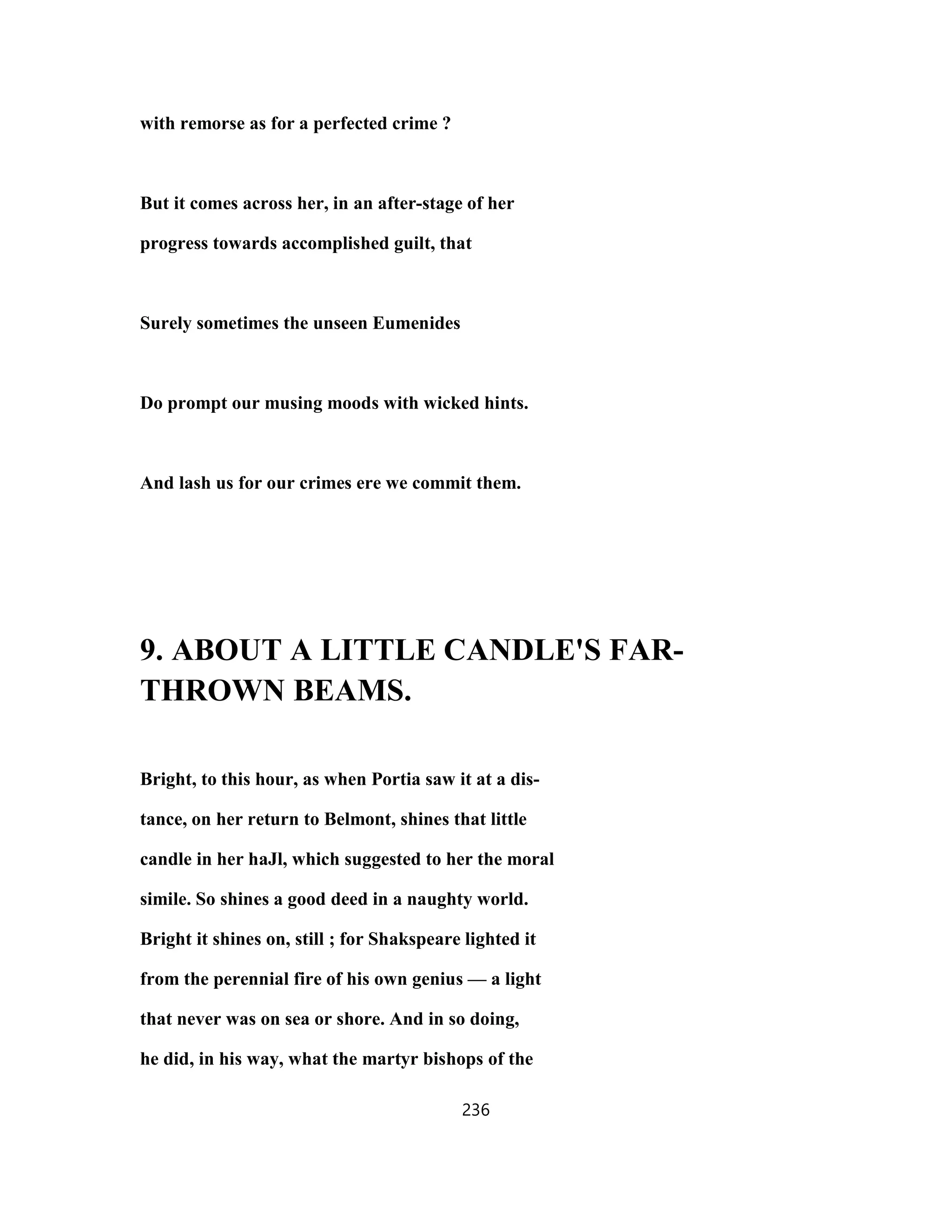

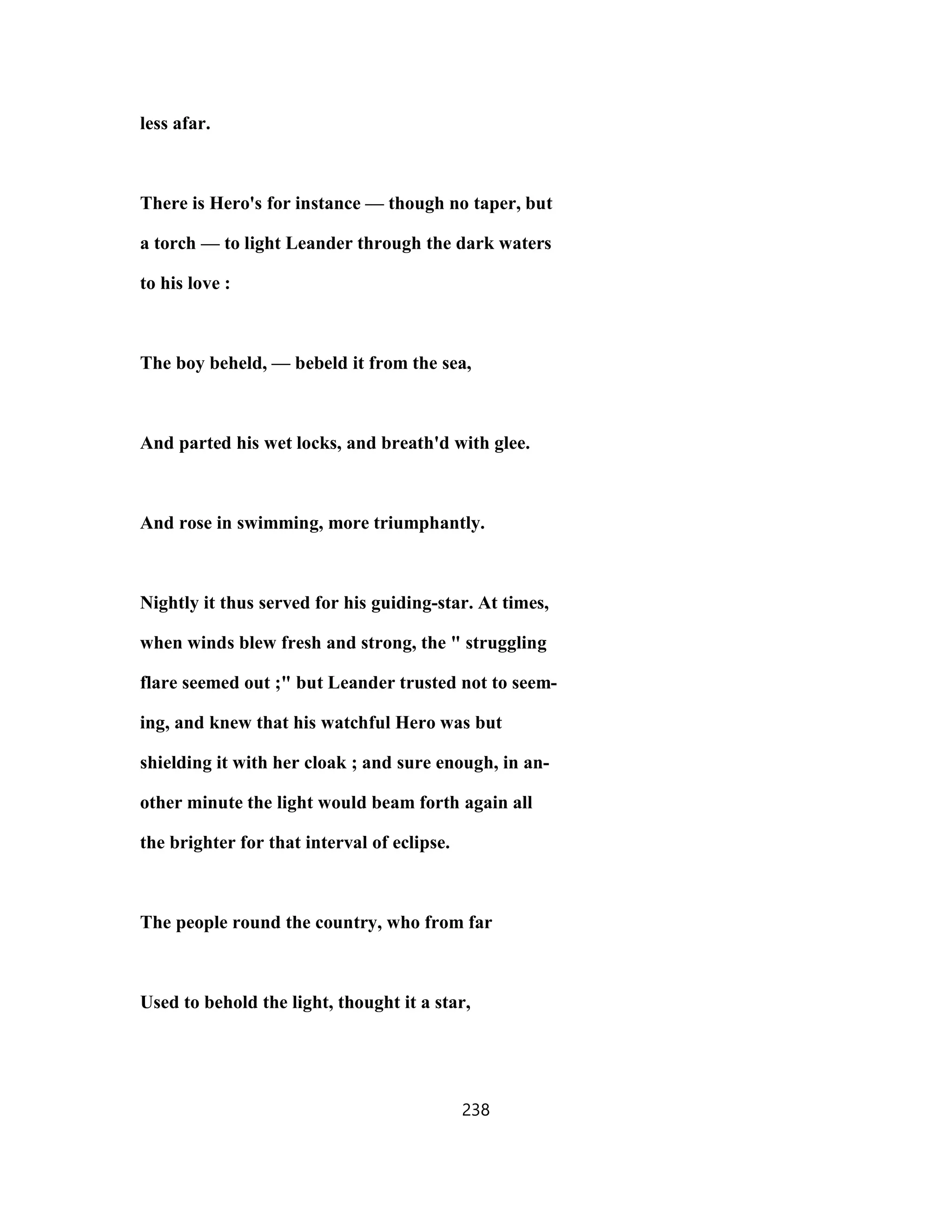
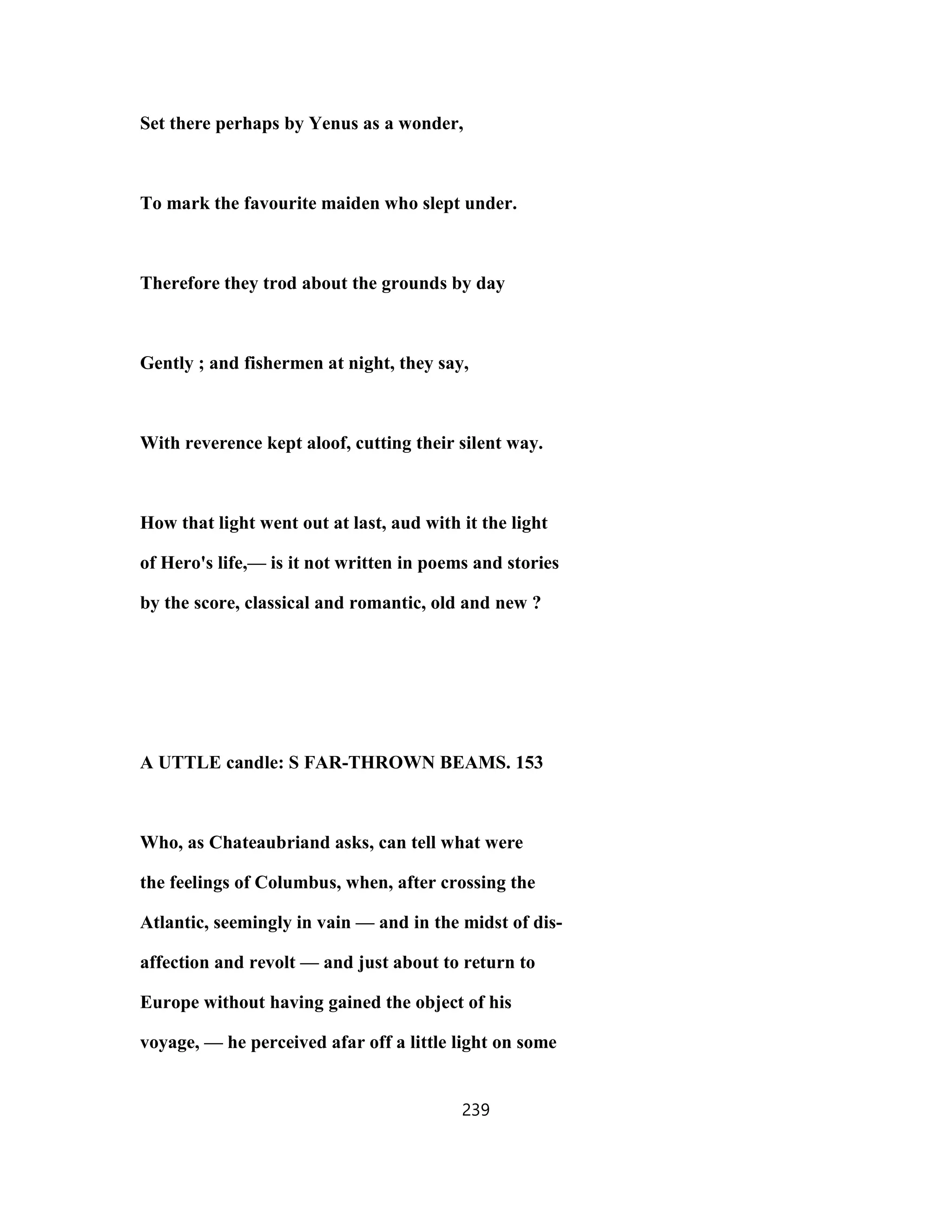
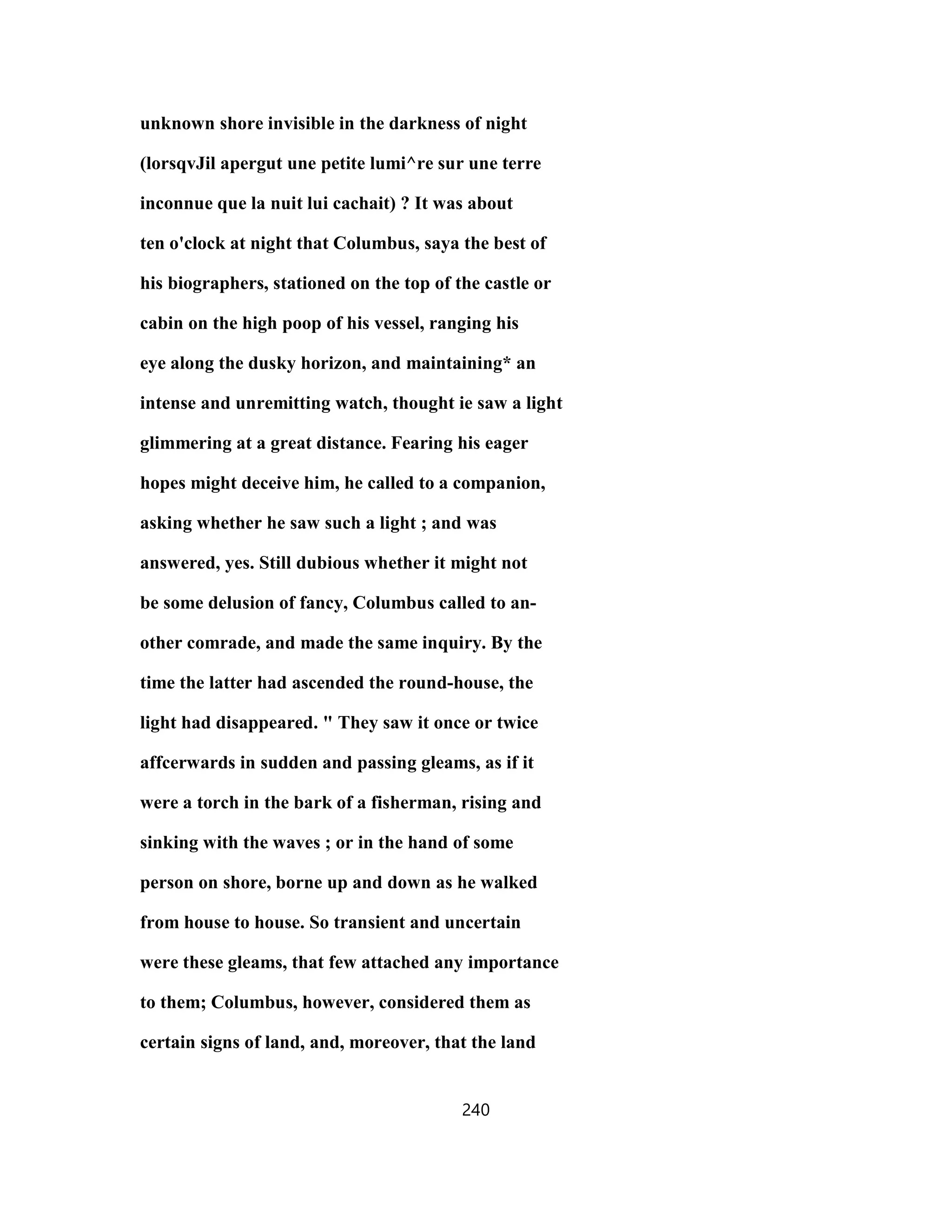
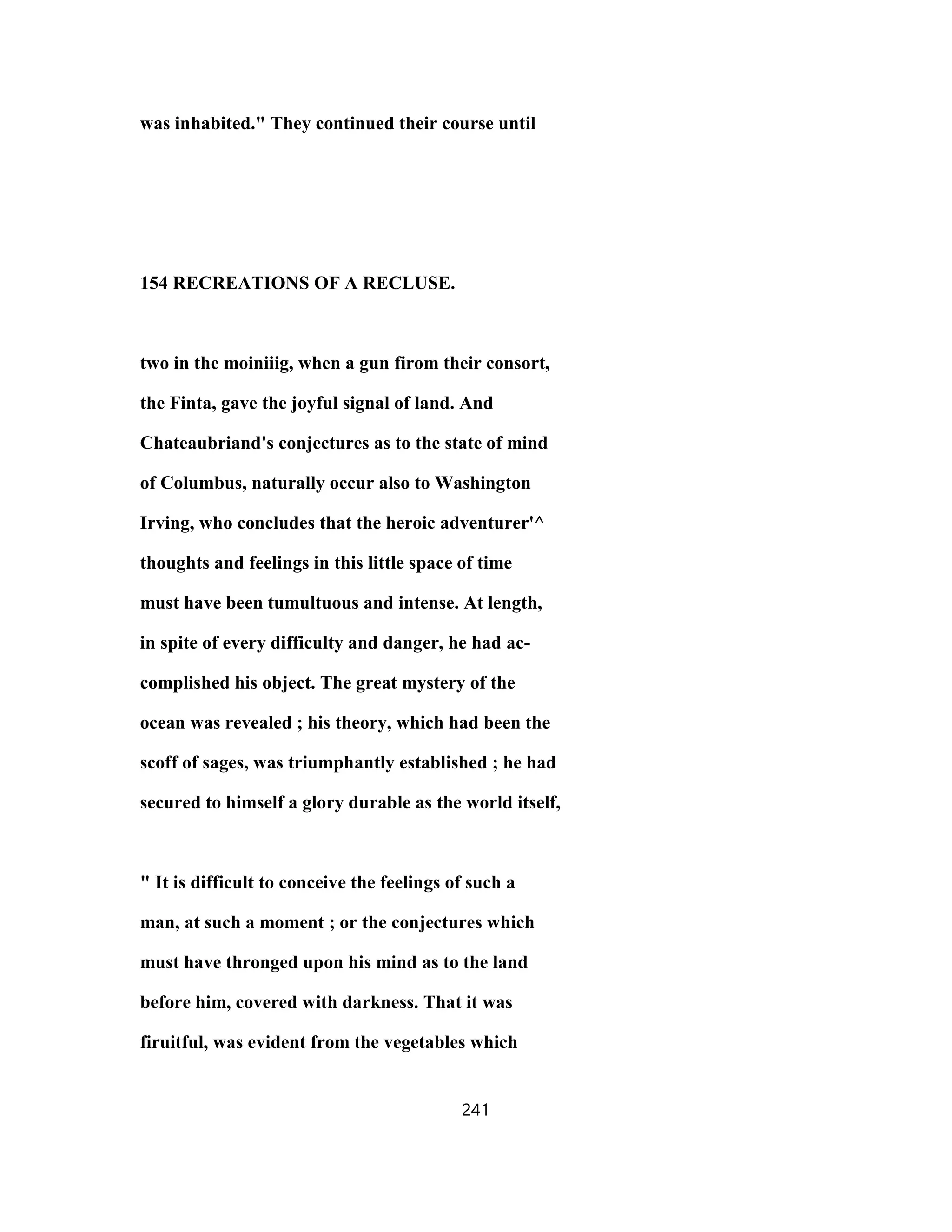
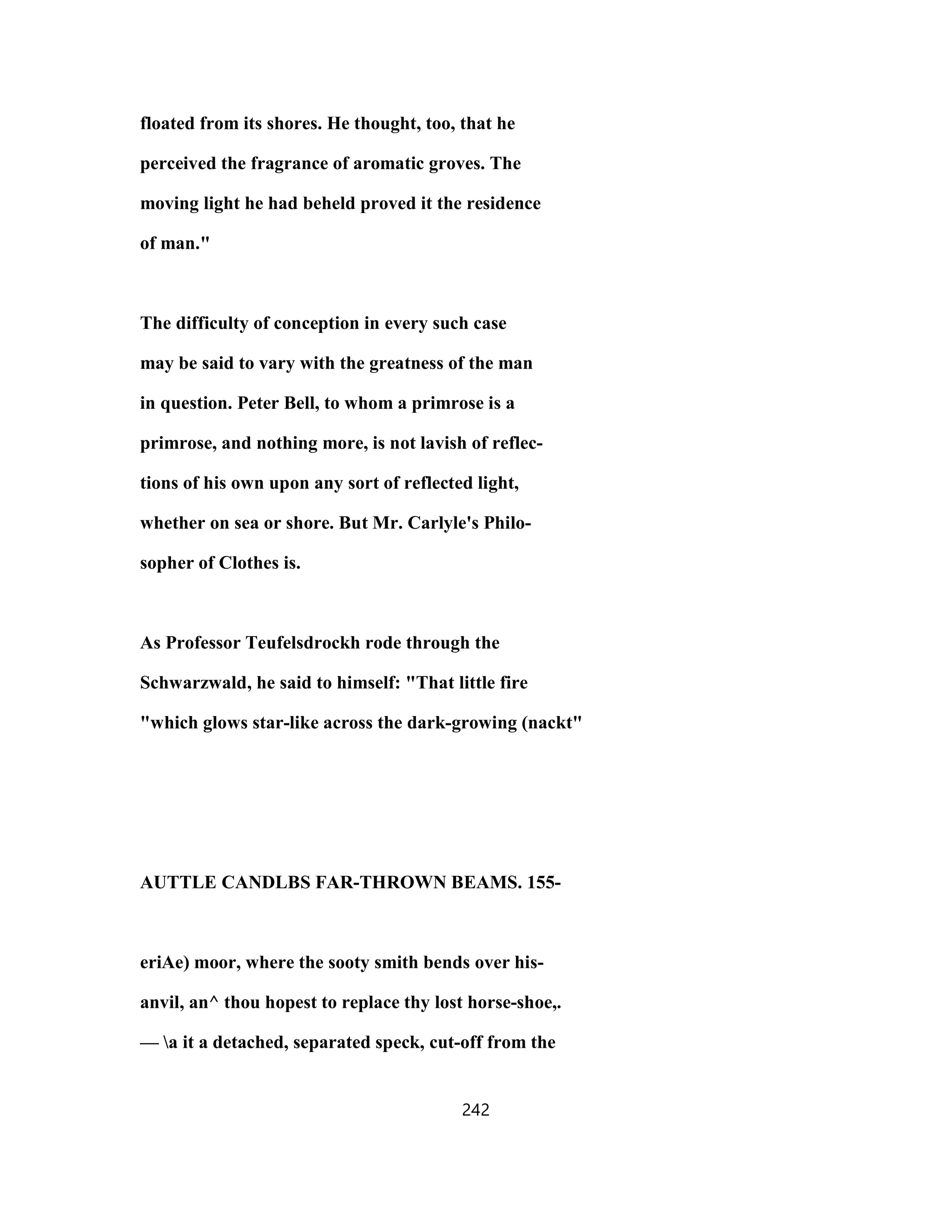


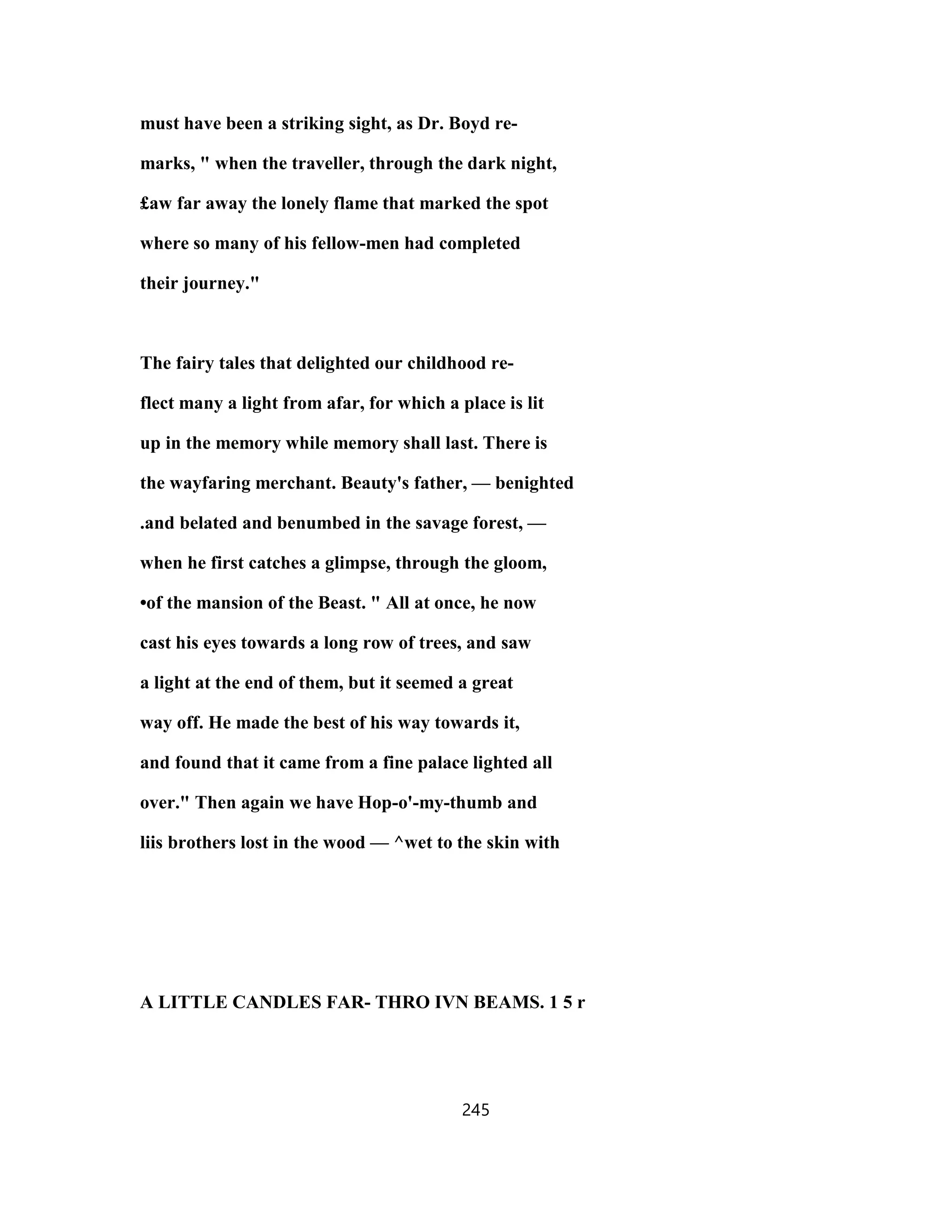
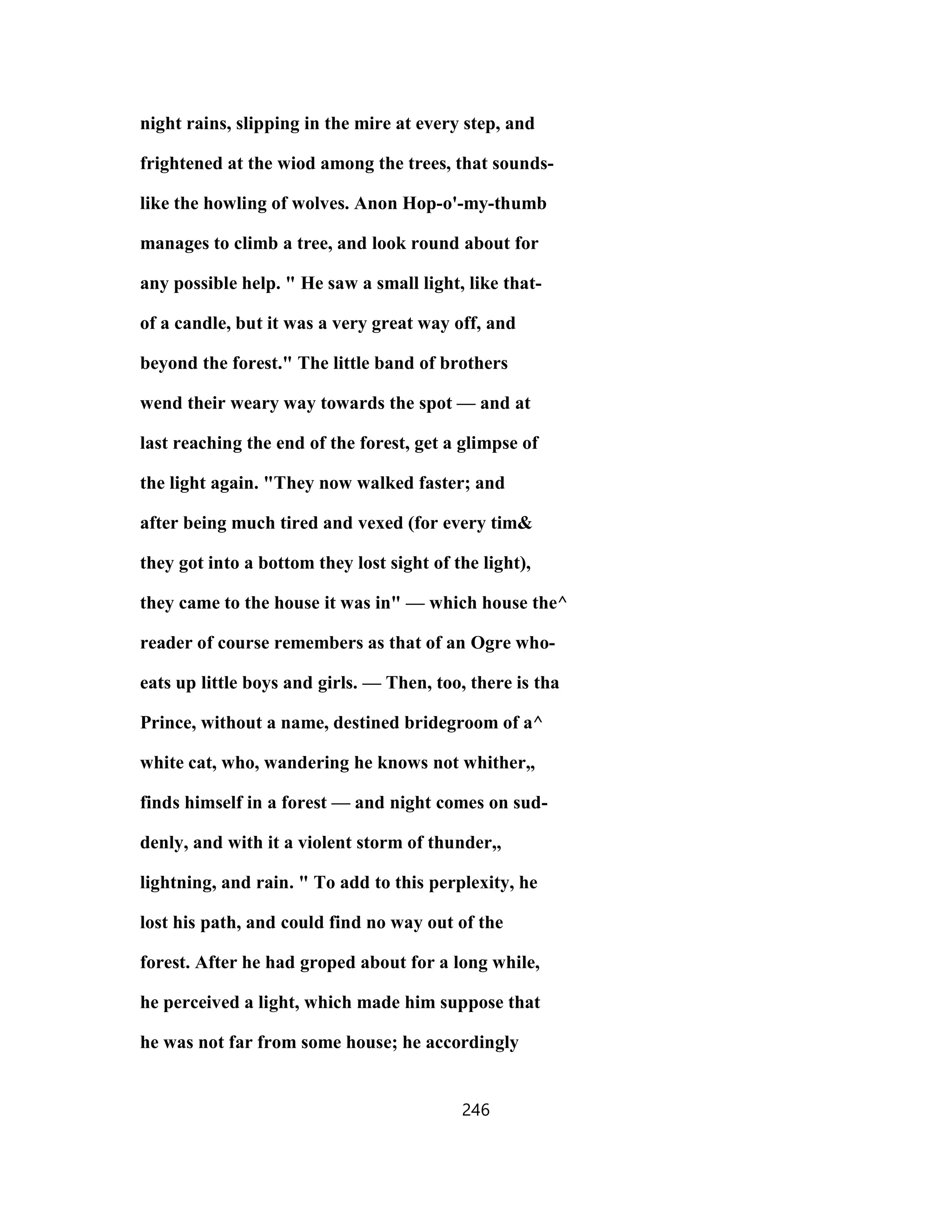

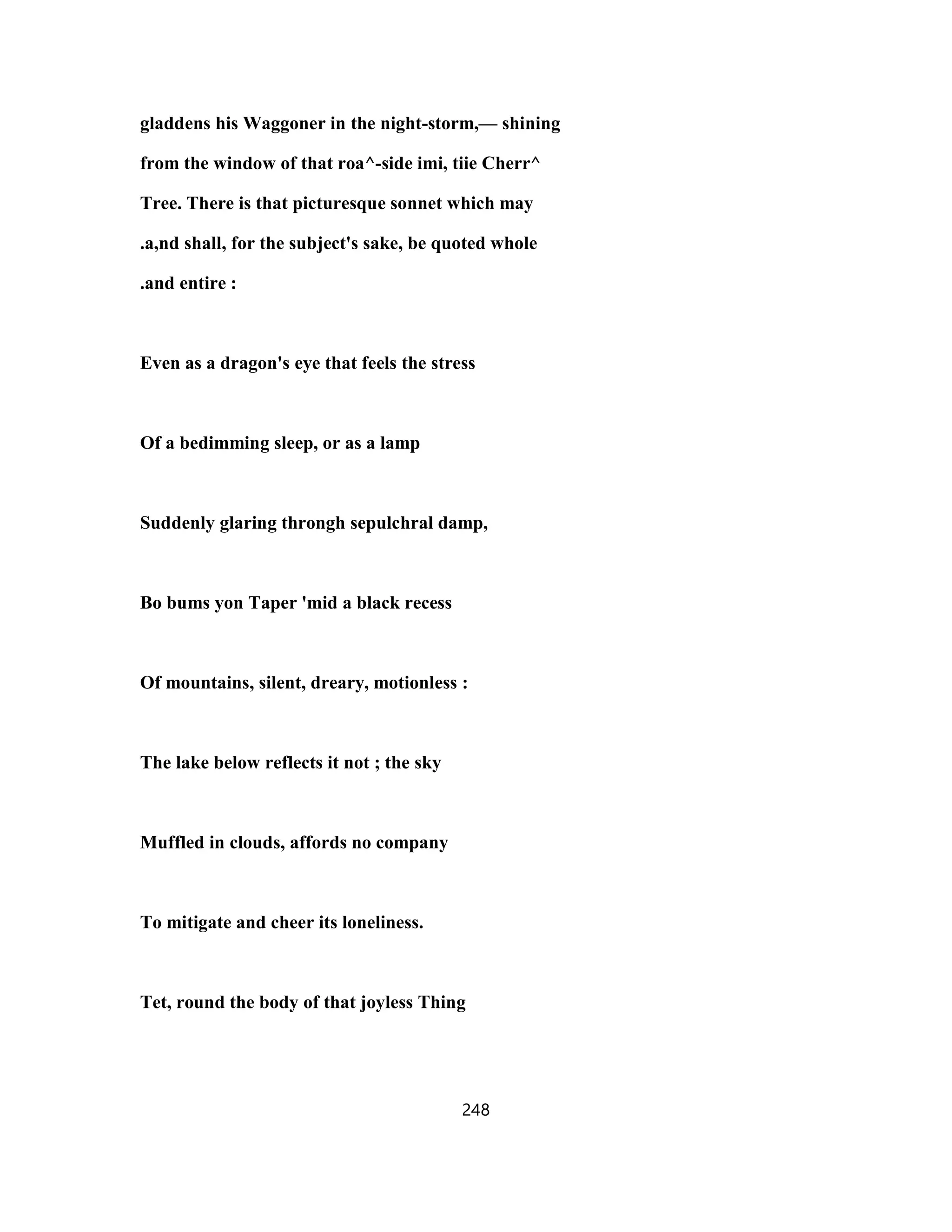
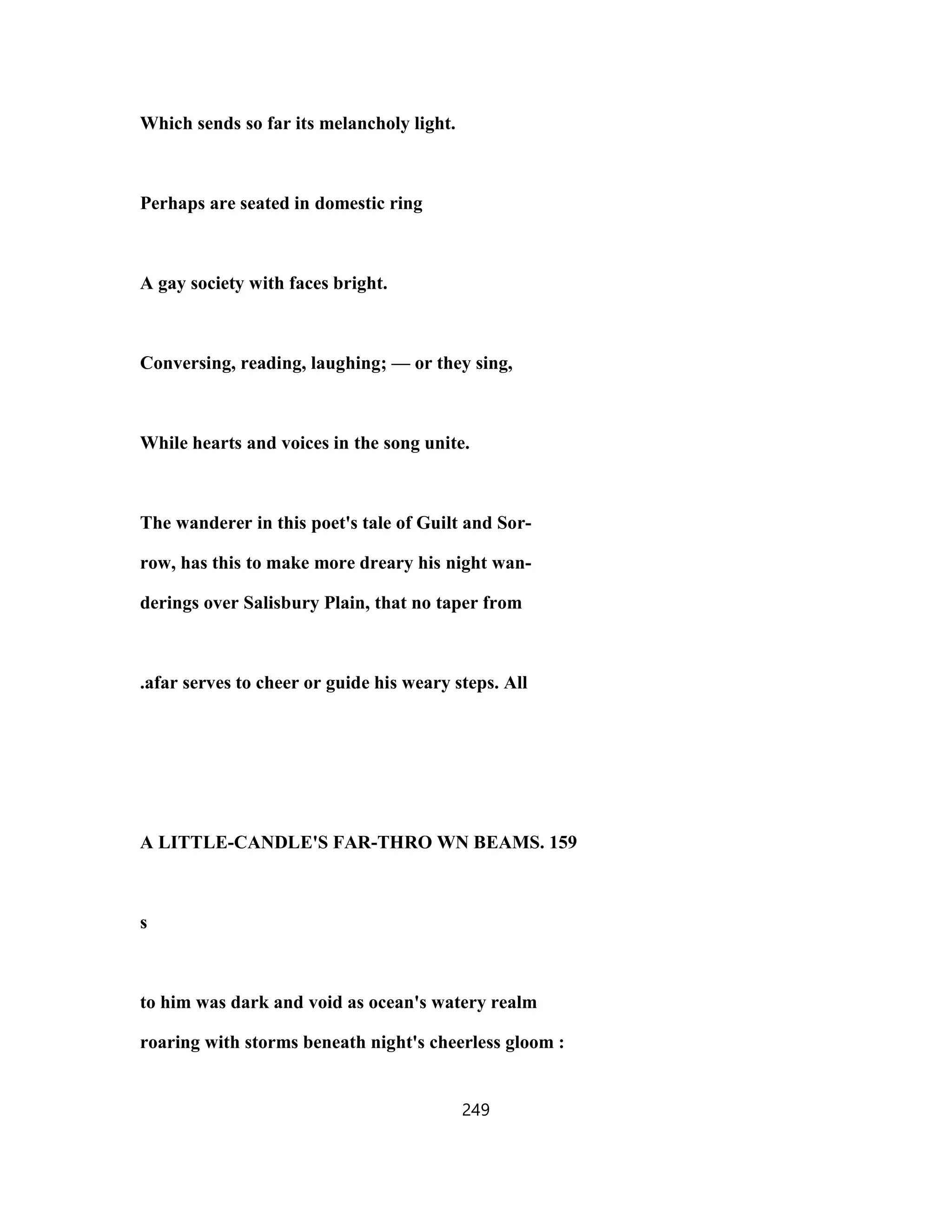
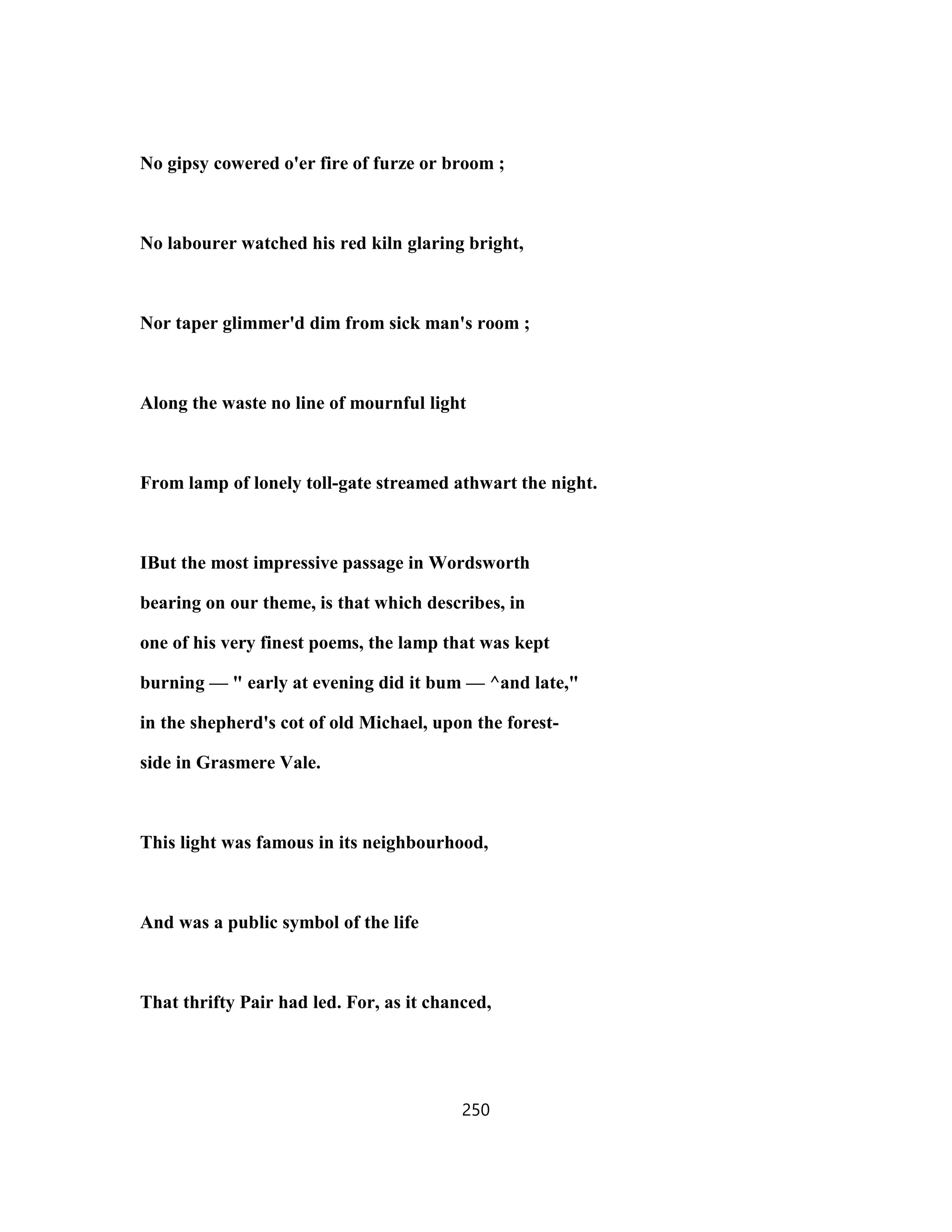





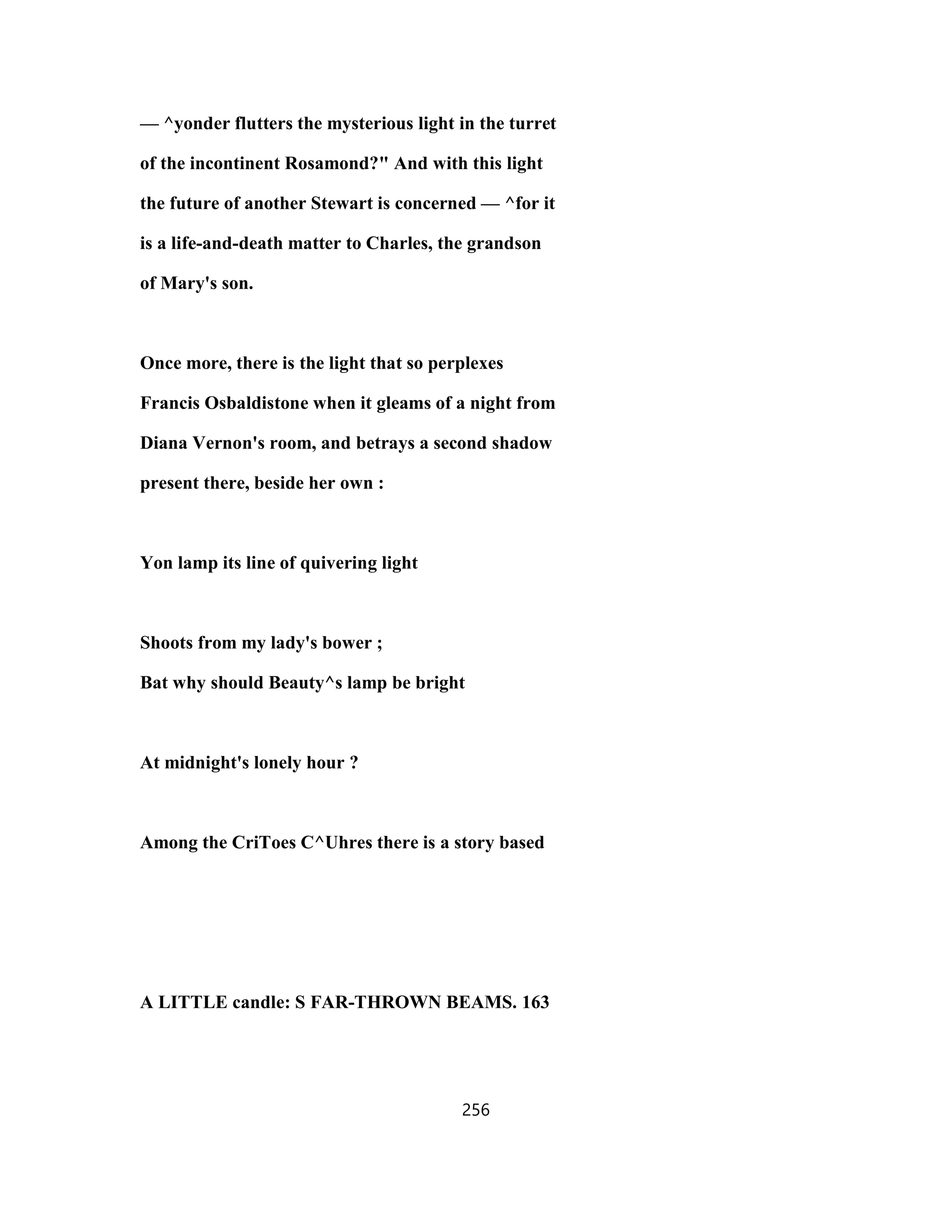


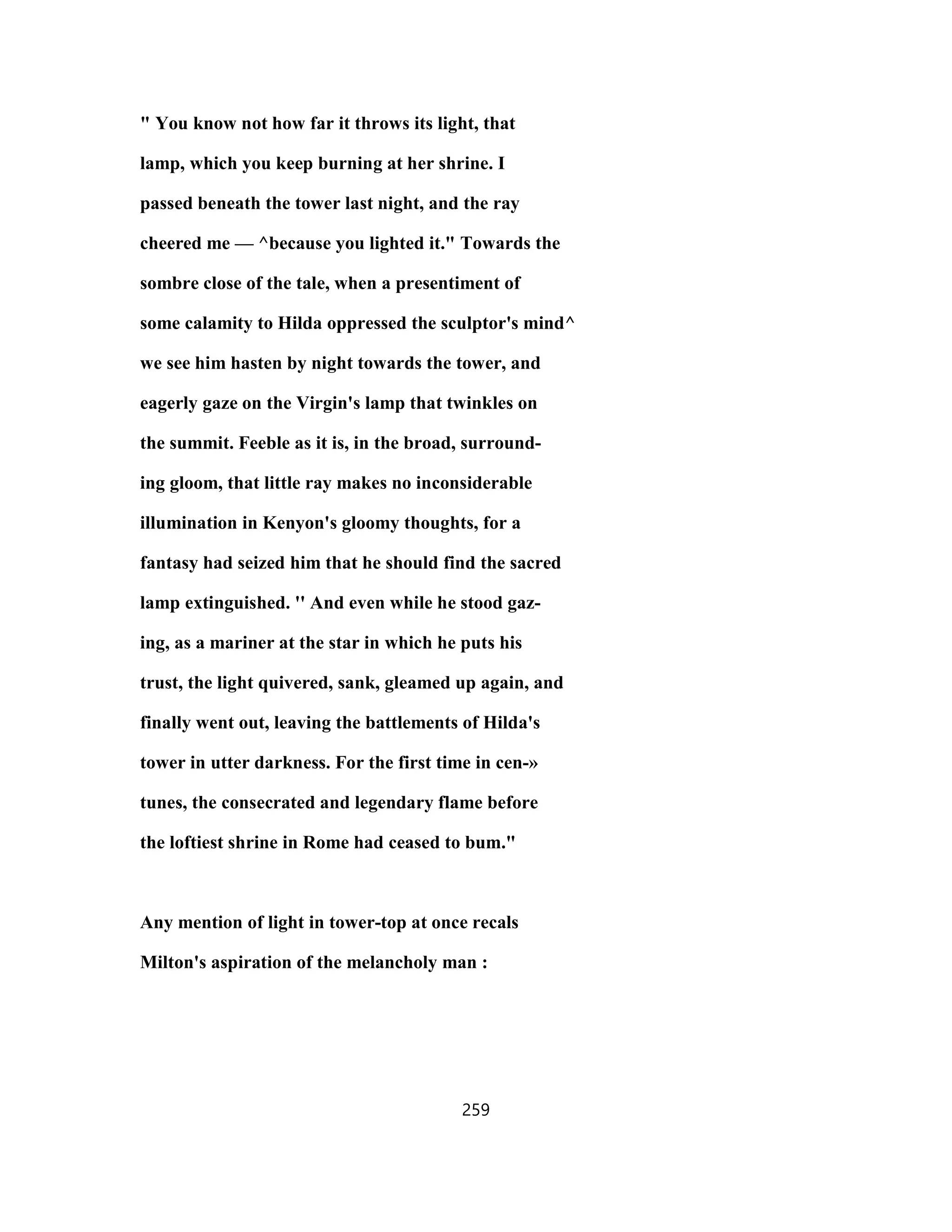

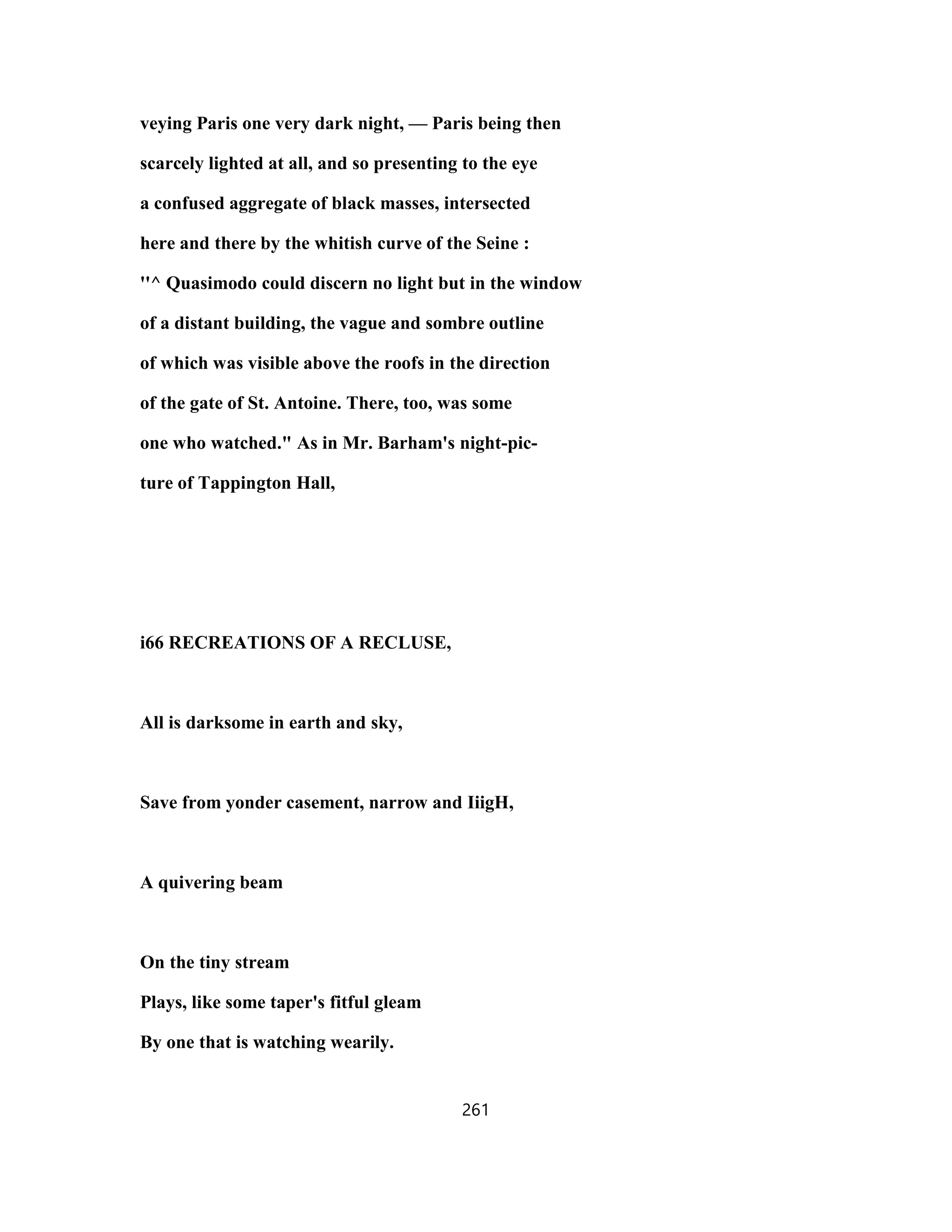







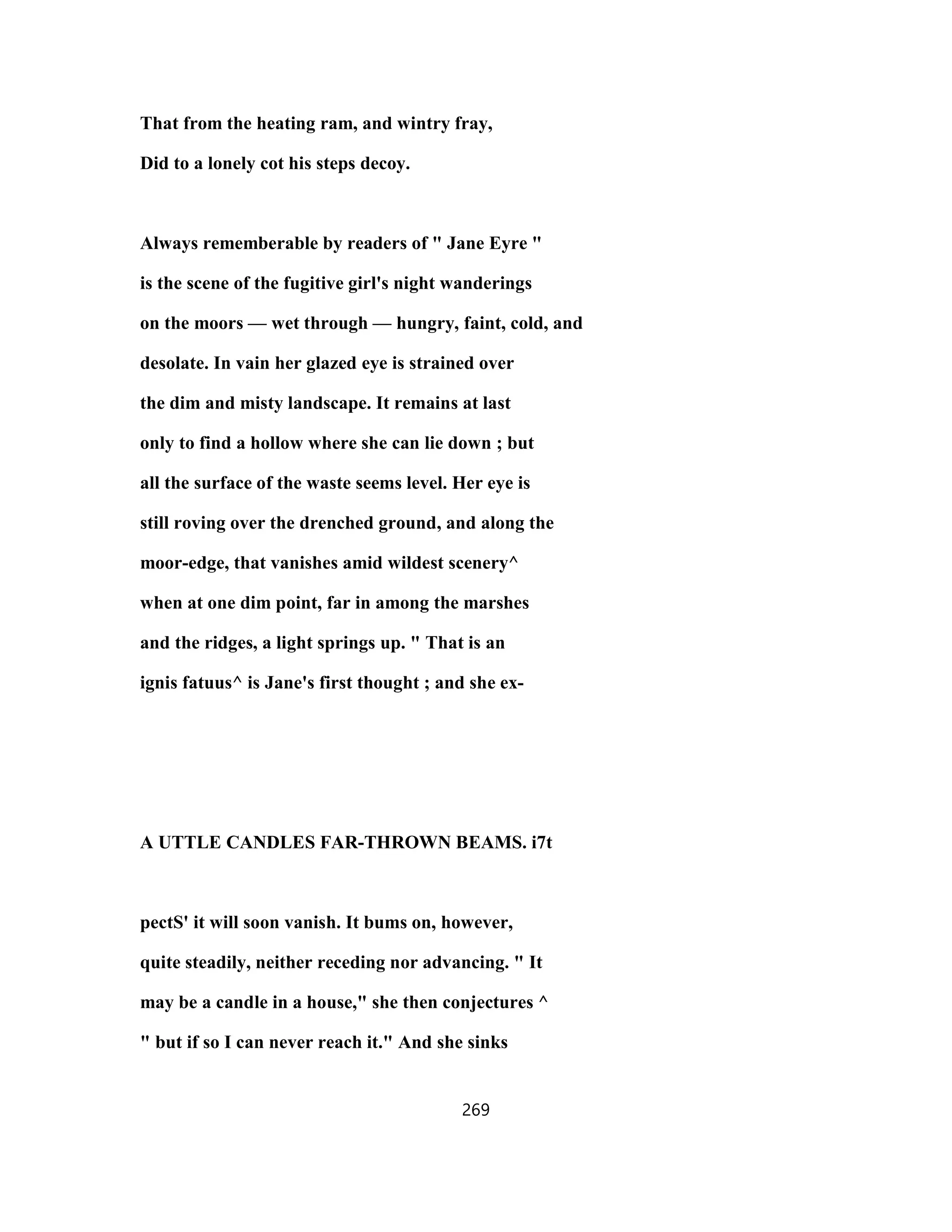


![moment when she had seen Sir Edward's window
.suddenly gleam into the twilight, matters had
changed." — " And when Sir Edward's windows were
lighted once more, and the certainty that he [Cap-
tain Percival] was not coming penetrated her mind,
Winnie clenched her pretty hands, and went crazy
for the moment with despite and vexation."
Chateaubriand's Rene reclines at nightfall on a
rock, and listens to the murmur of the waves, as he
fixes his gaze on the sombre walls of the monastery
within which his Amelia is immured. " Une petite
lumifere paraissait k la fen^tre grUl^e. Etait-ce toi, o
mon Am^e, qui, prostemde au pied du crucifix, priais
Je Dieu des orages d'^pargner ton malheureux frere T
A UTTLE CANDLE'S FA R- THRO WN BEAMS. 1 75,
Mr. Thackeray's last hero, Denis Duval — the nar-
rative of whose career, with its lamented author's,,
was cut short too soon, so much too soon — being
wisely counselled by good old Doctor Bernard against-
272](https://image.slidesharecdn.com/thebestoffrancisjacox-171030162308/75/The-best-of-francis-jacox-272-2048.jpg)
![continuing the smuggling practices into which his
innocent boyhood had been inveigled, makes a vow,
the same night, after drinking tea with his dear-
doctor, that he will strive henceforth to lead an
honest life— that his tongue shall speak the truth,
and his hand be sullied by no secret ci'ime. *' And
as I spoke." he writes, i/the tender retrospect of
some threescore years, "I saw my dearest little
maiden's light glimmering in her chamber, and the
stars shining overhead, and felt — who could feel
more bold and happy than I ?
" That walk schoolwards by West-street [where
dwelt Agnes, the little maiden of his regards] cer-
tainly was a detour. I might have gone a straighter
road, but then I should not have seen a certain
window; a little twinkling window in a gable of
the Priory House, where the light used to be popped
out at nine o'clock."*
Mrs. Inchbald, who was one of Dr. Warren's.
* " T'other day, when we took over the King of France to-
Calais (Ms Kojal Highness the Duke of Clarence being in com-
273](https://image.slidesharecdn.com/thebestoffrancisjacox-171030162308/75/The-best-of-francis-jacox-273-2048.jpg)
